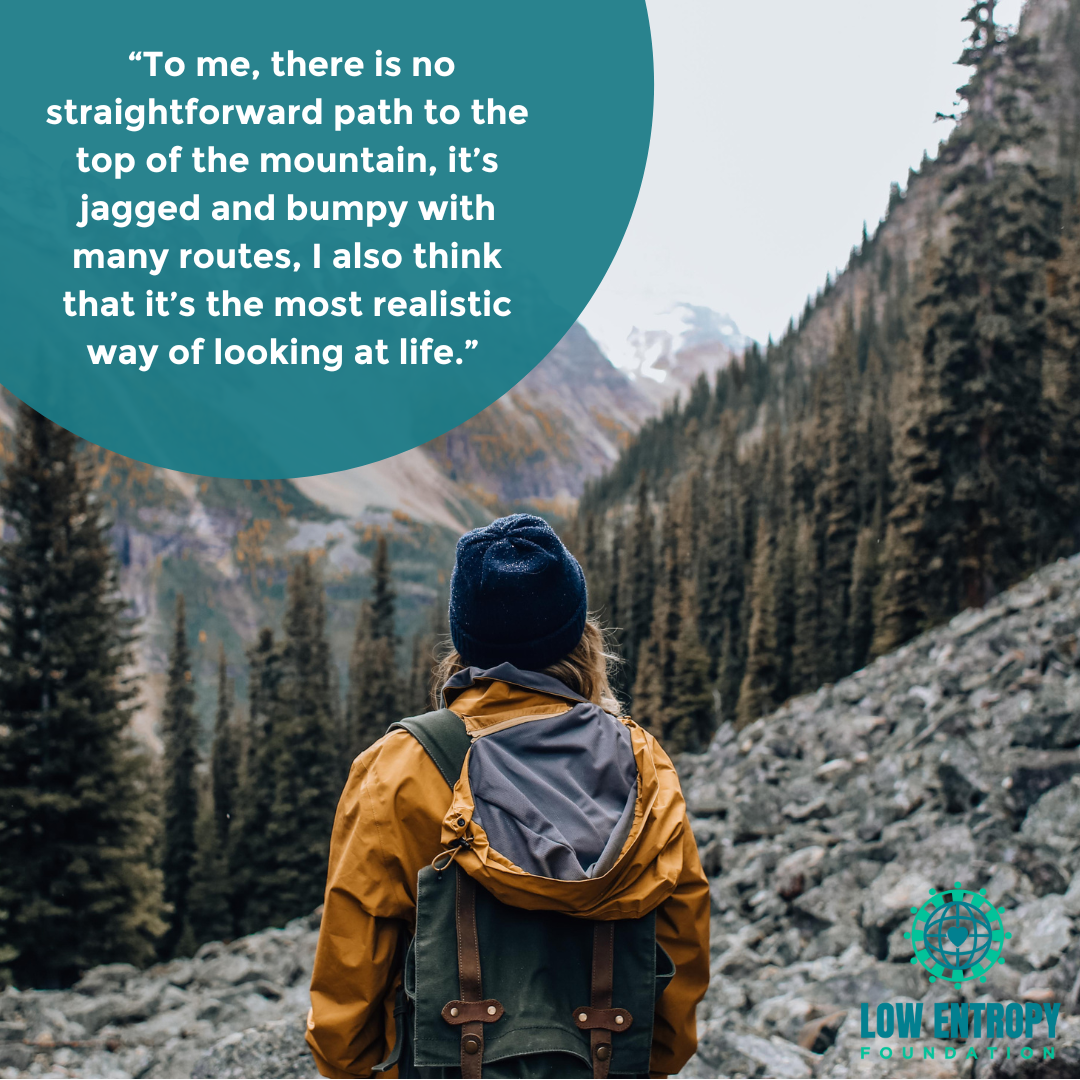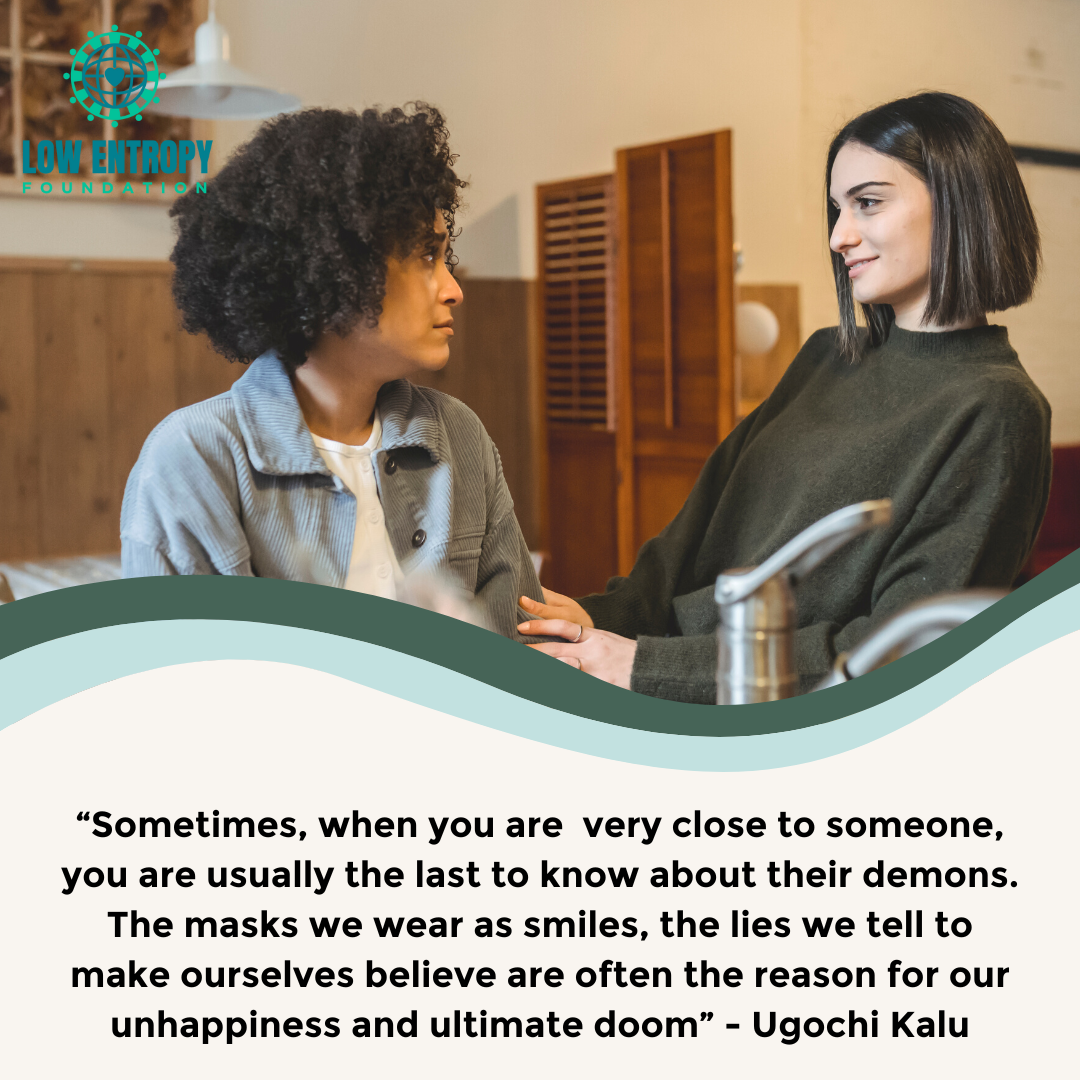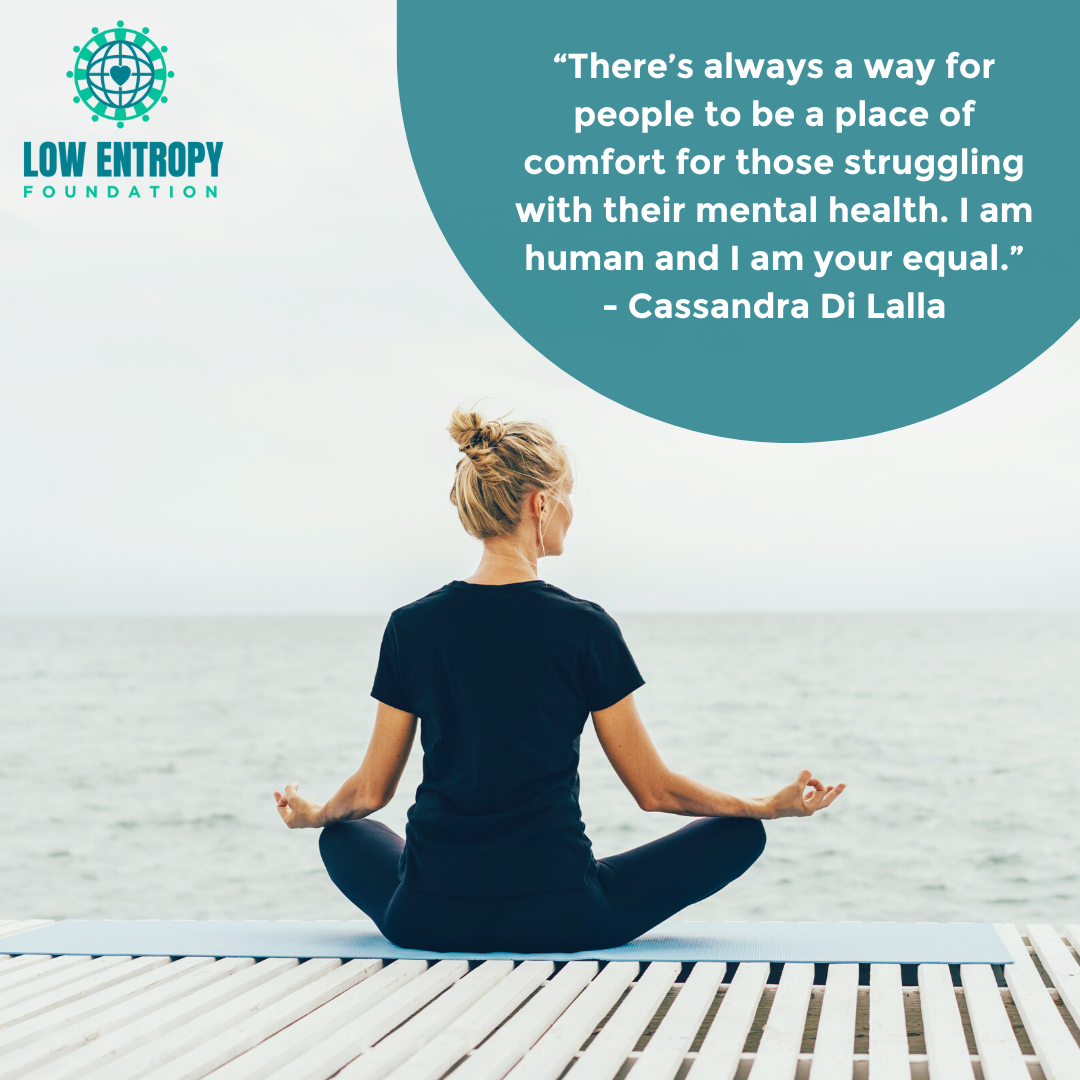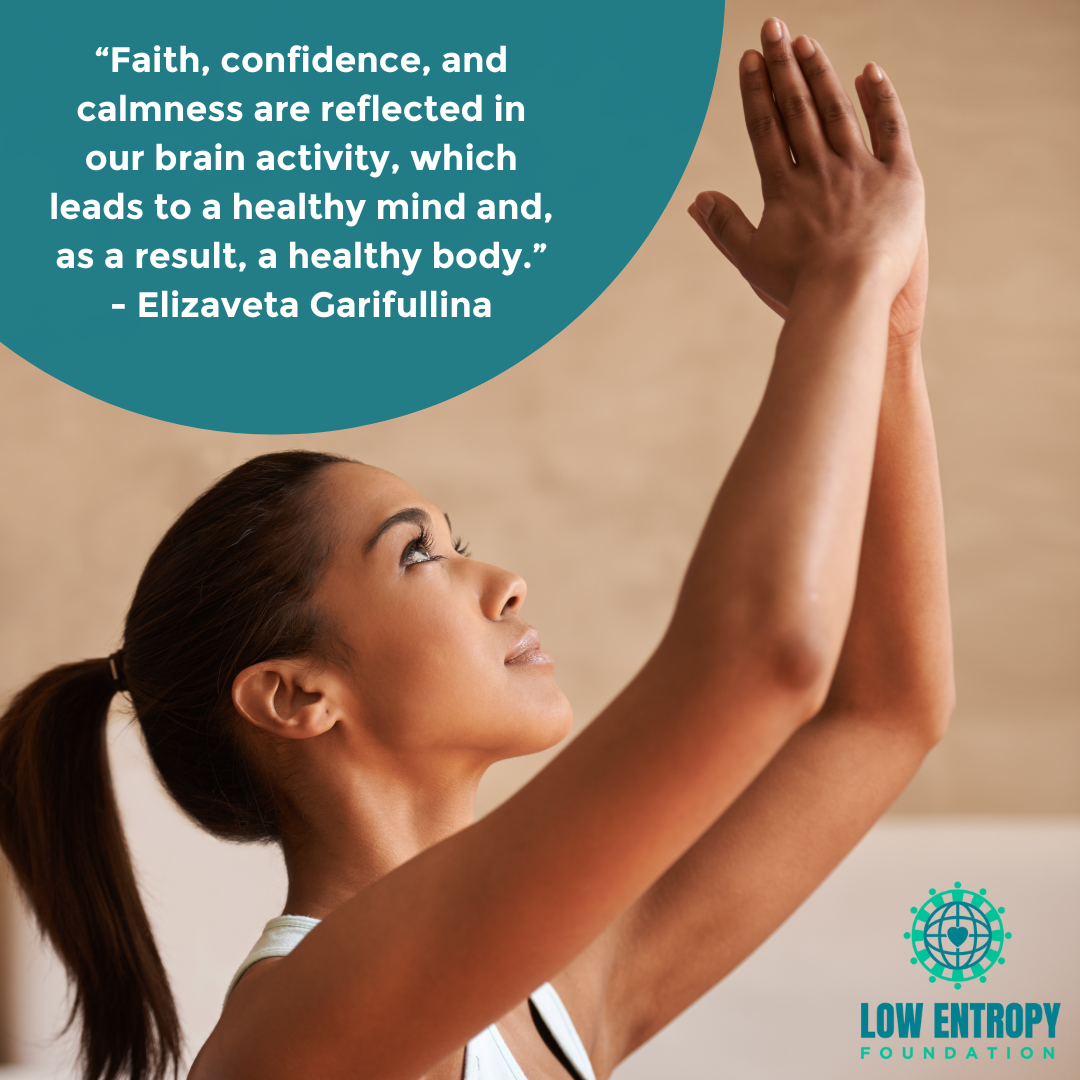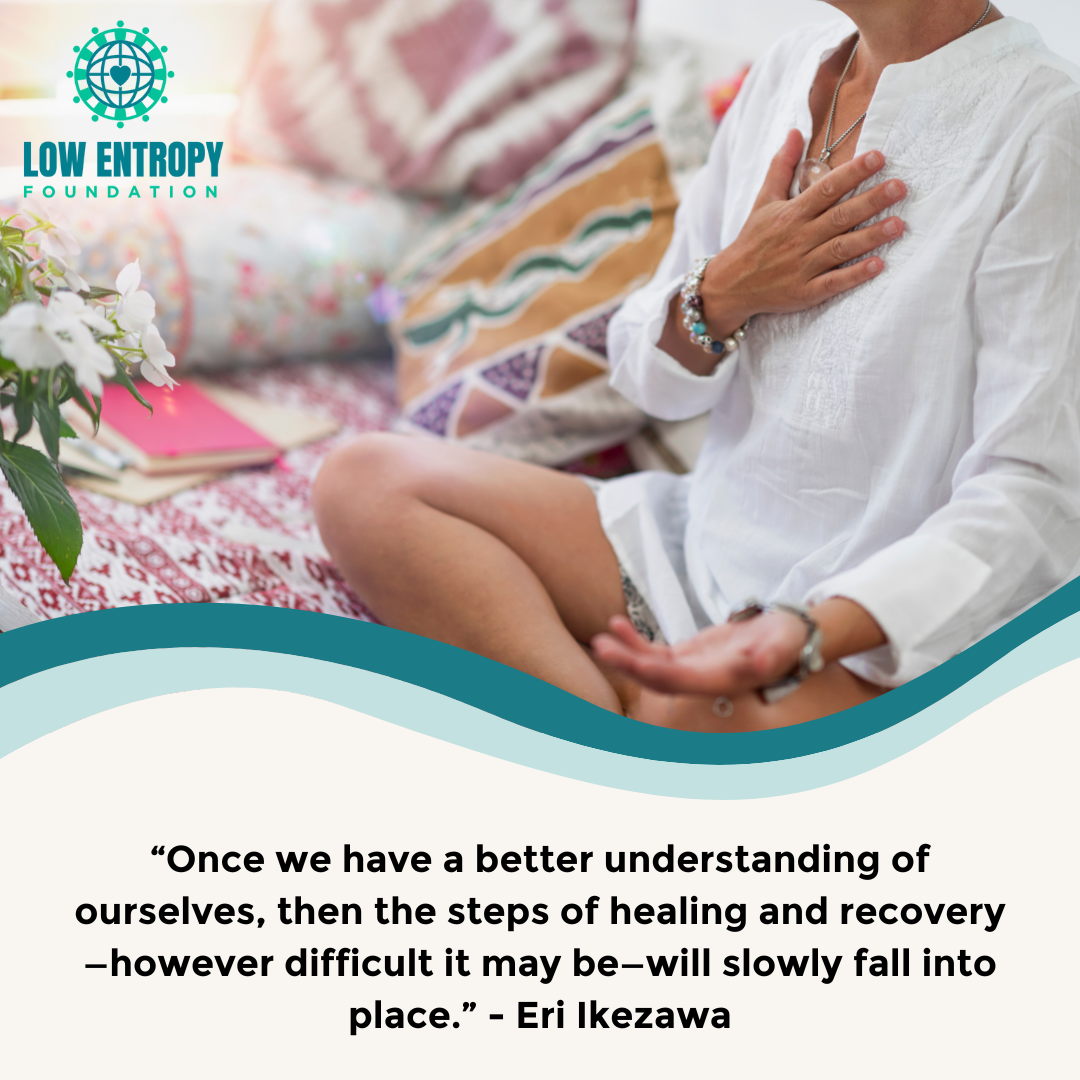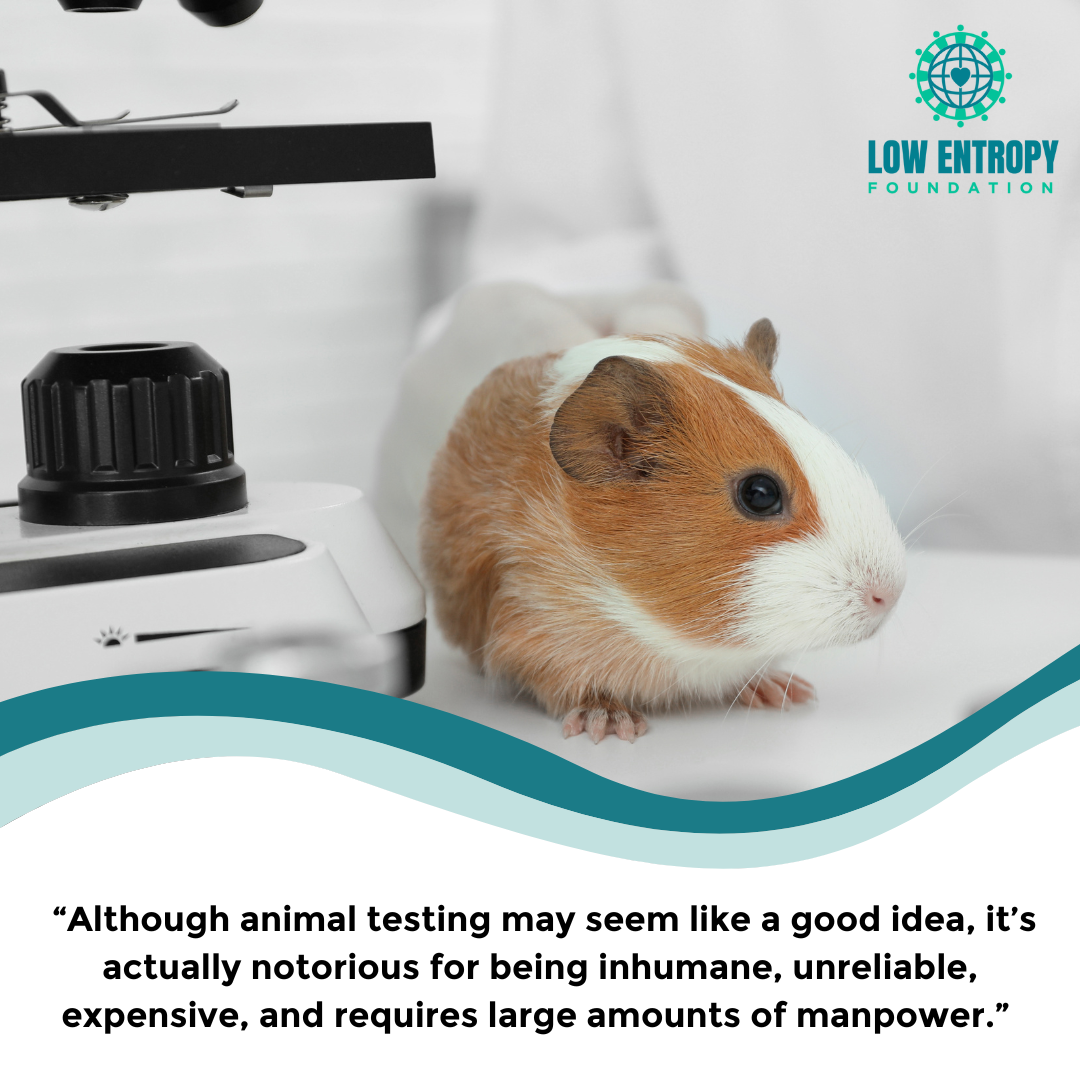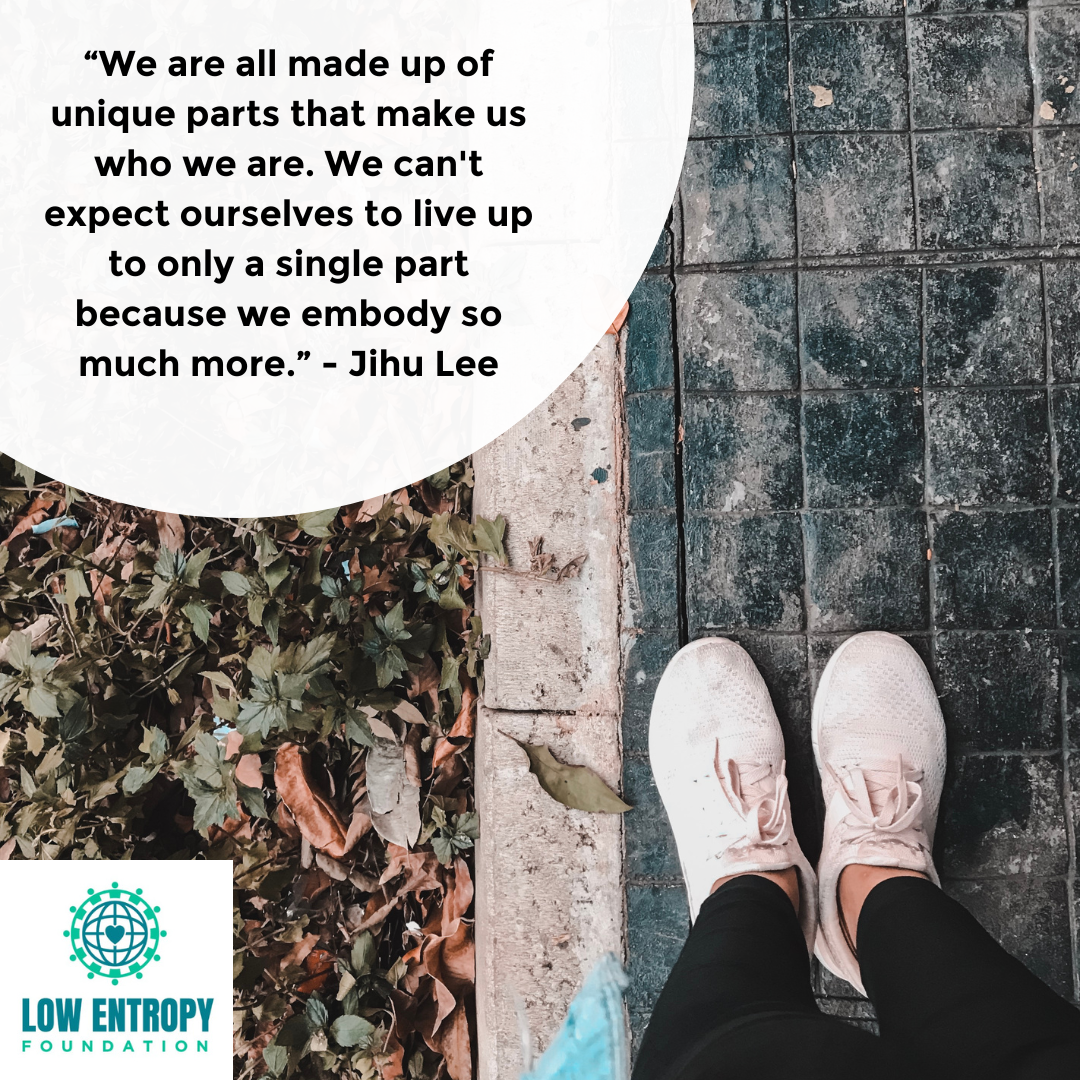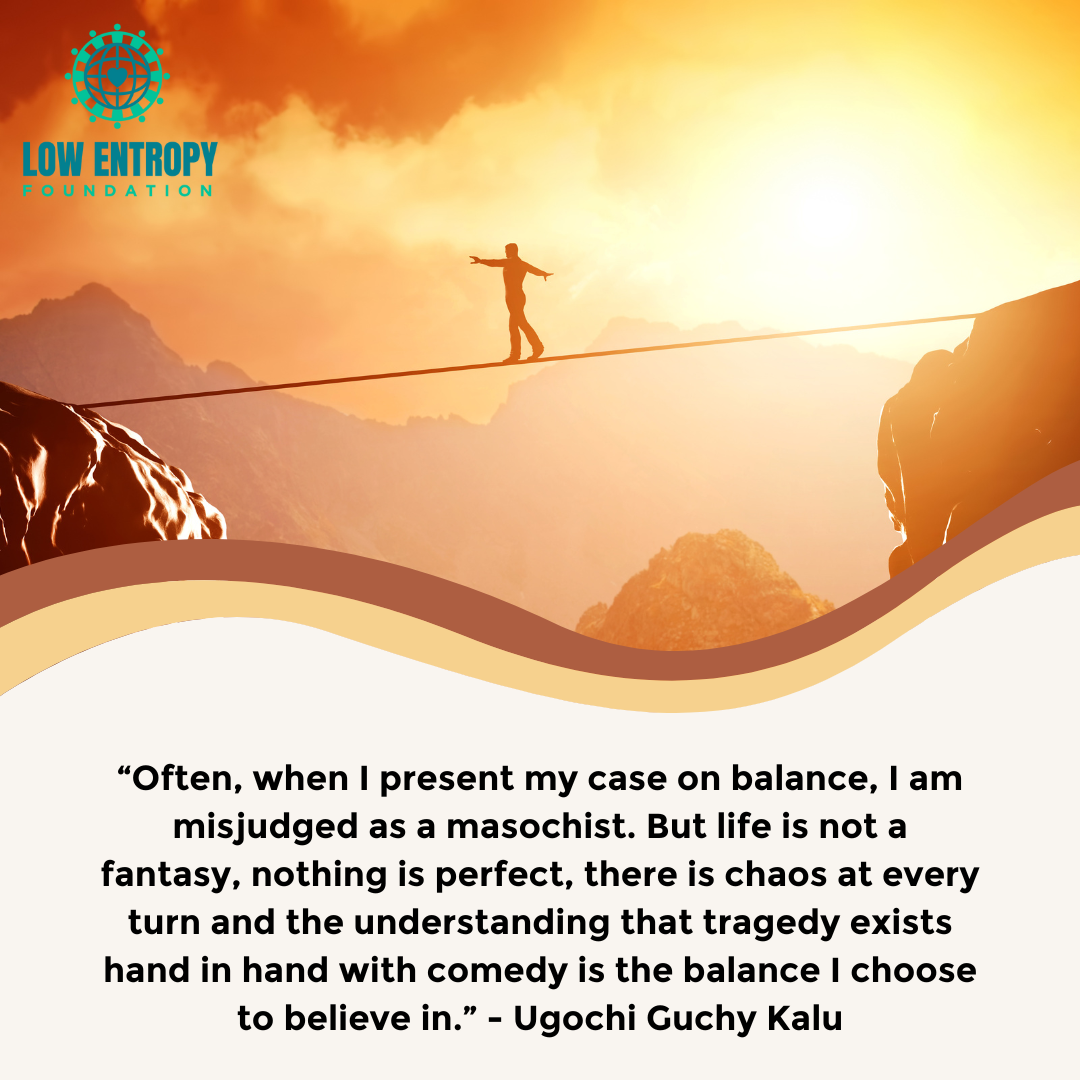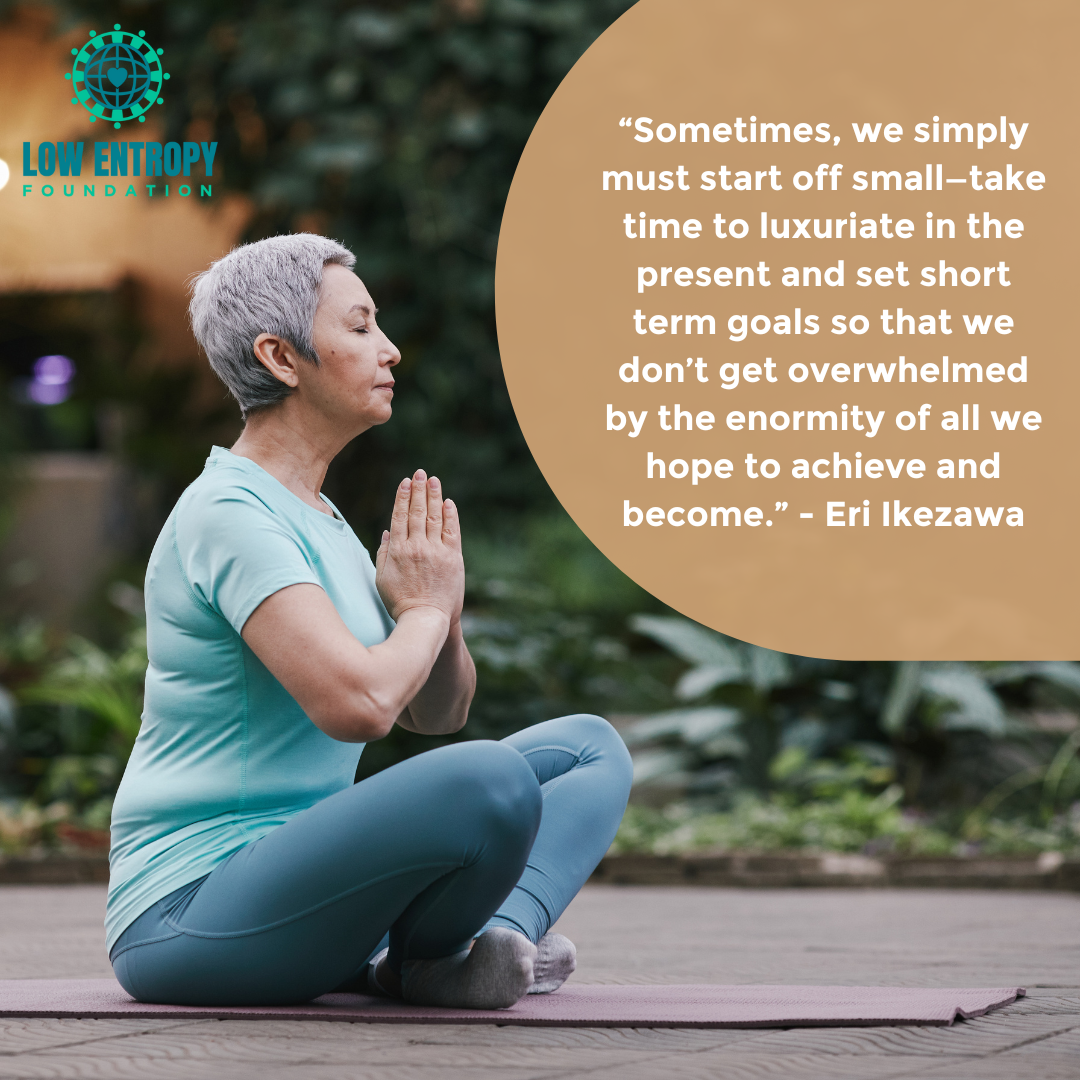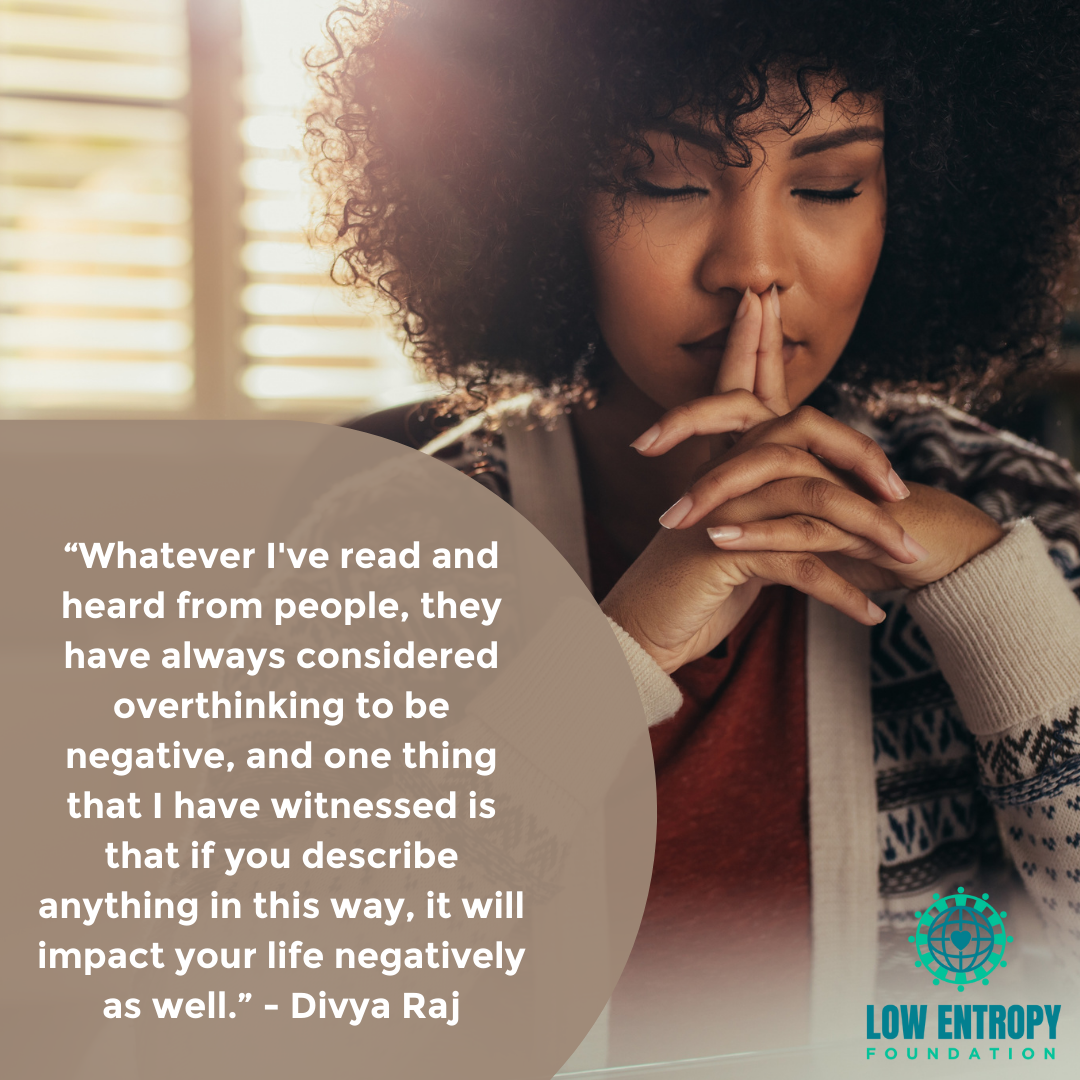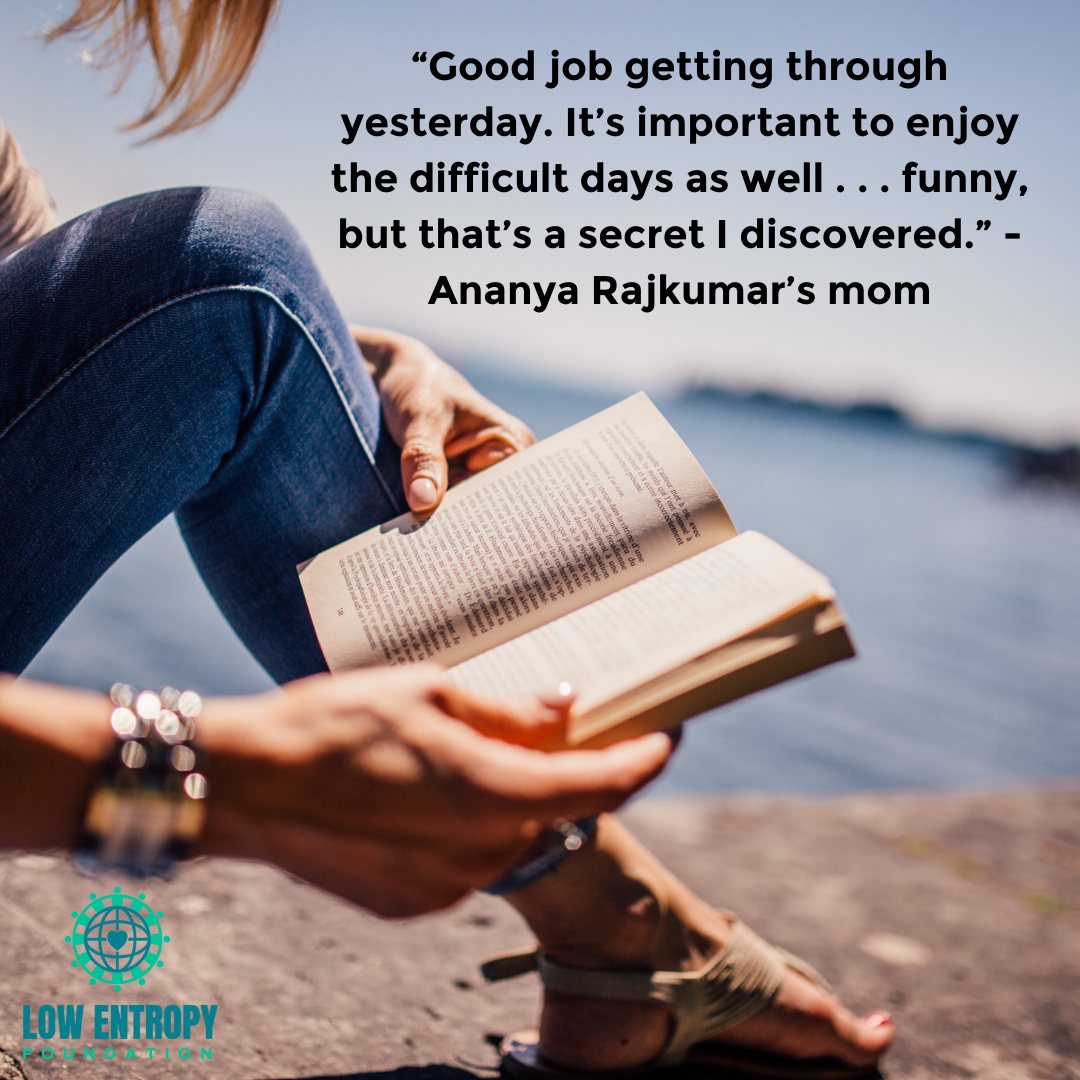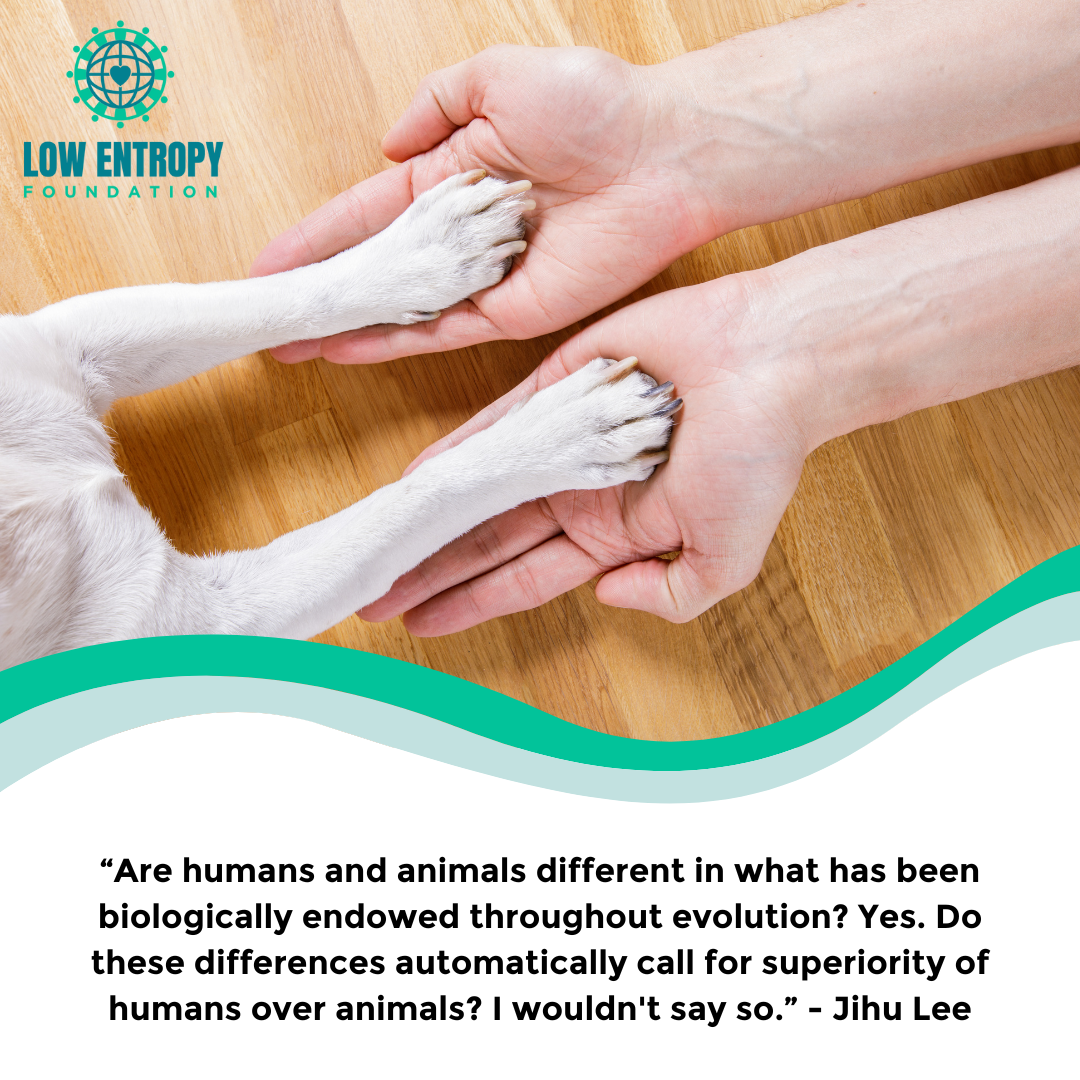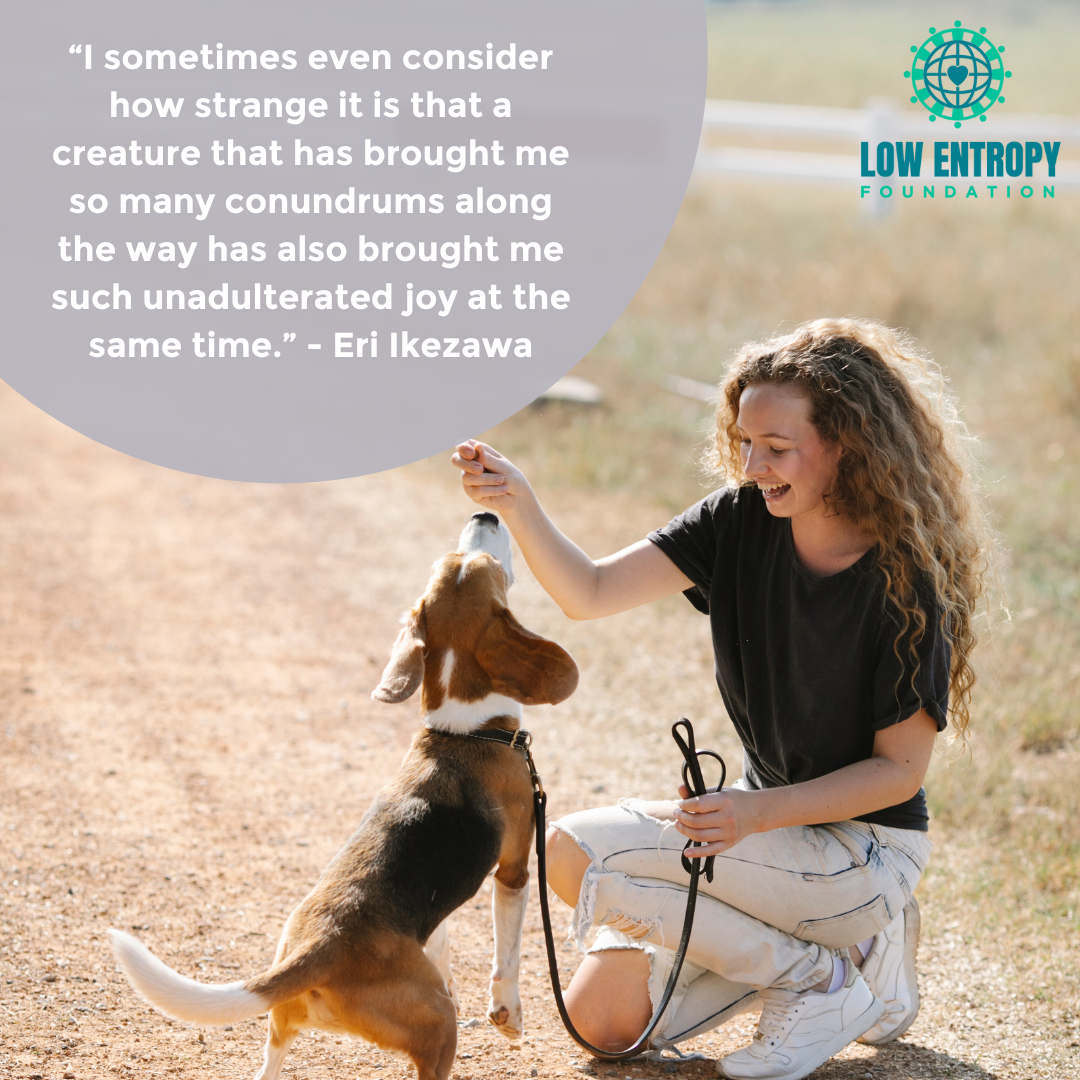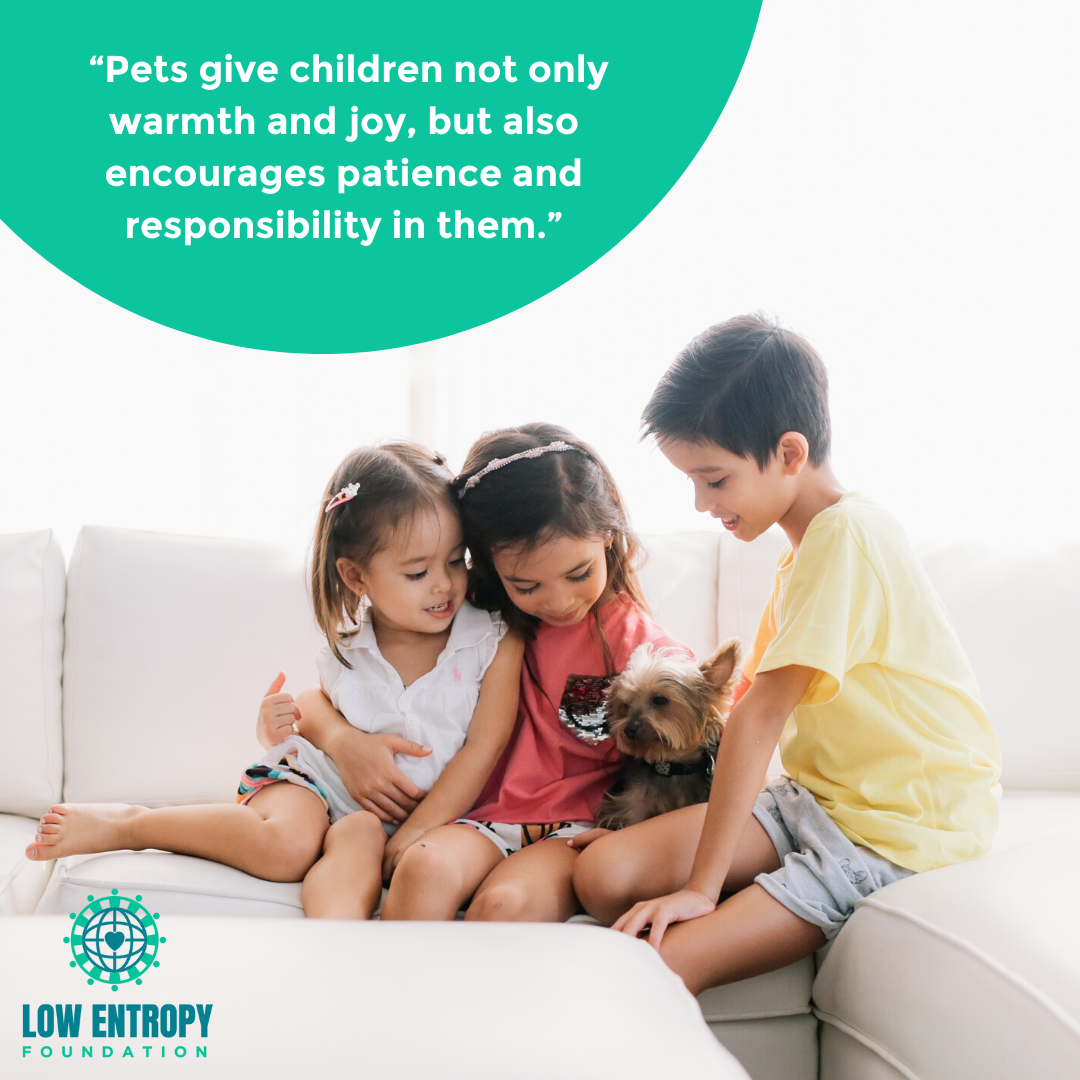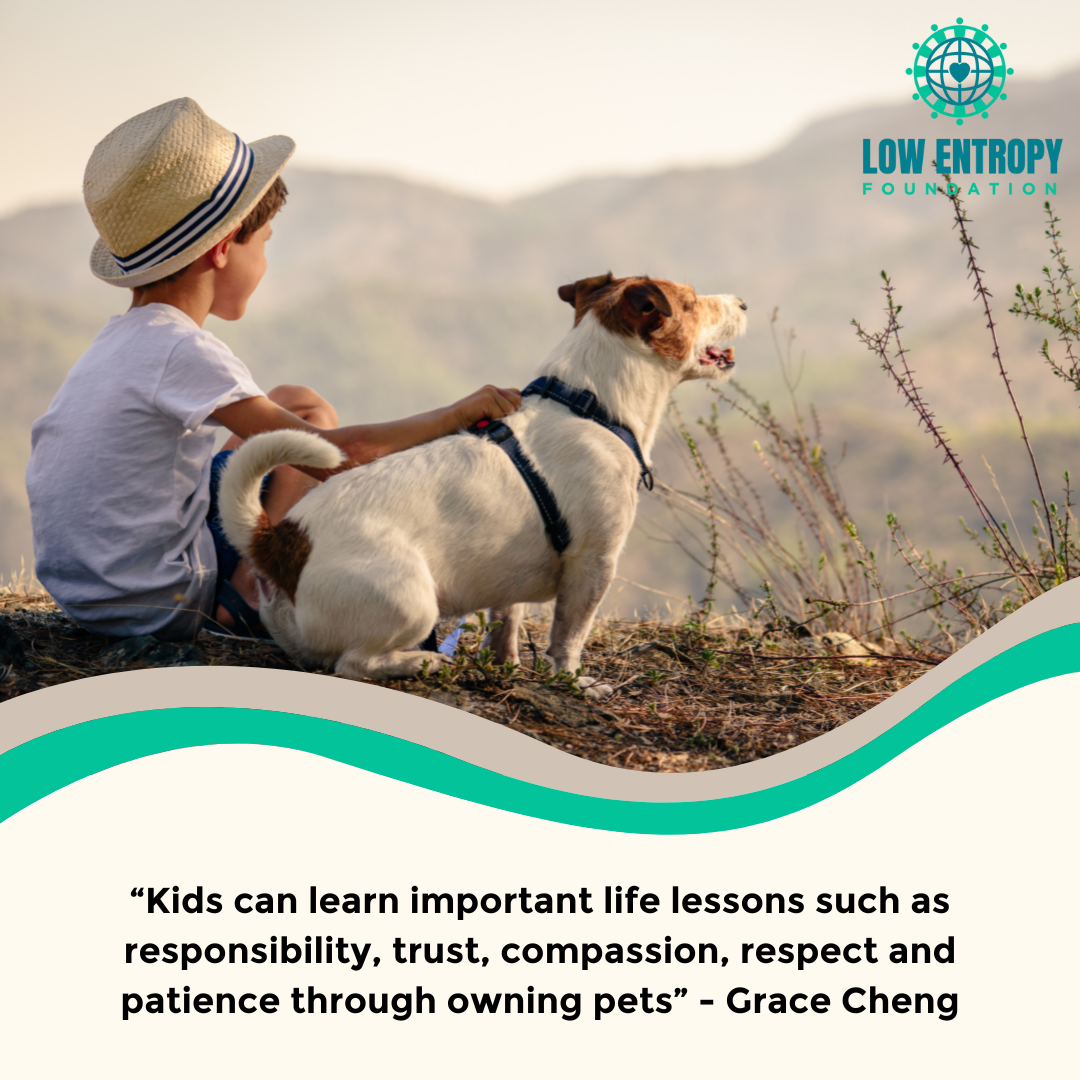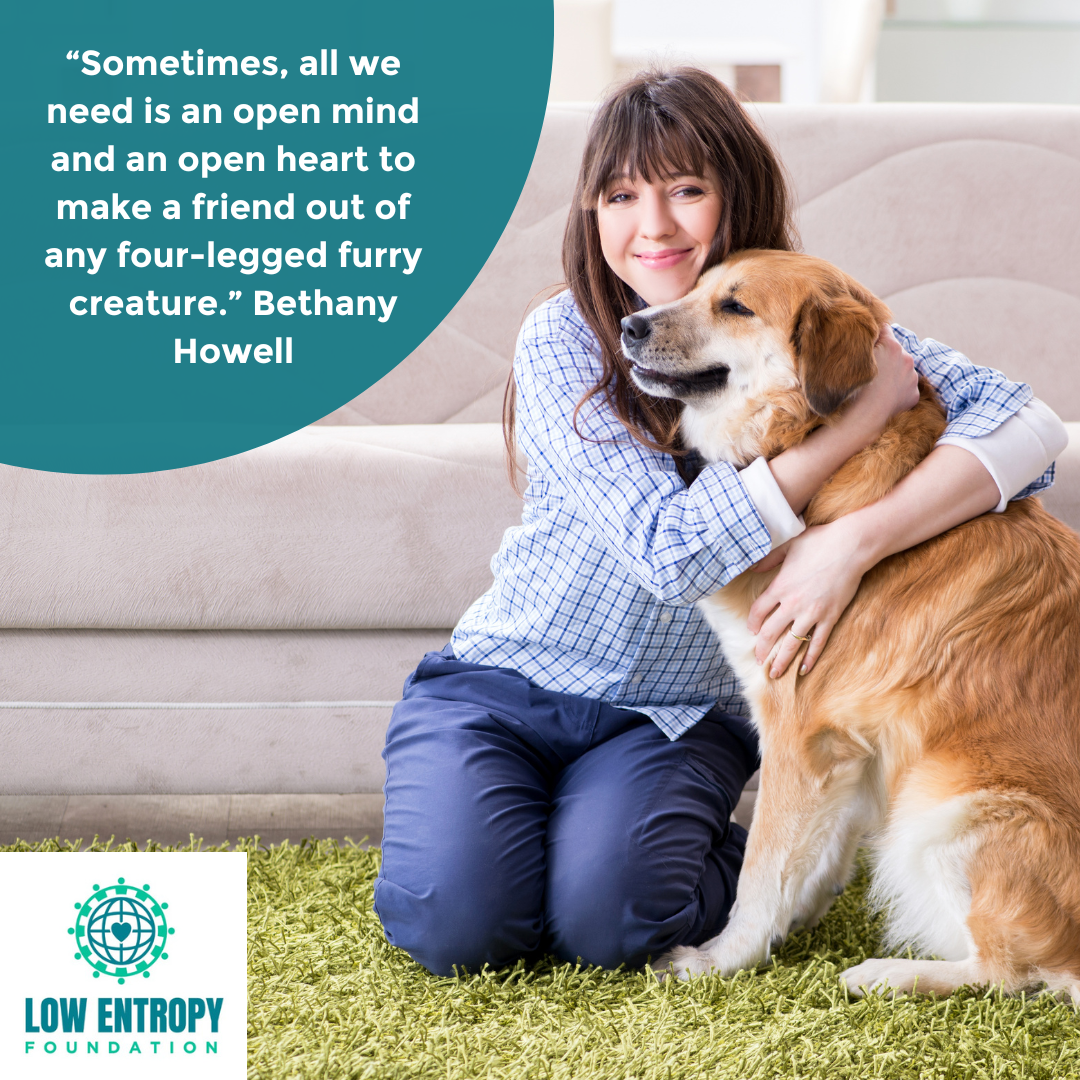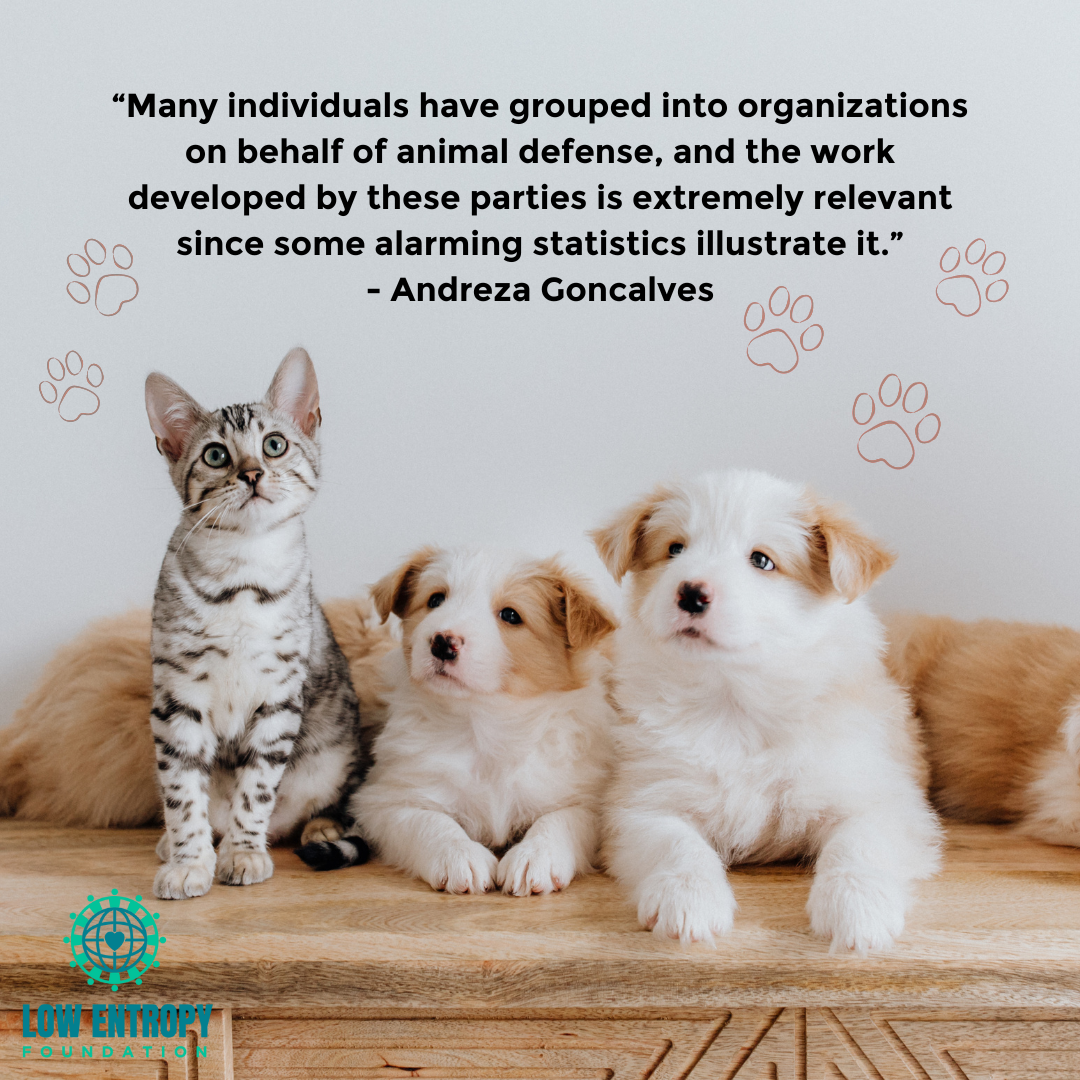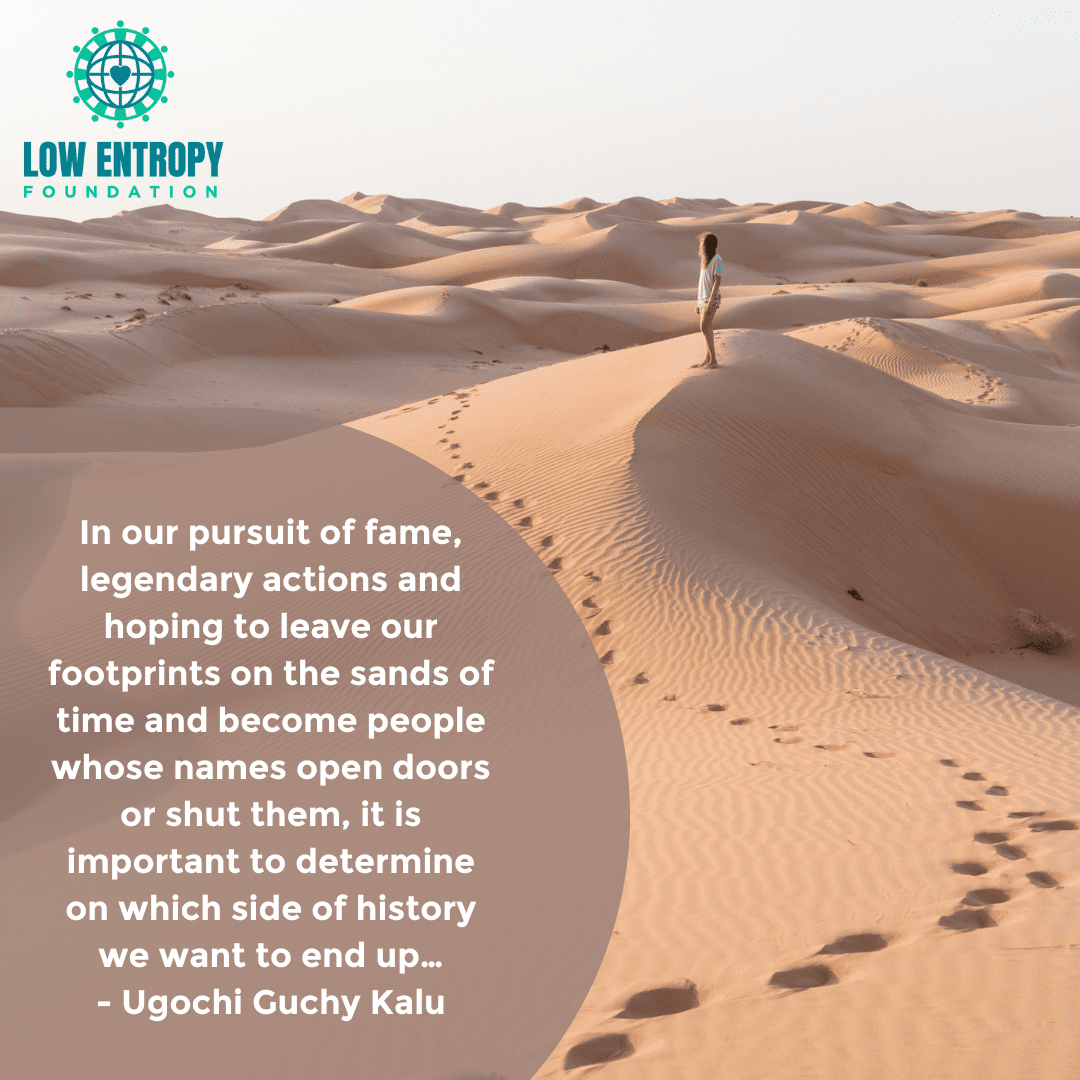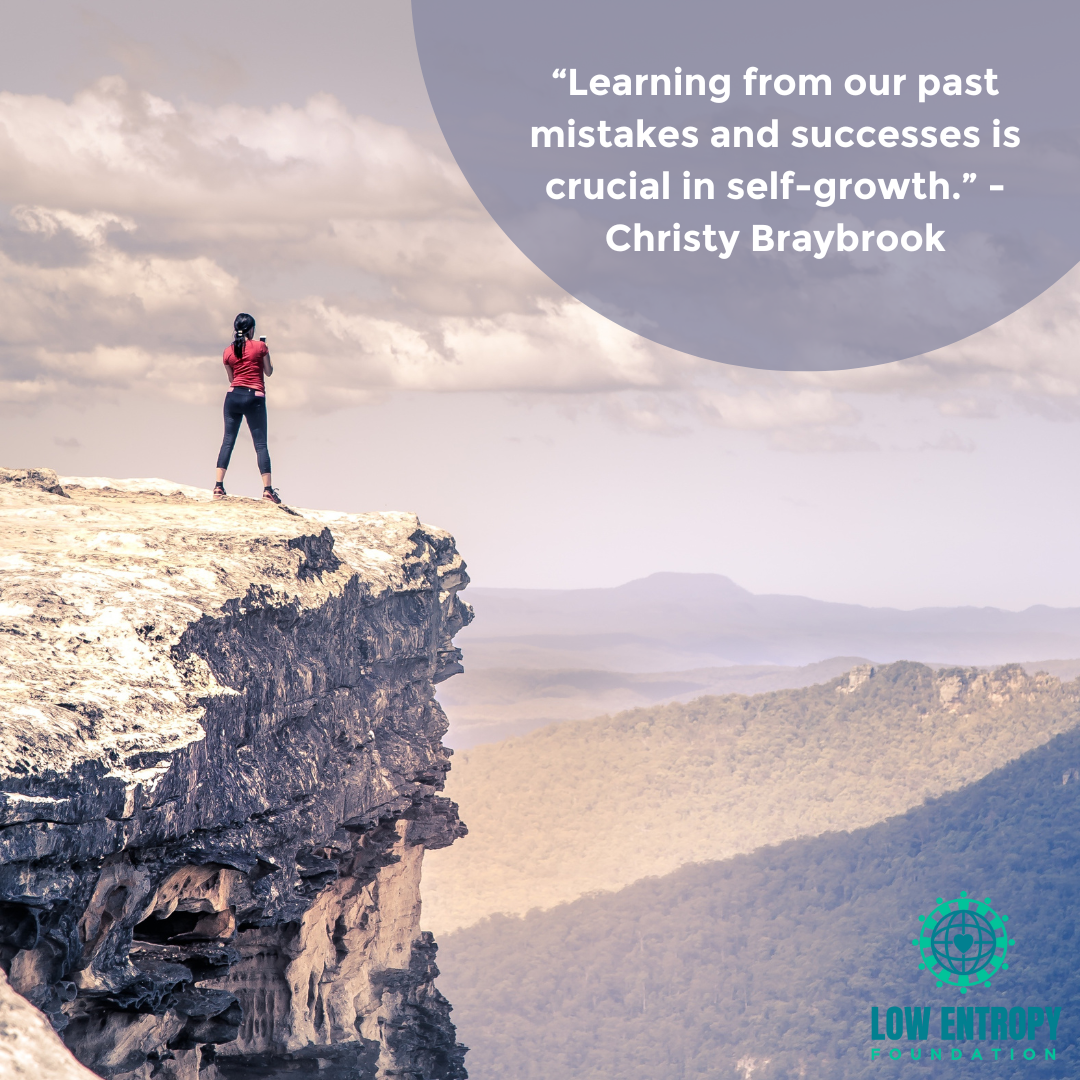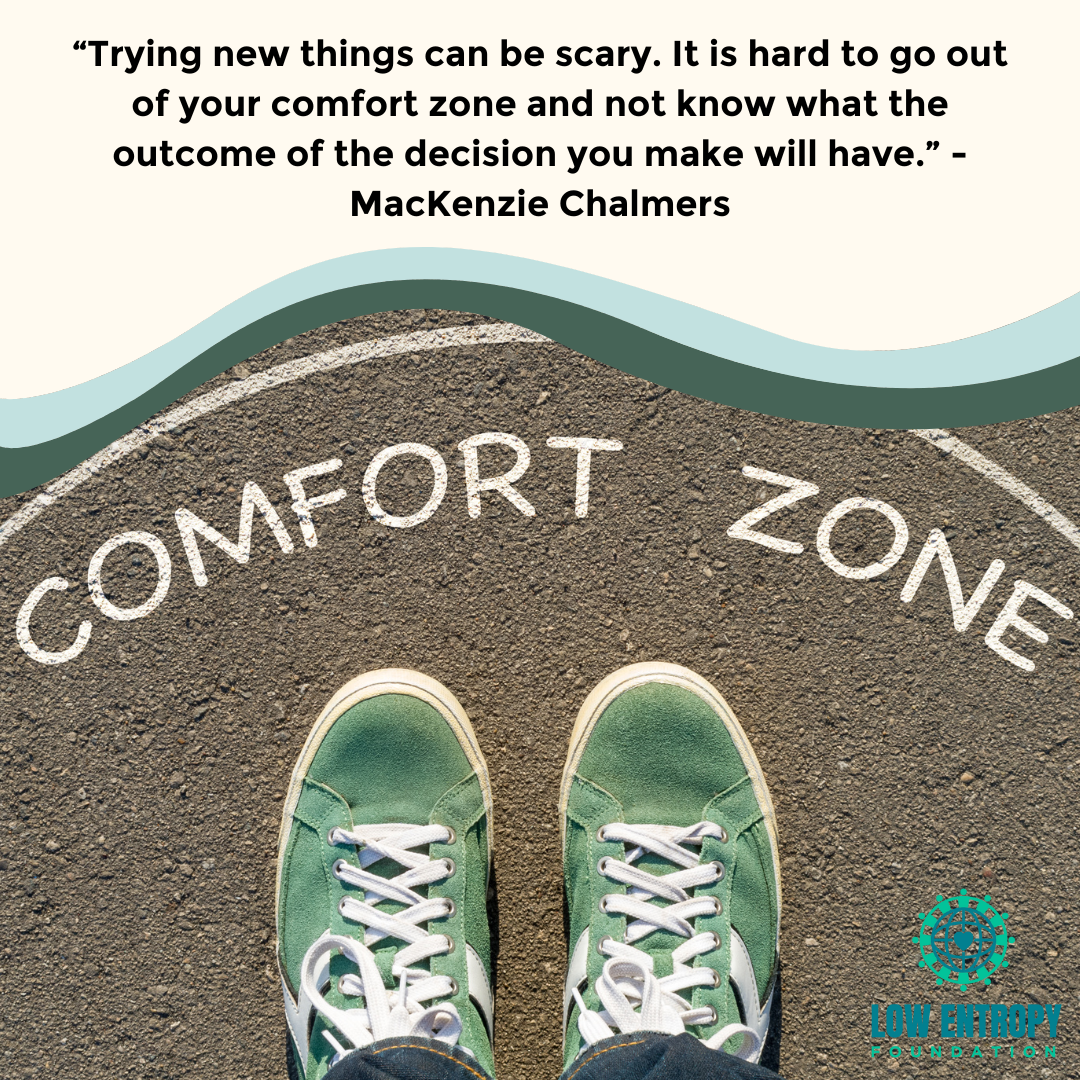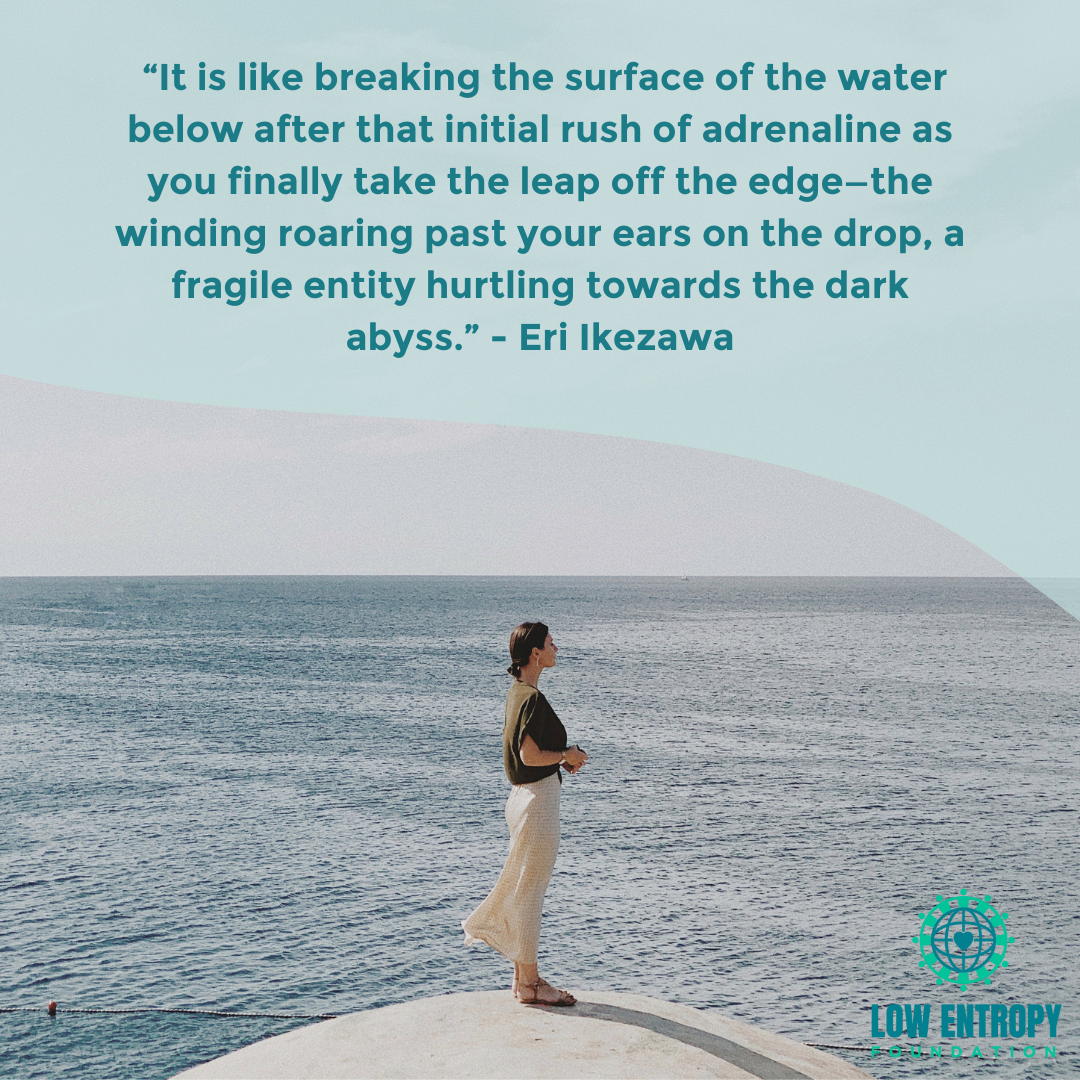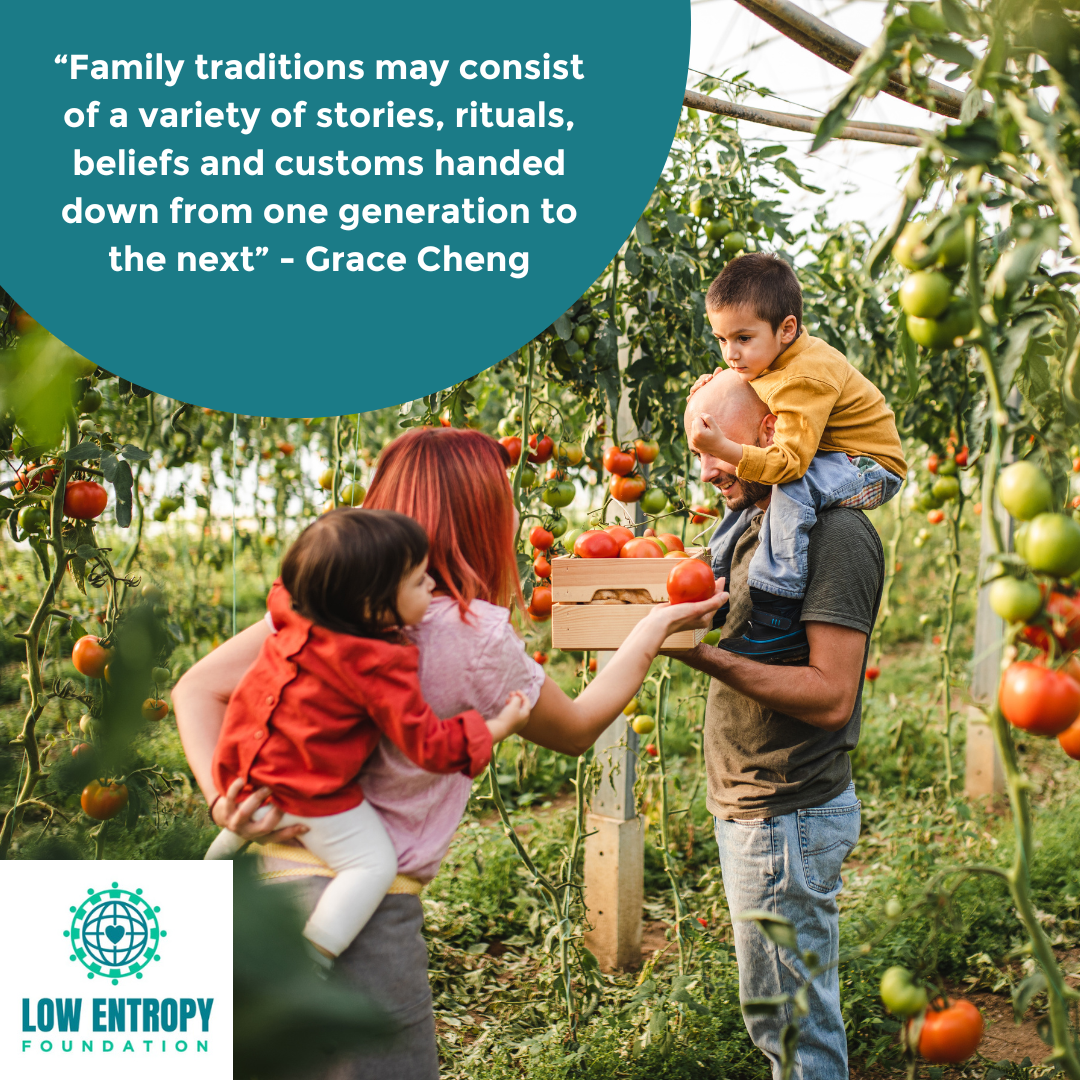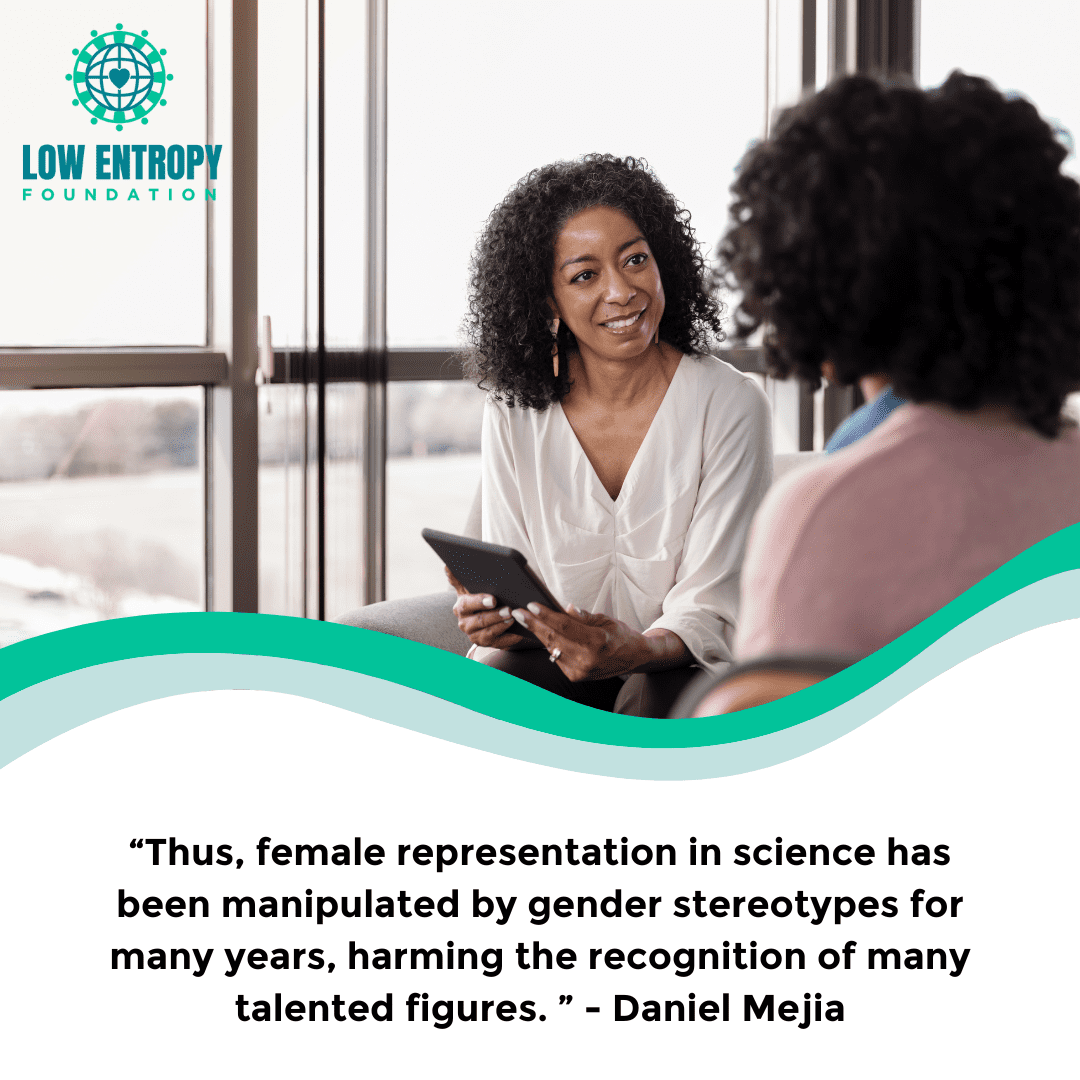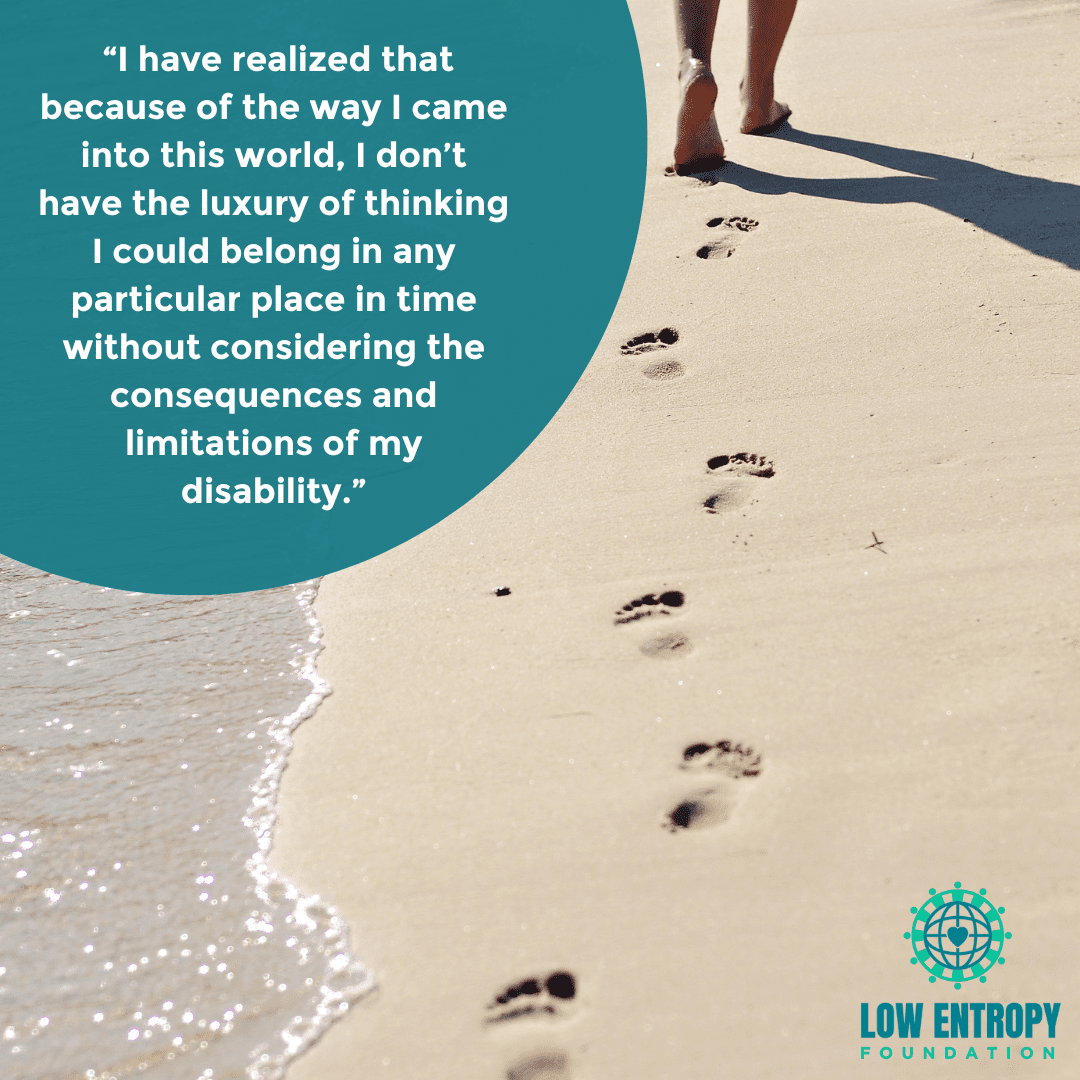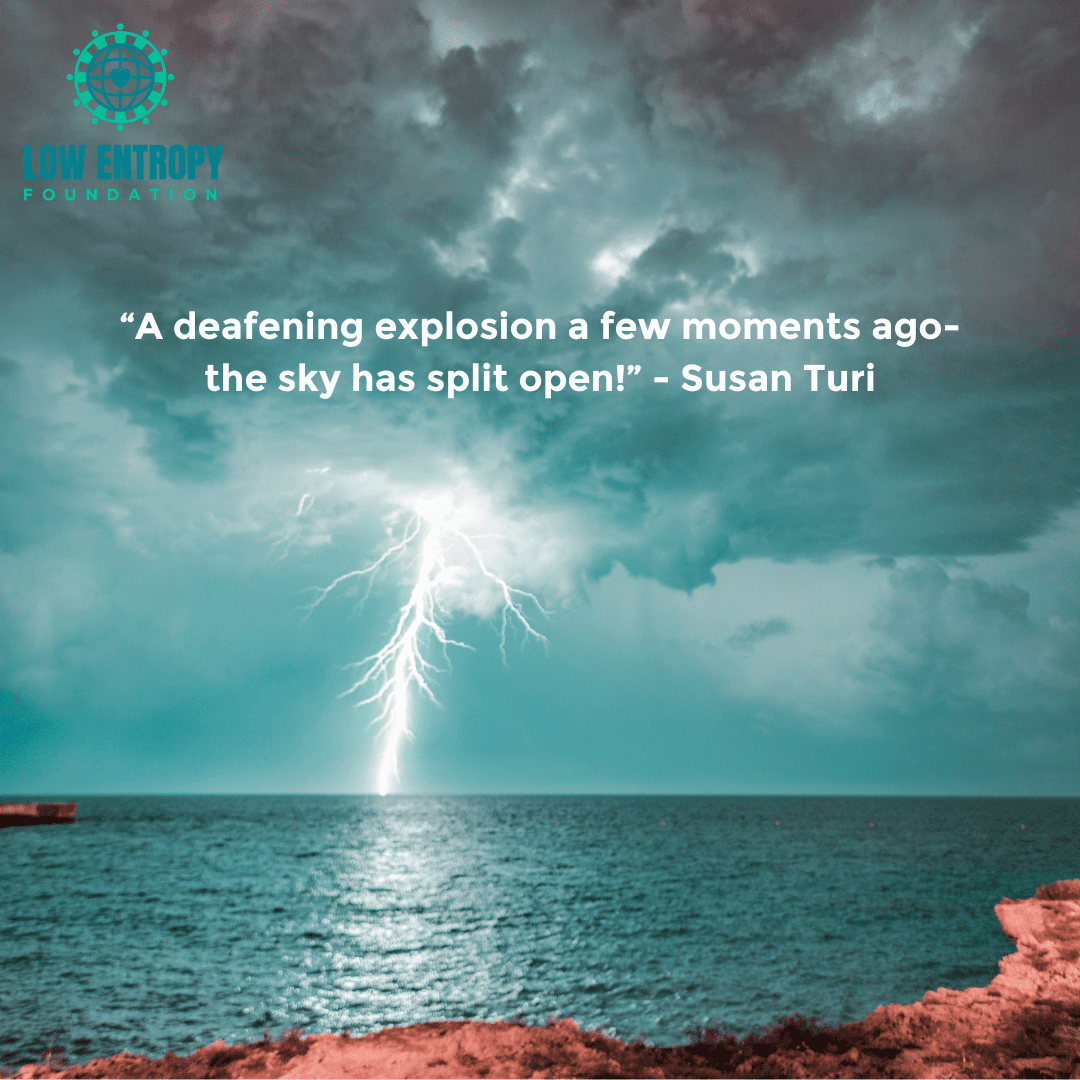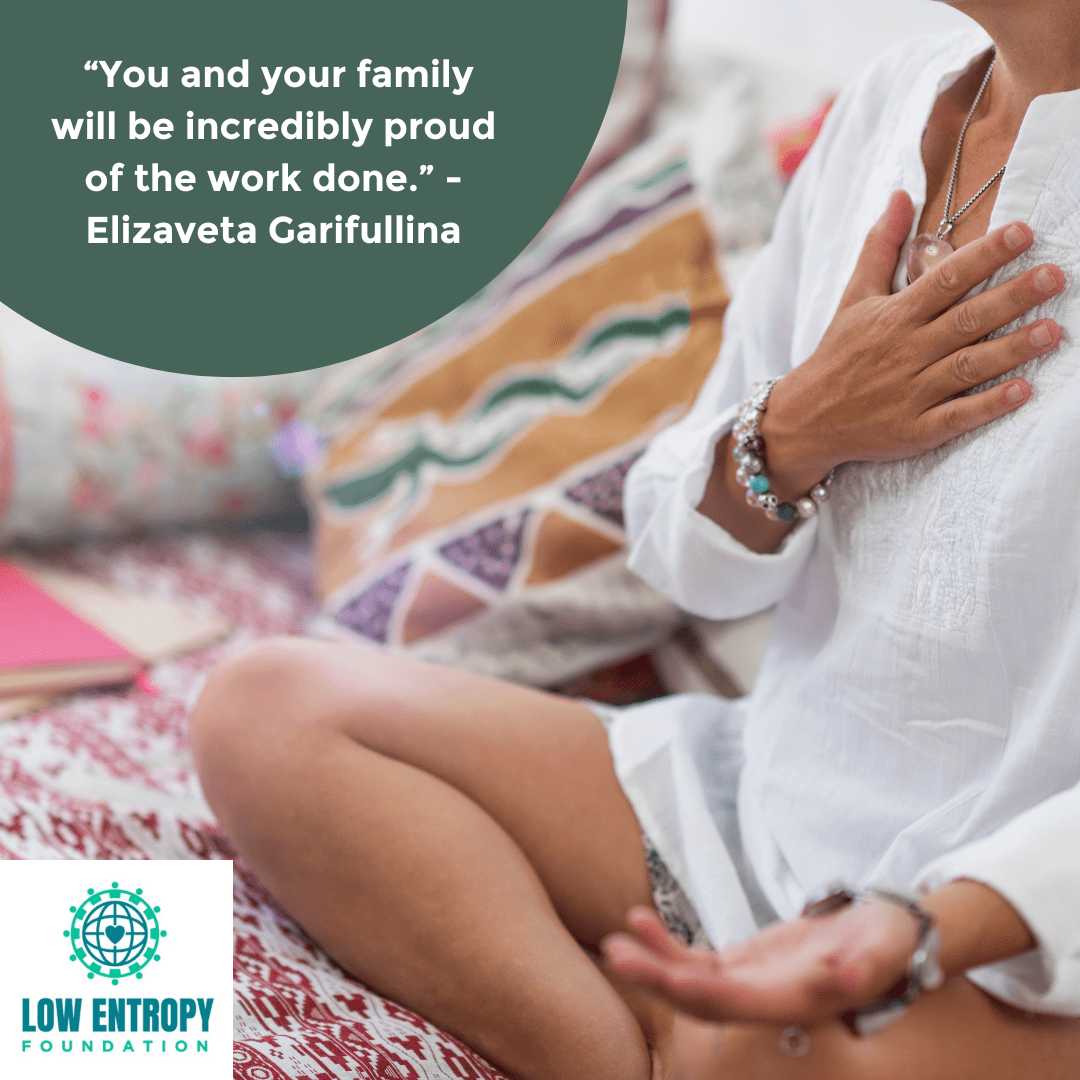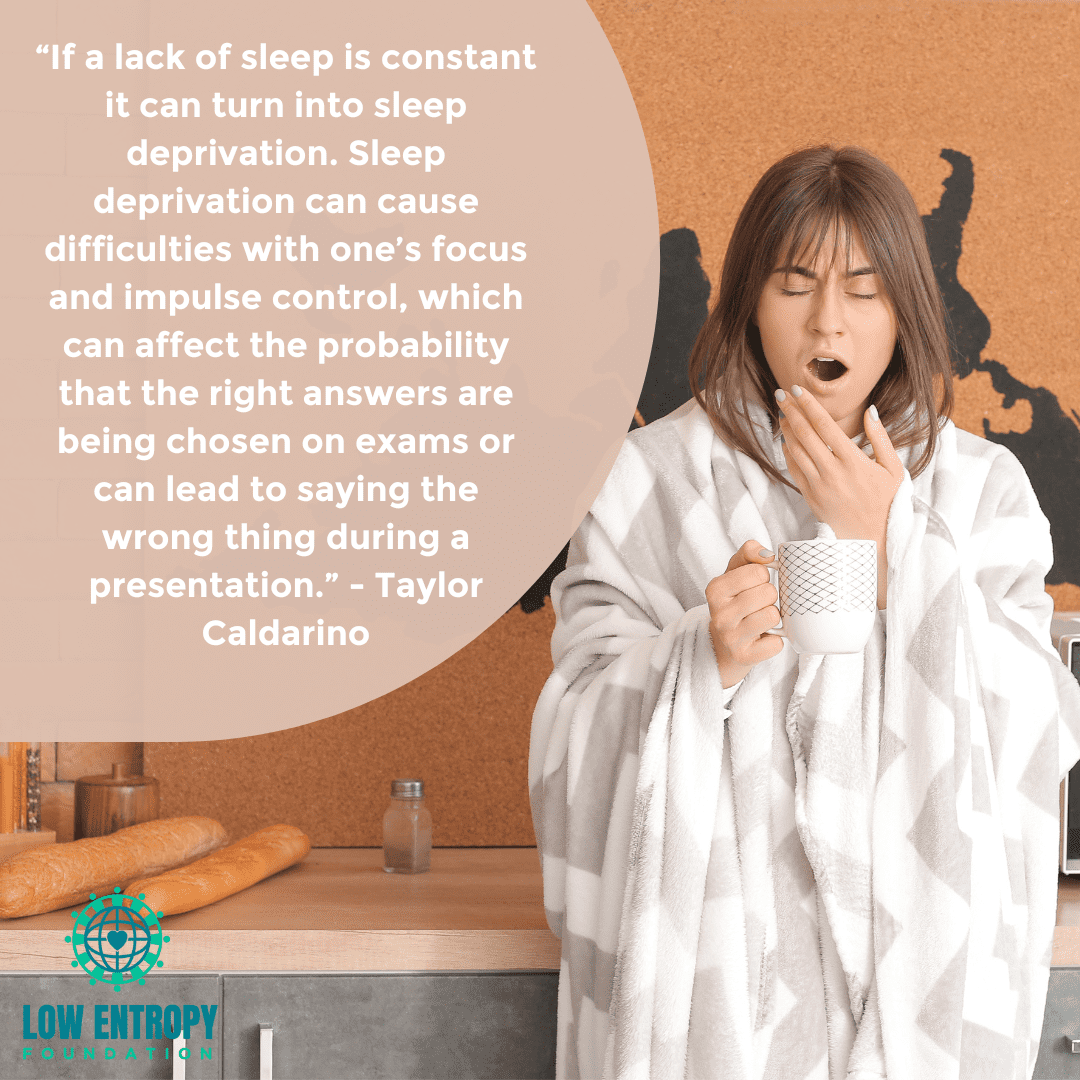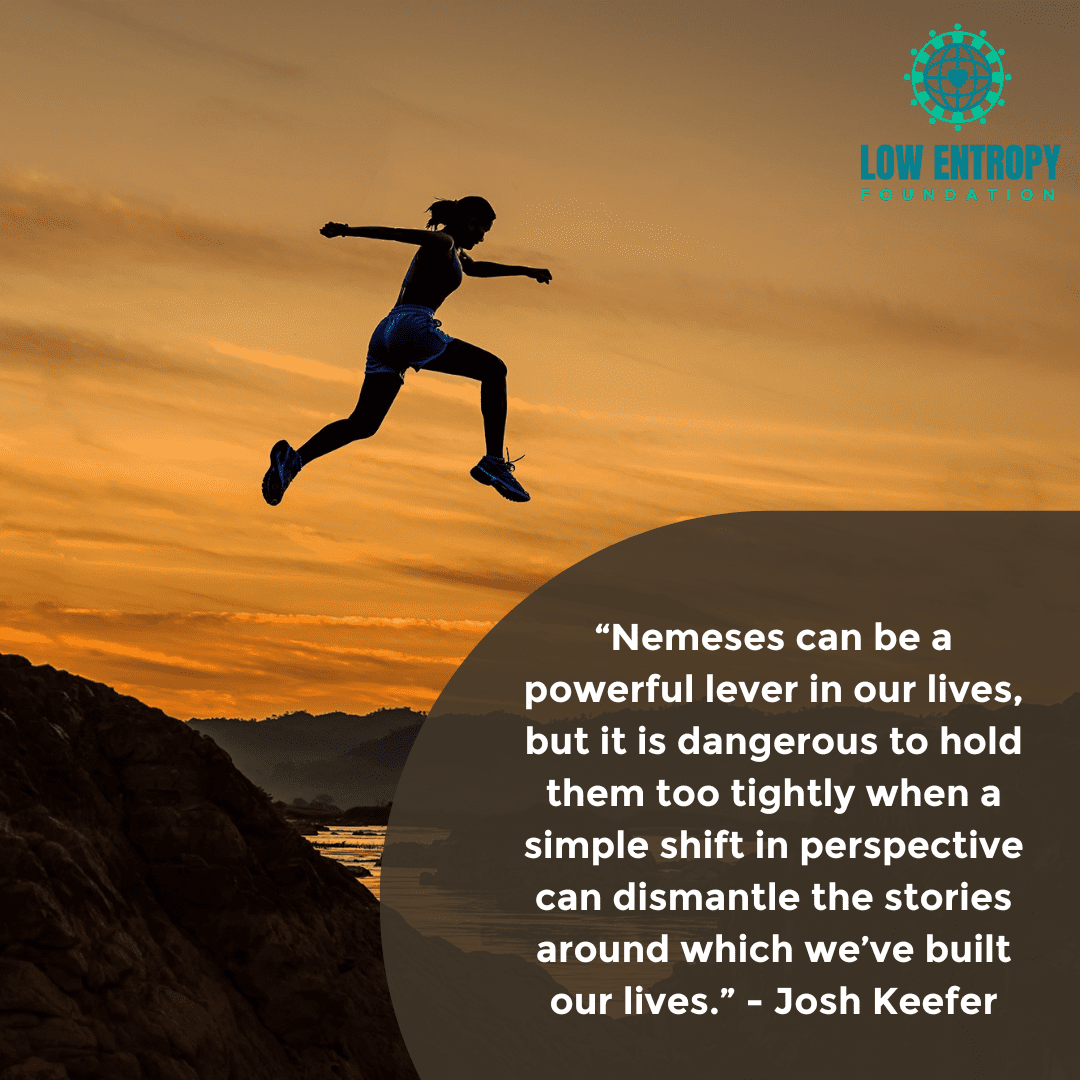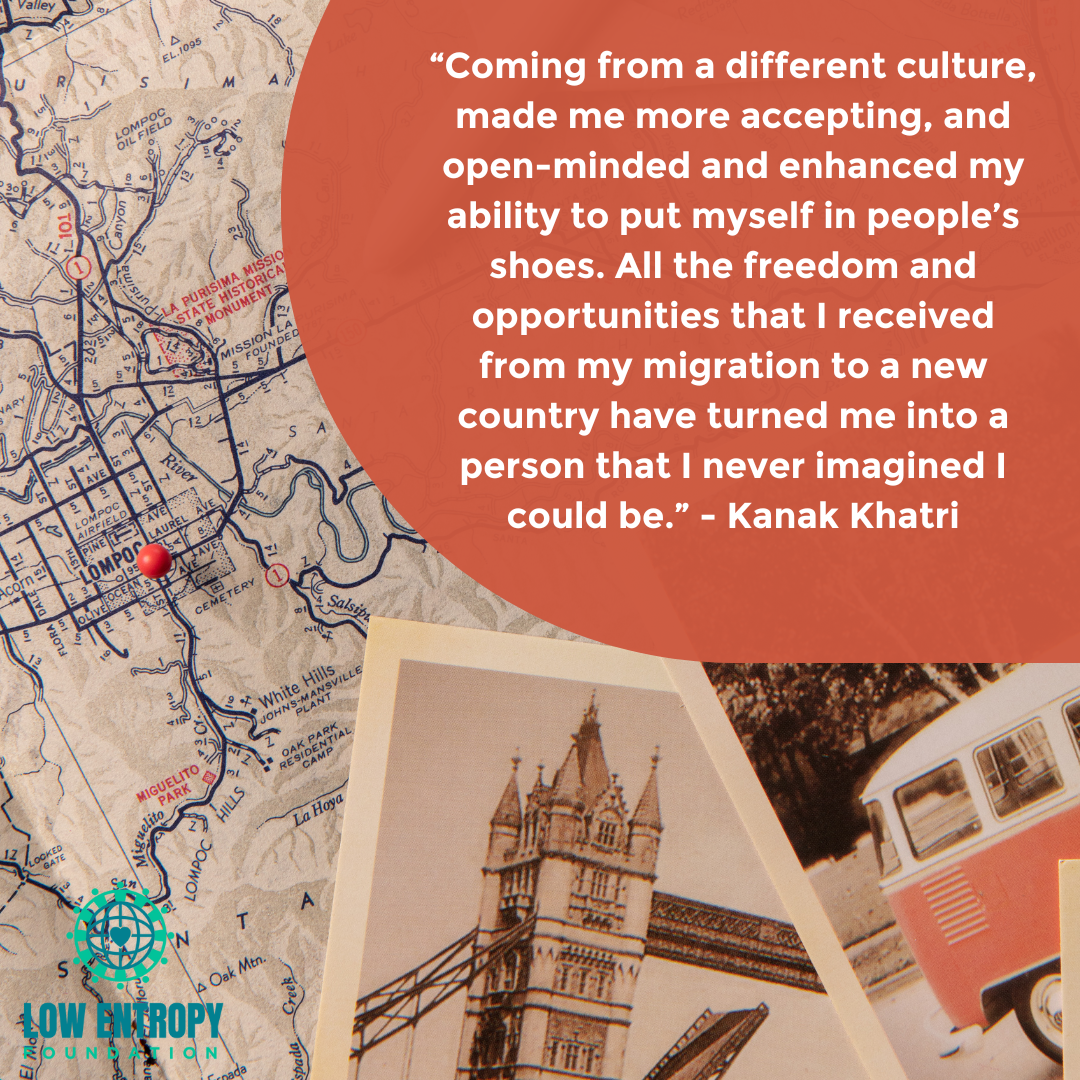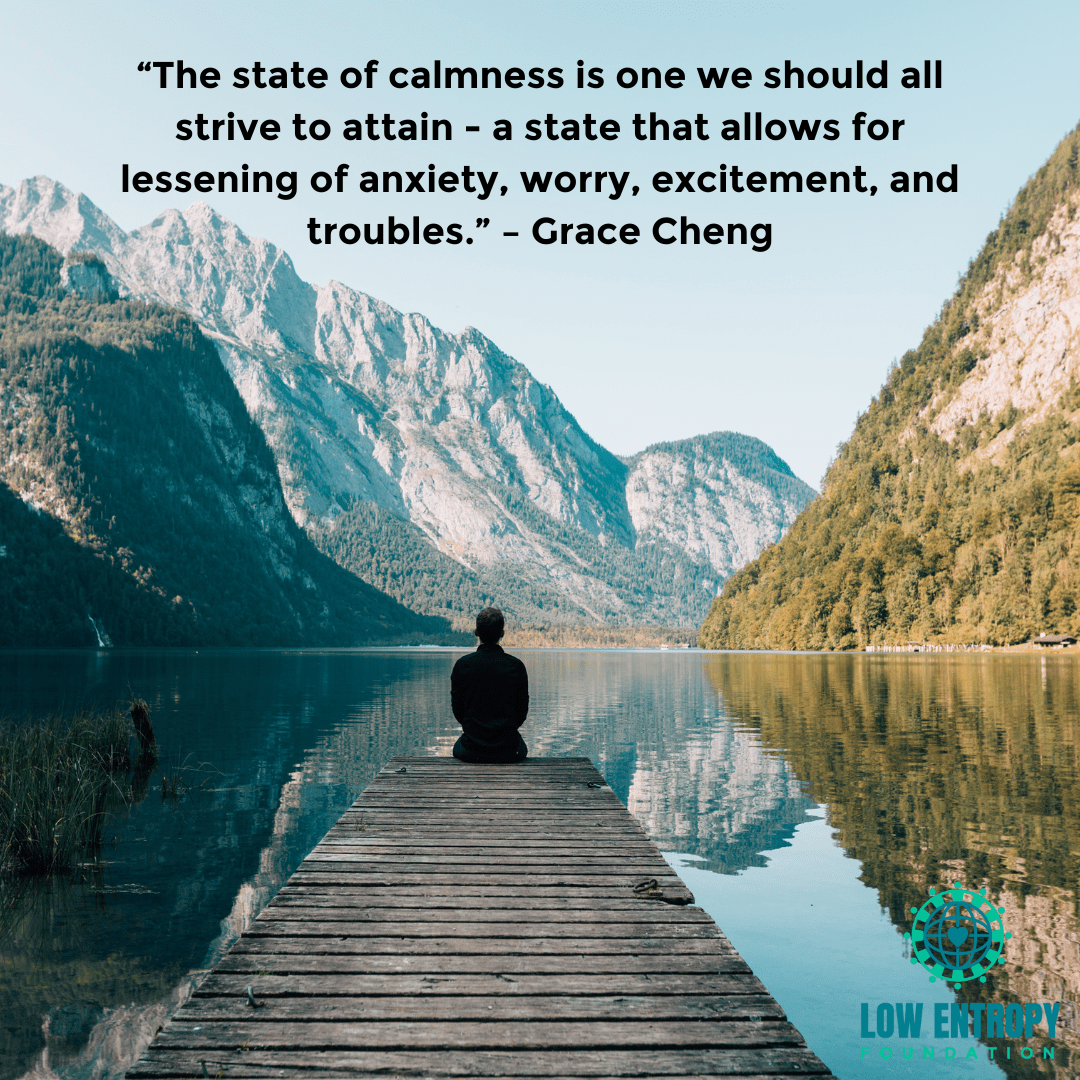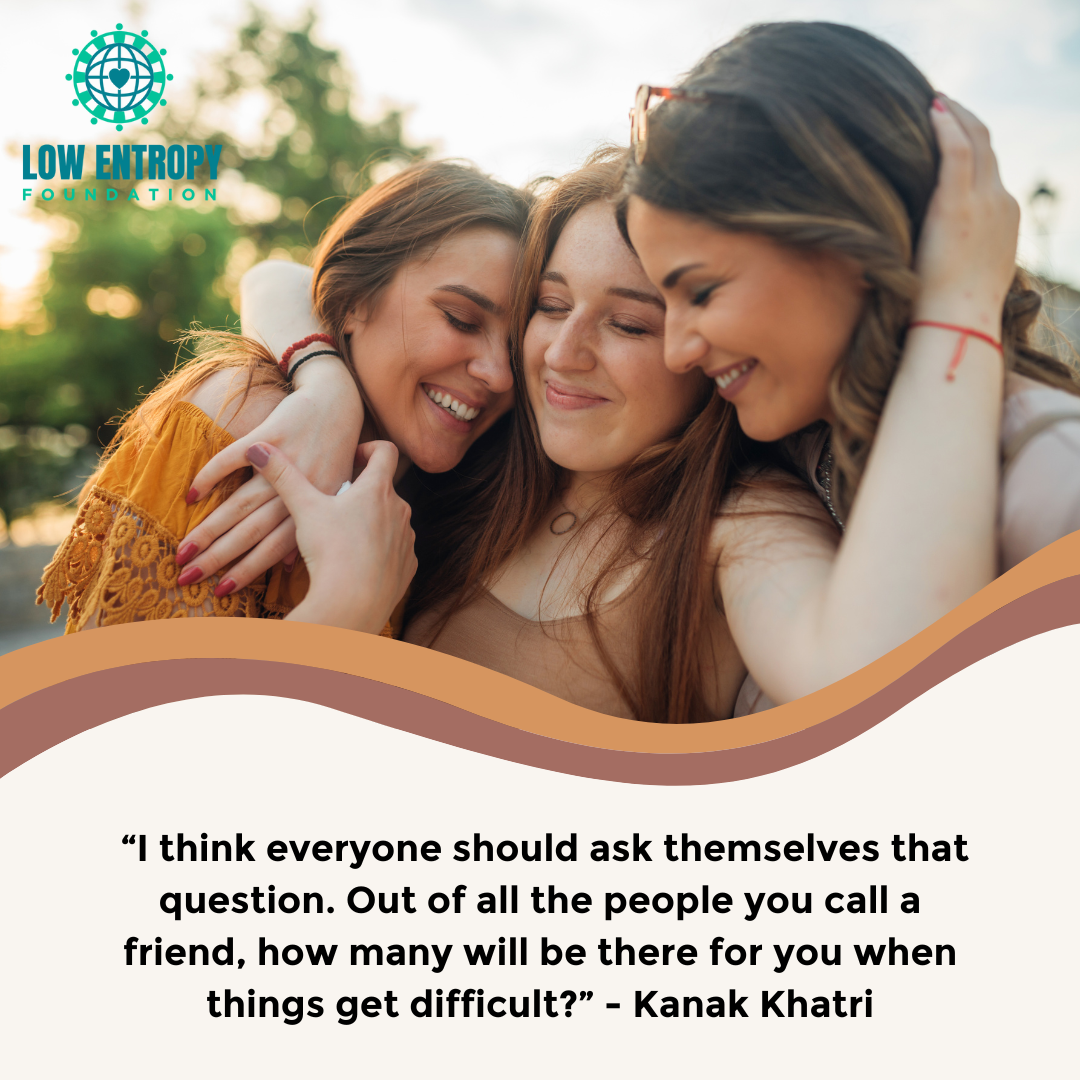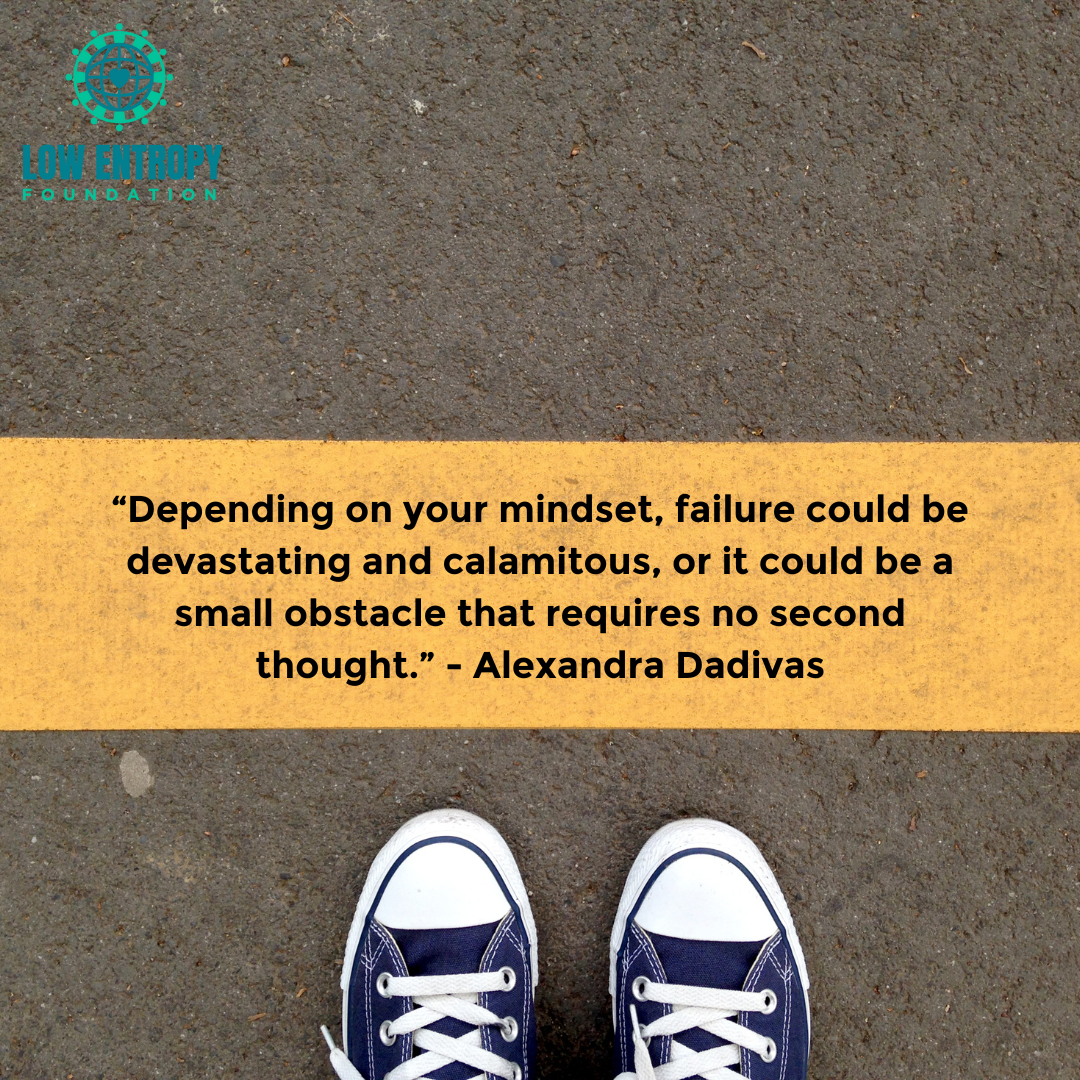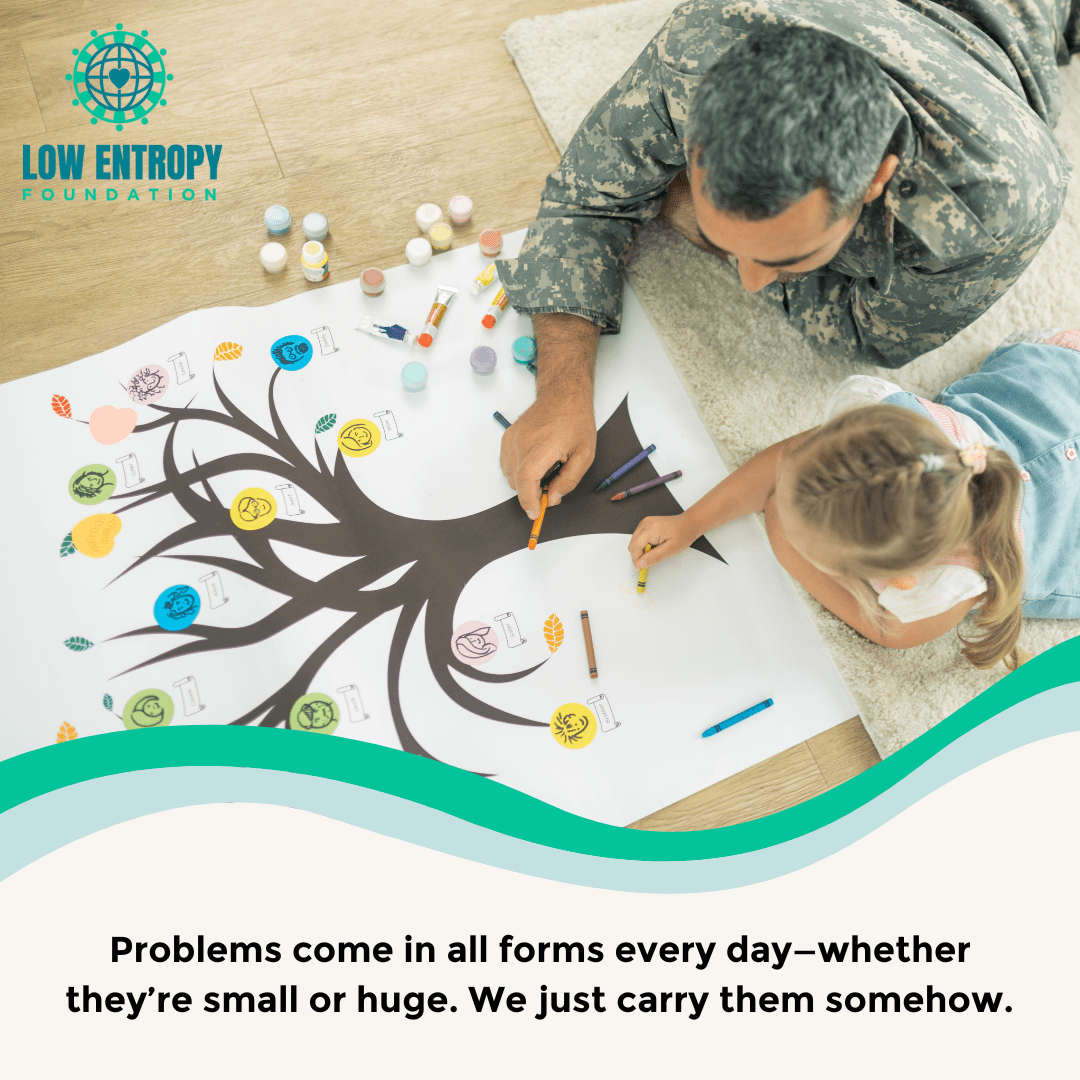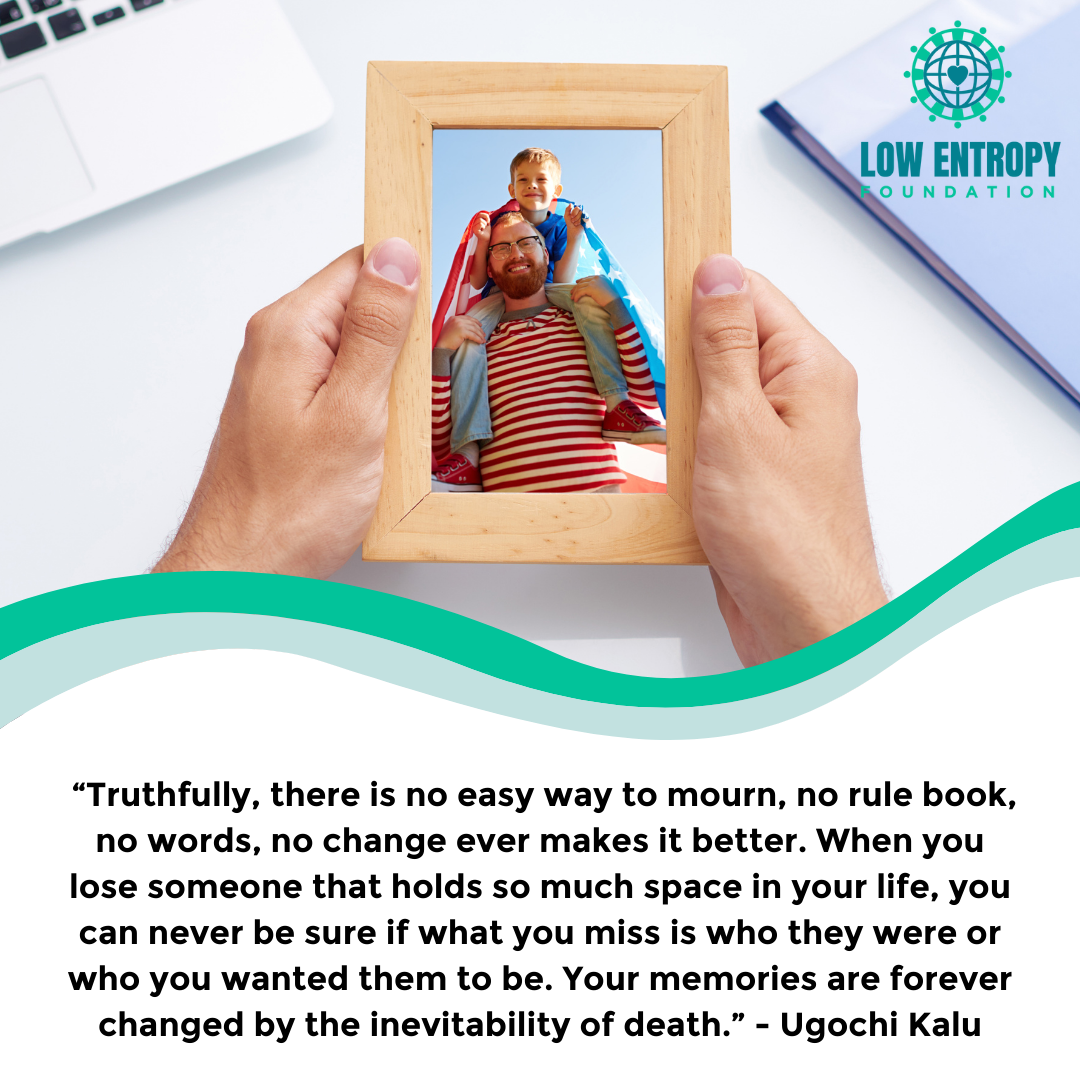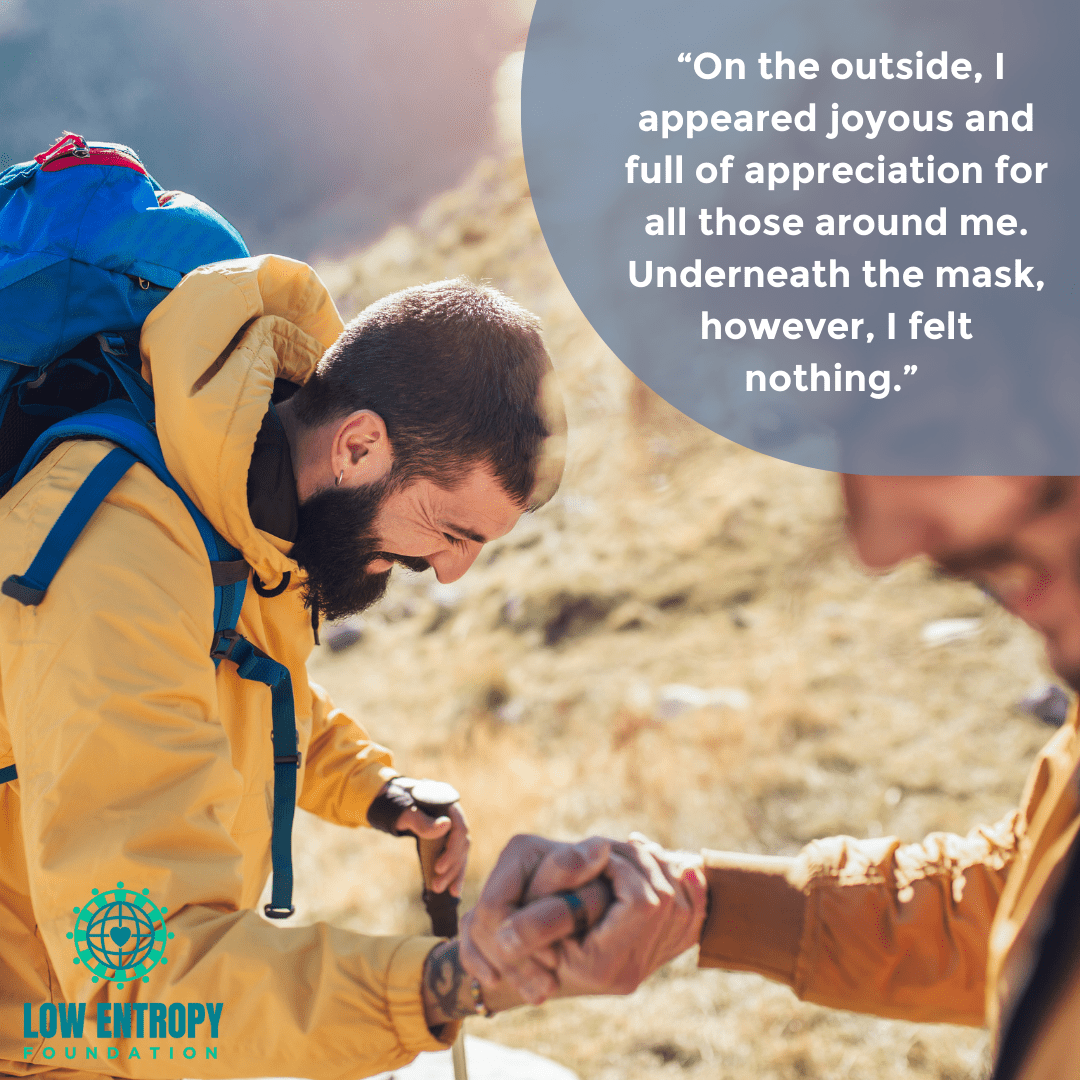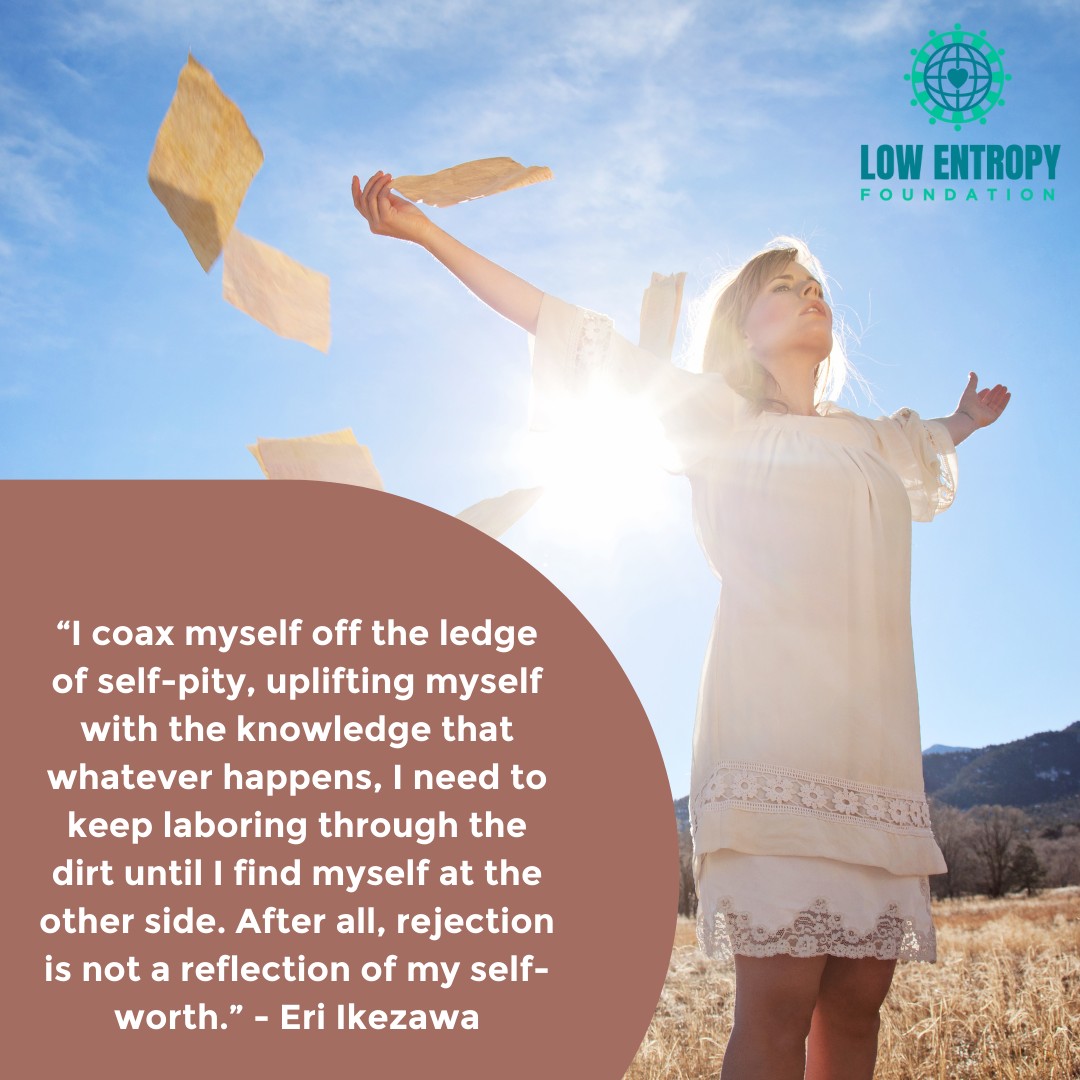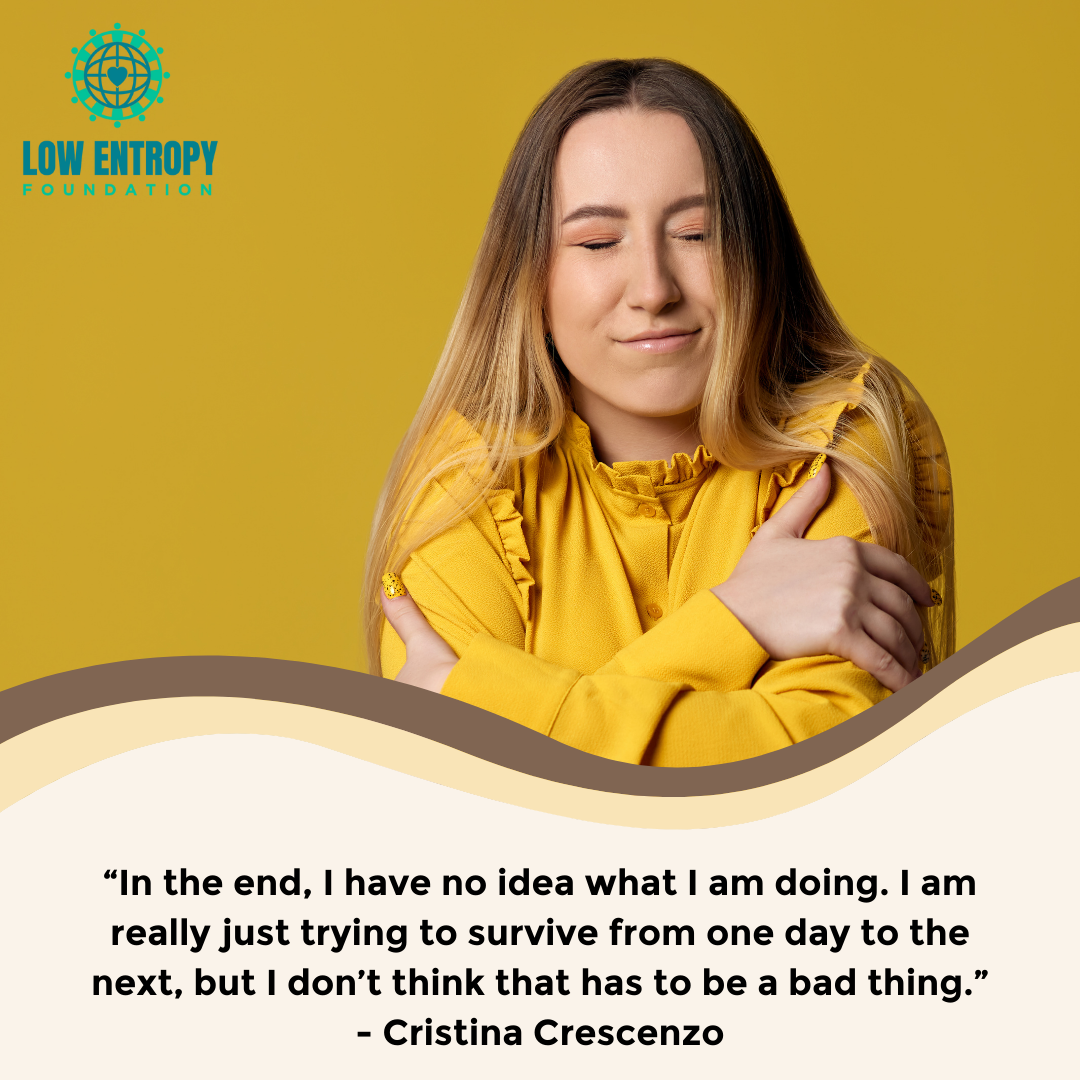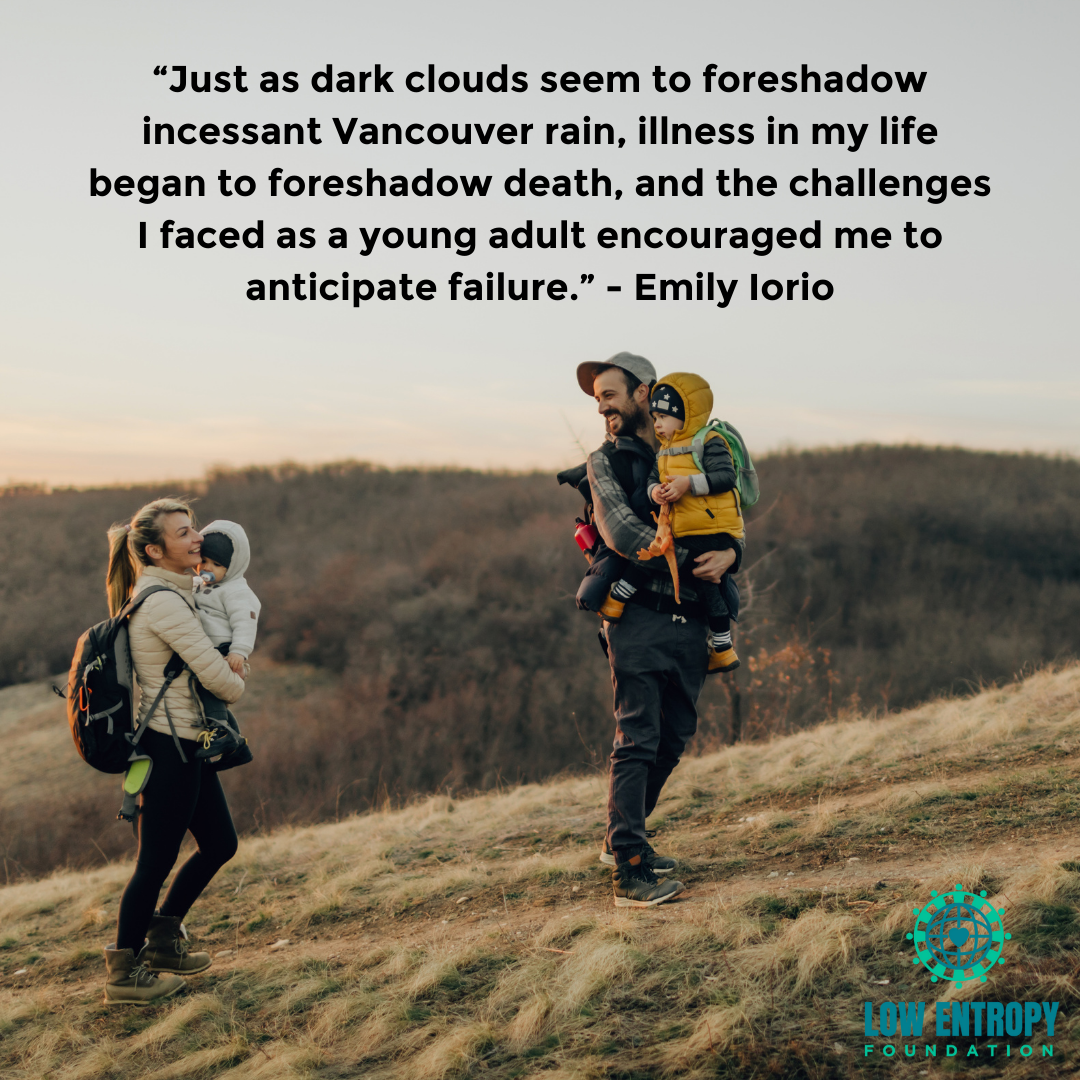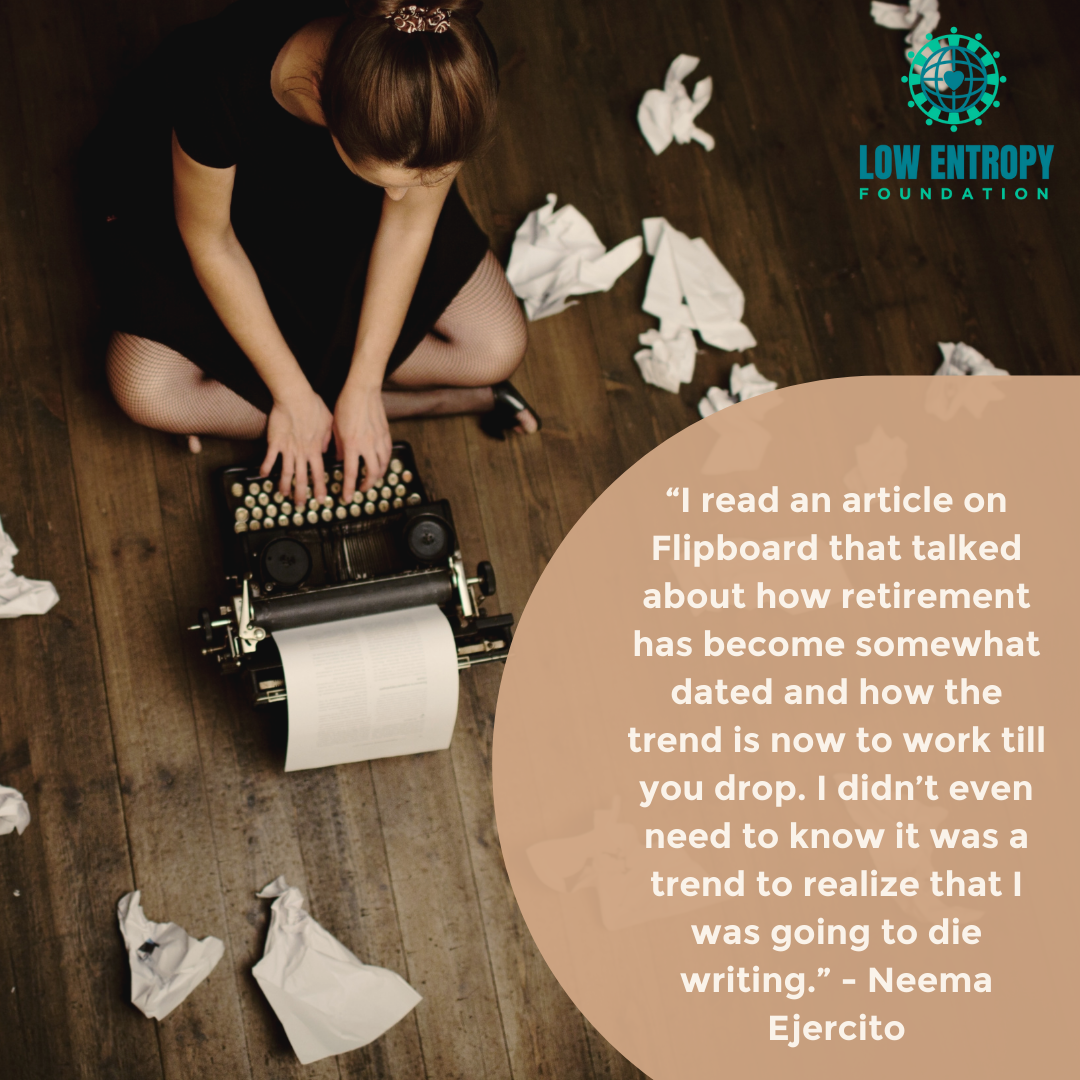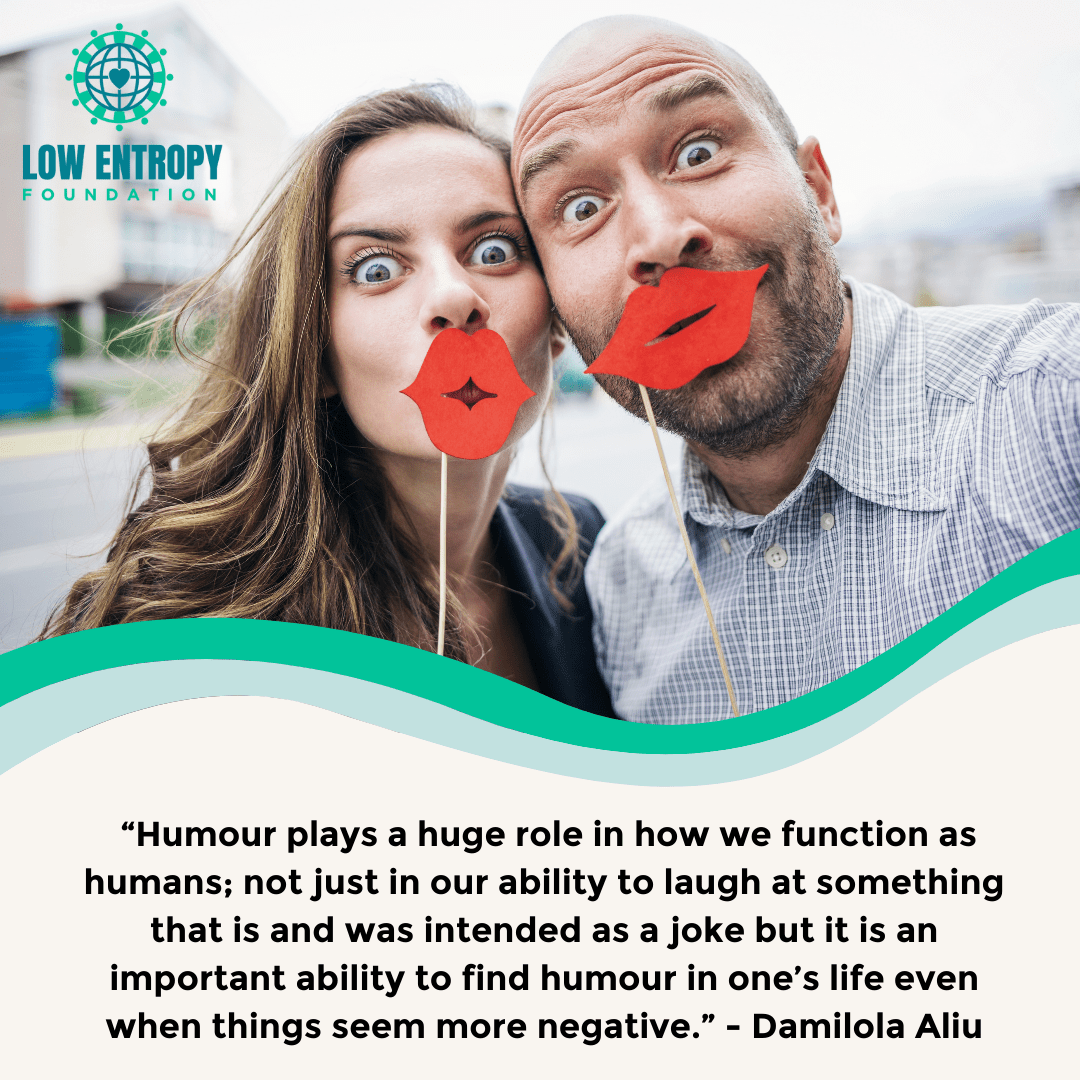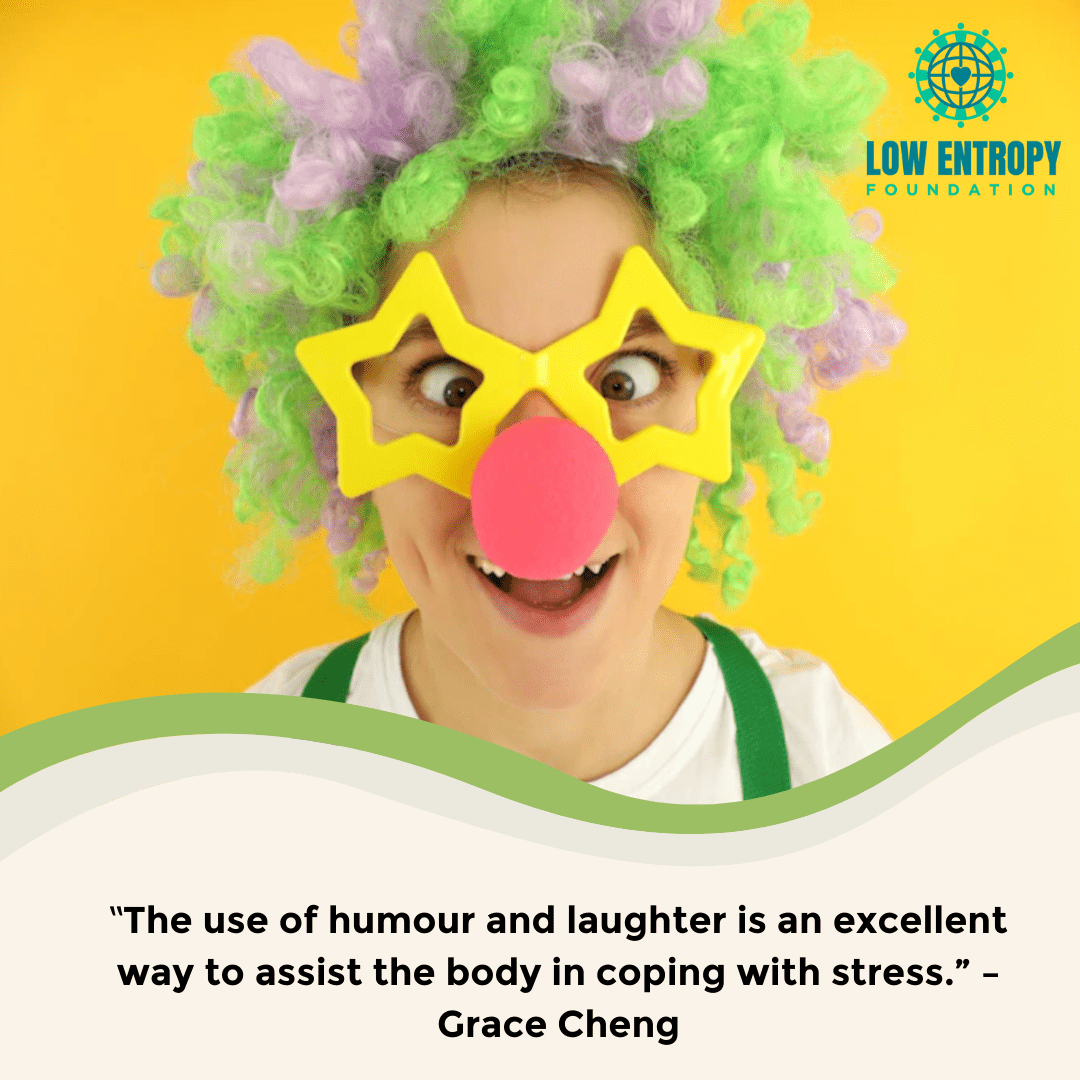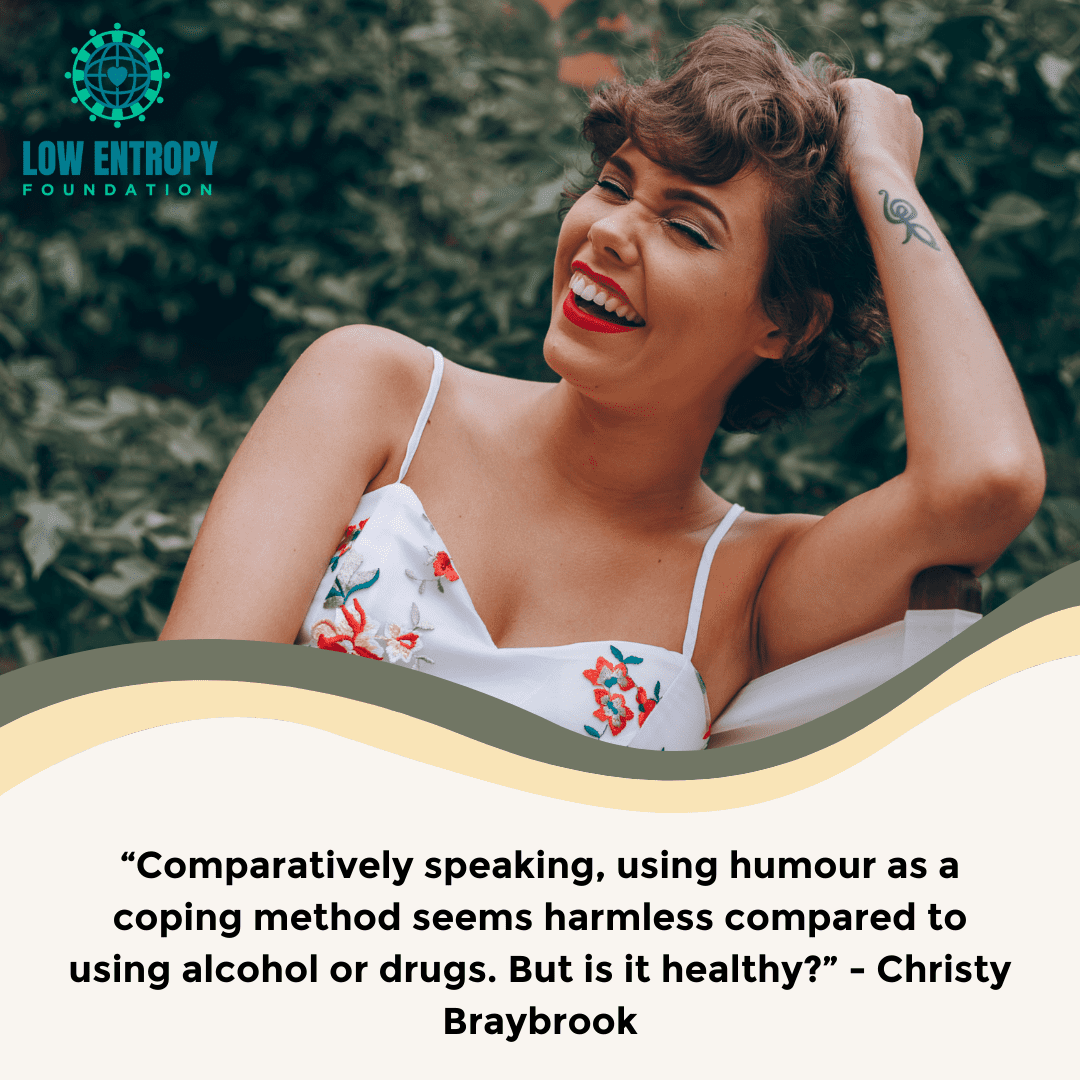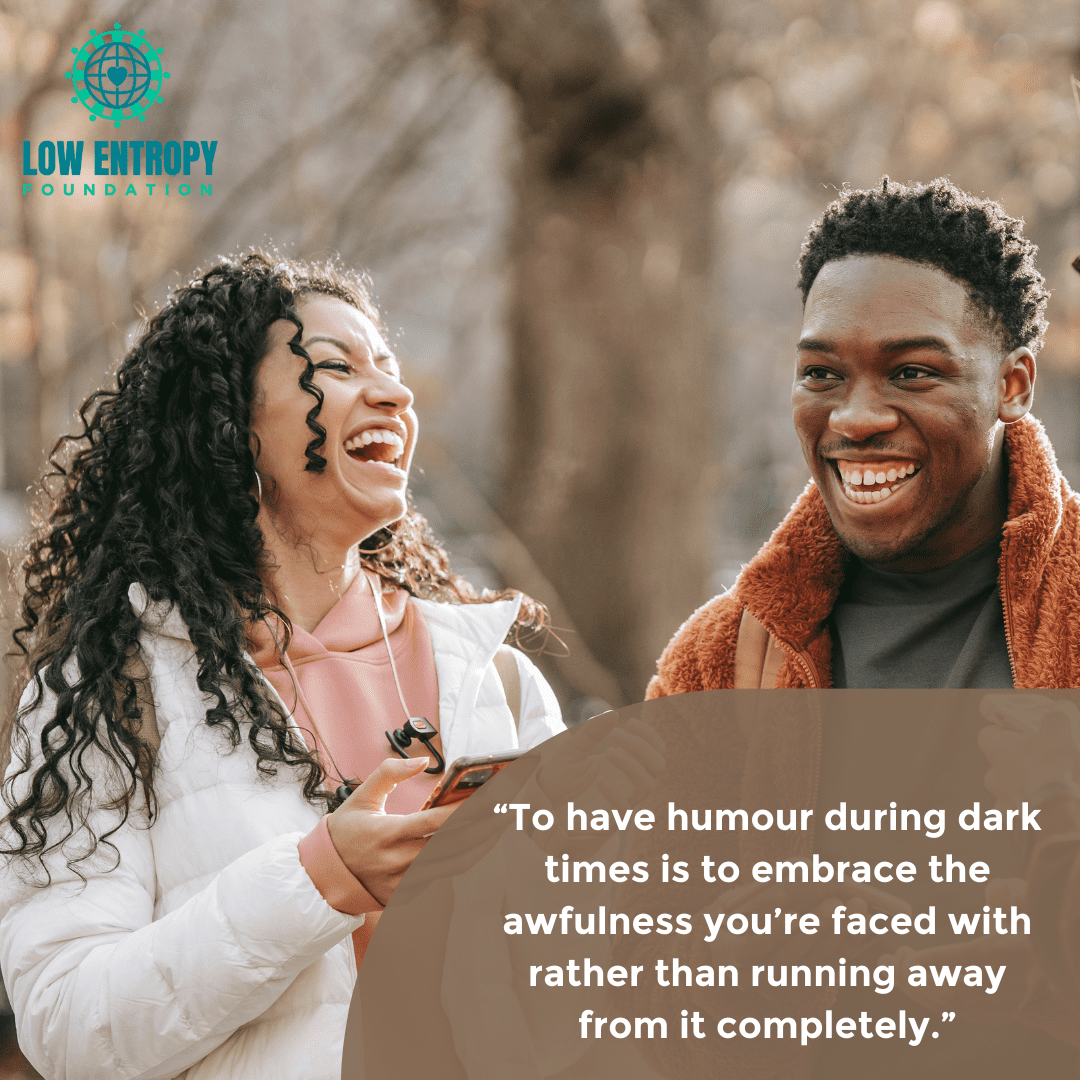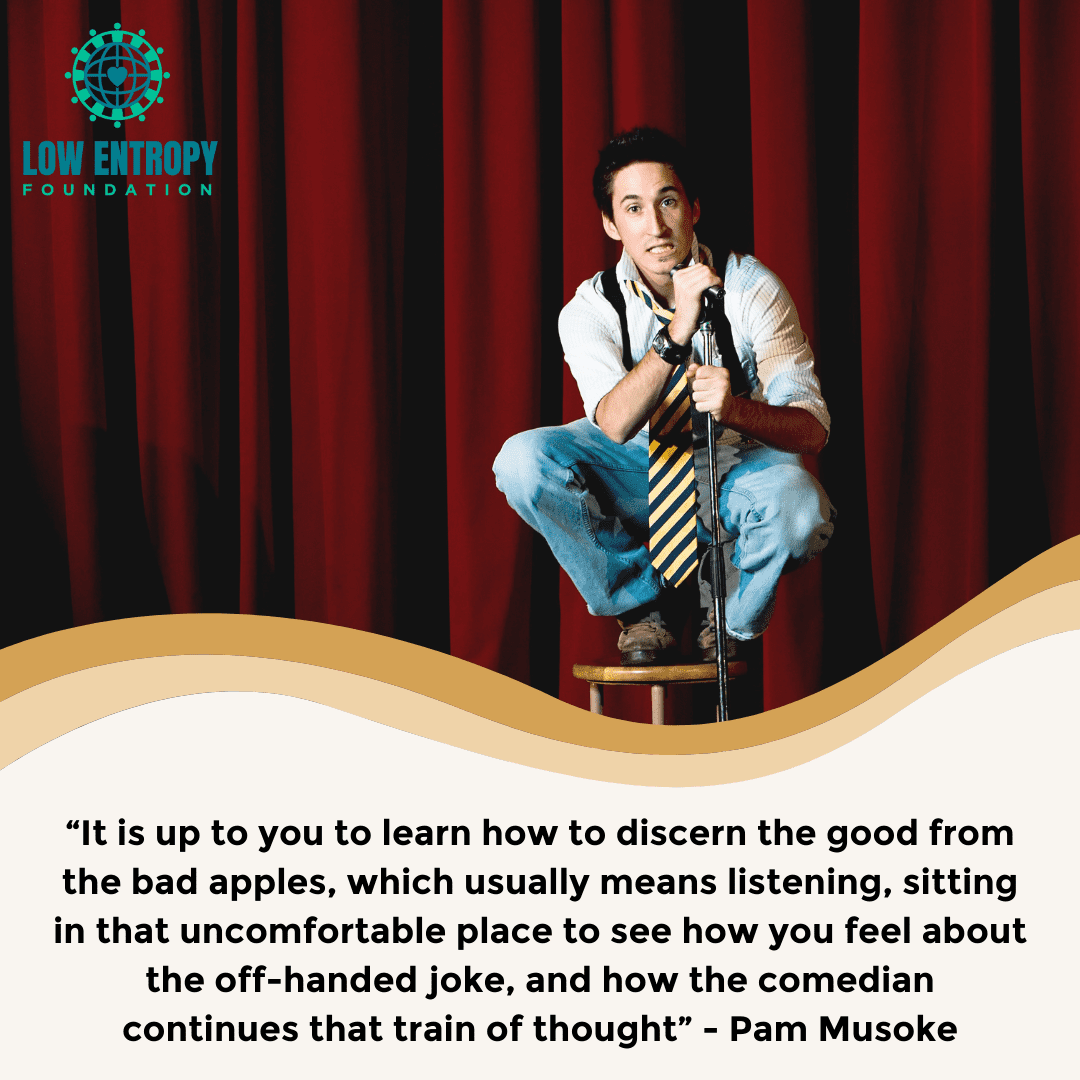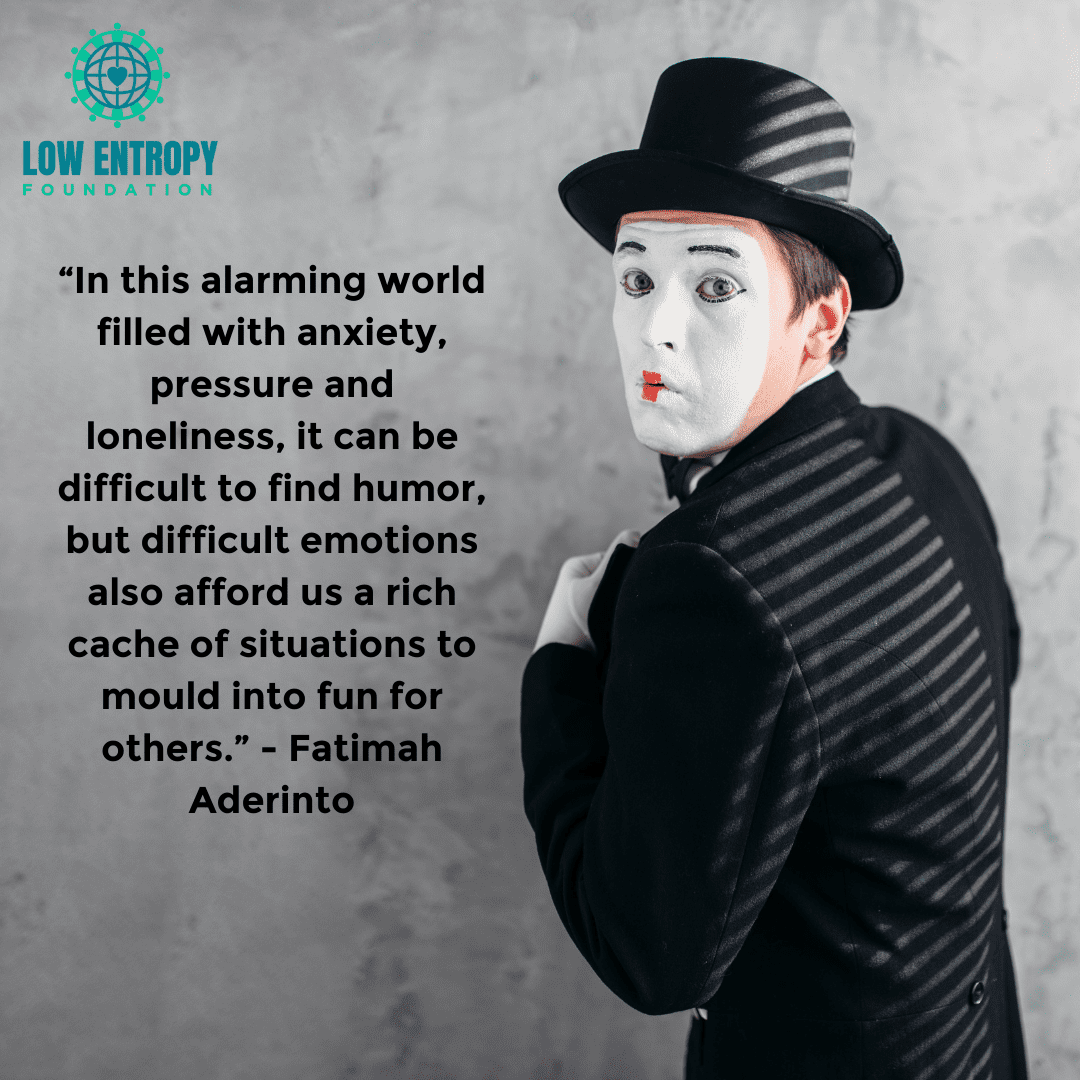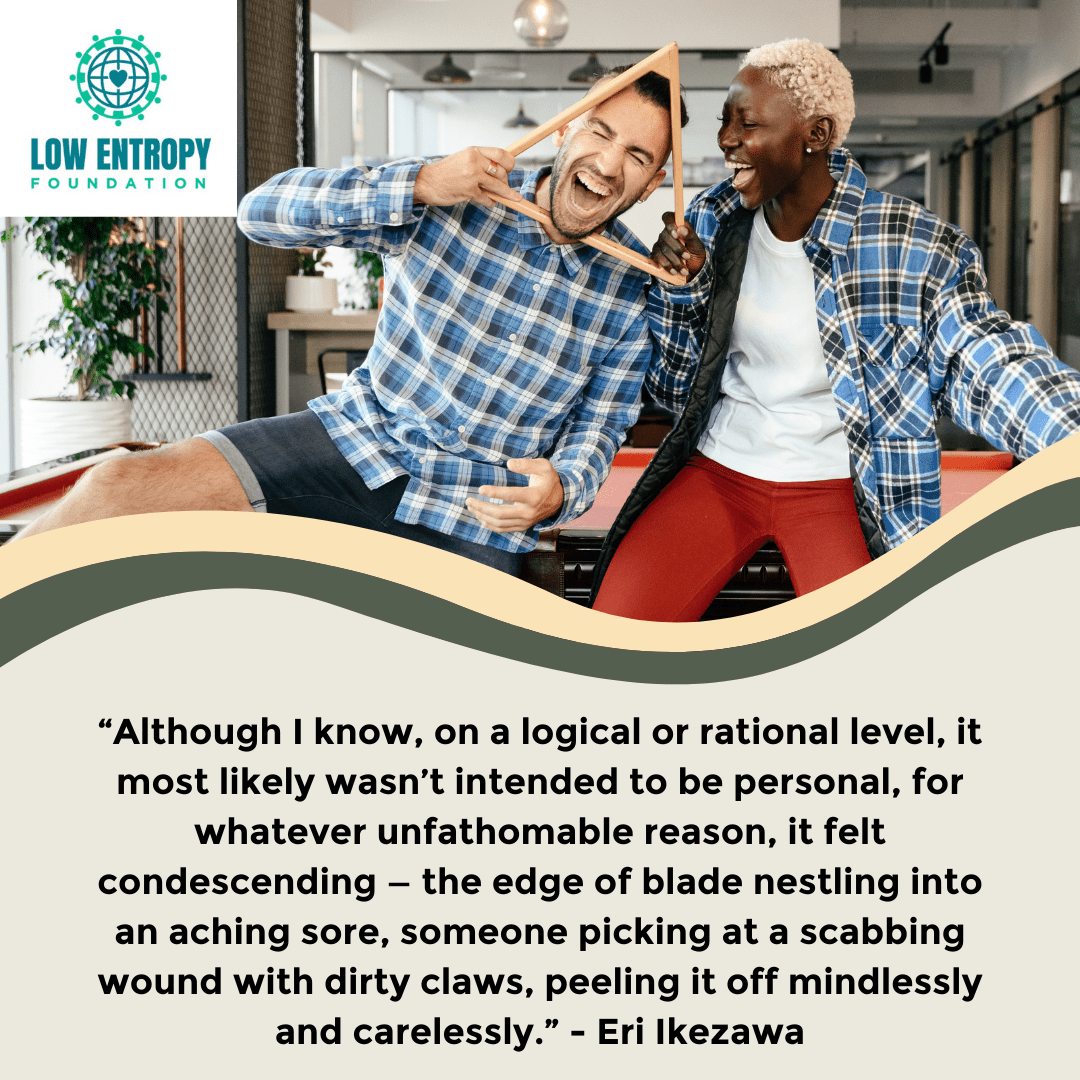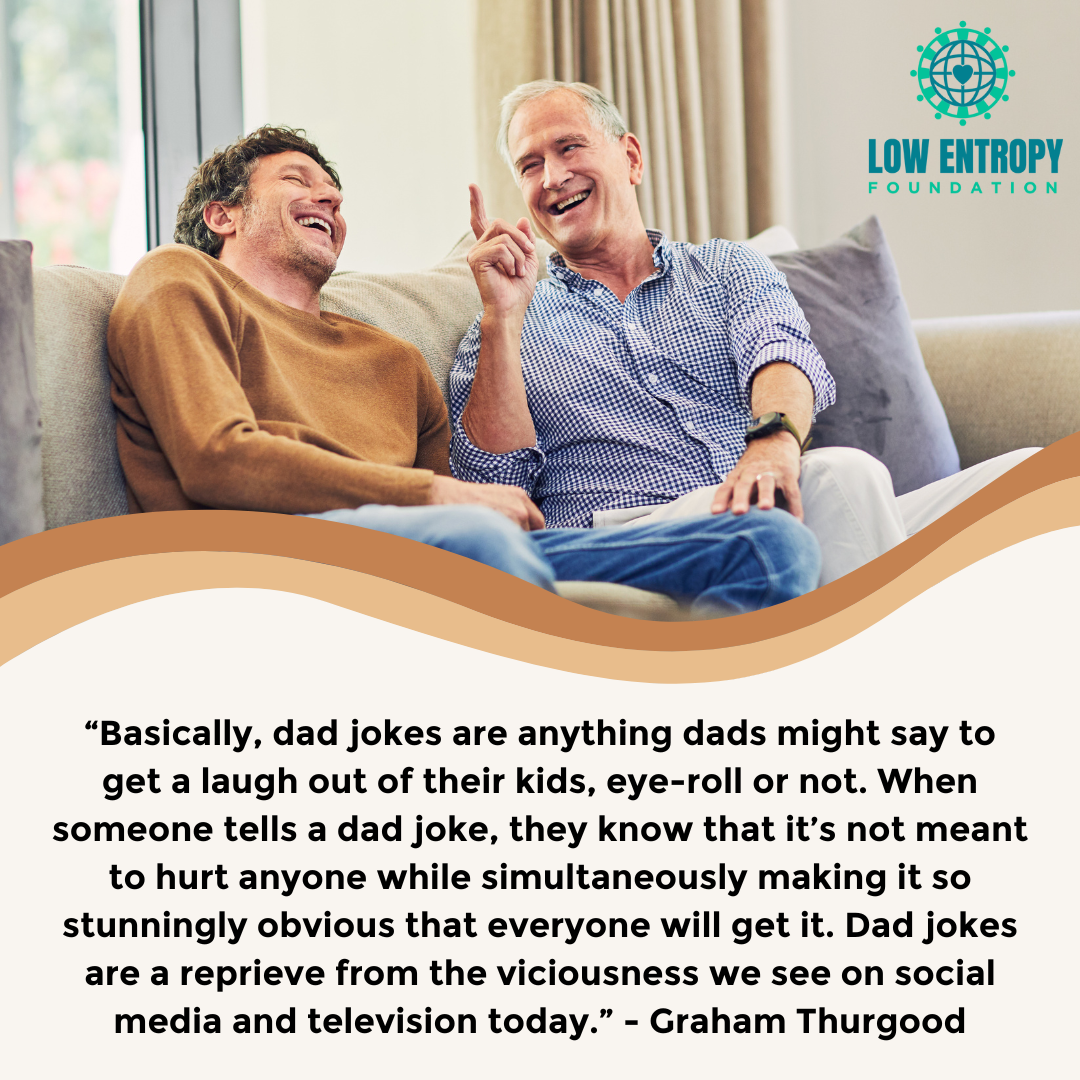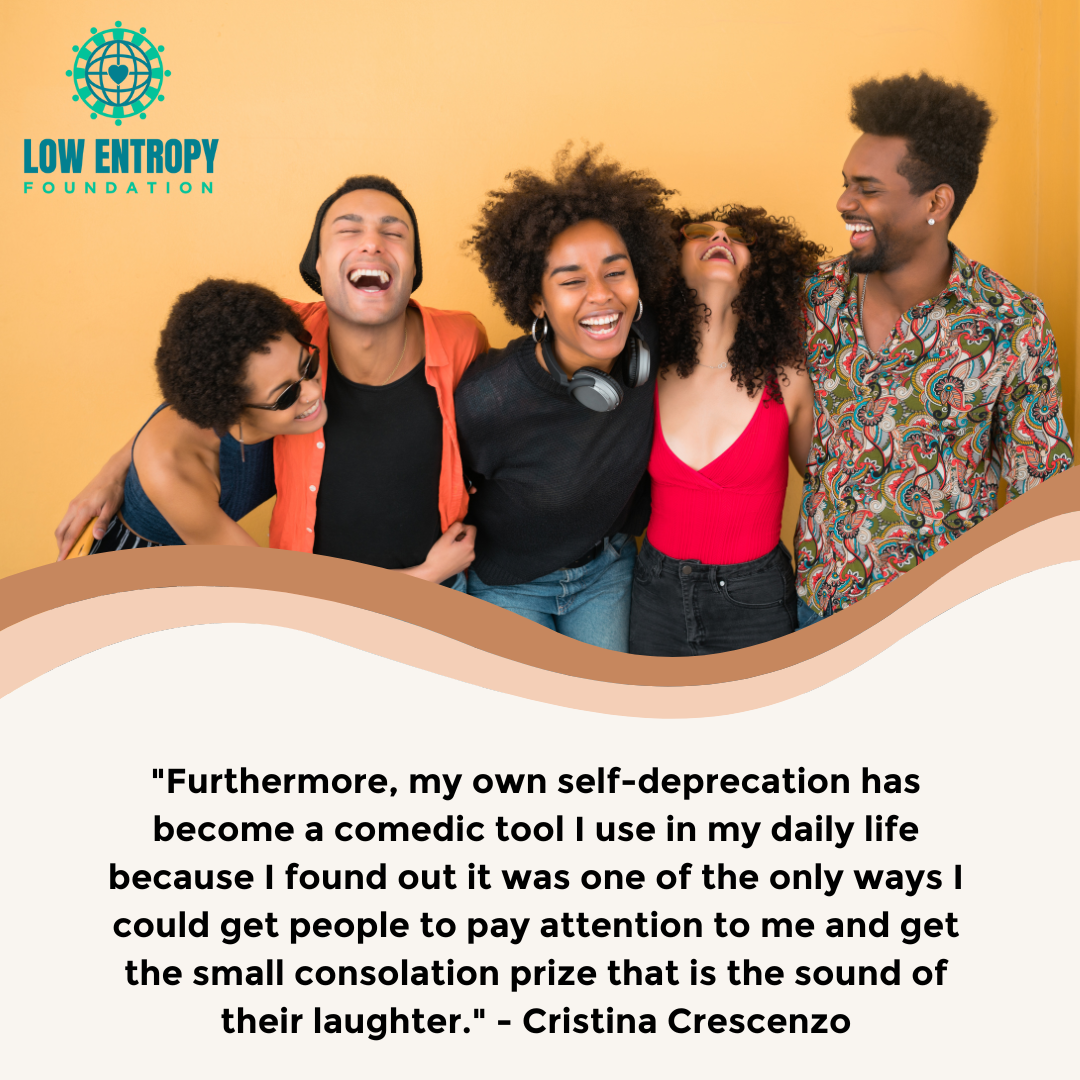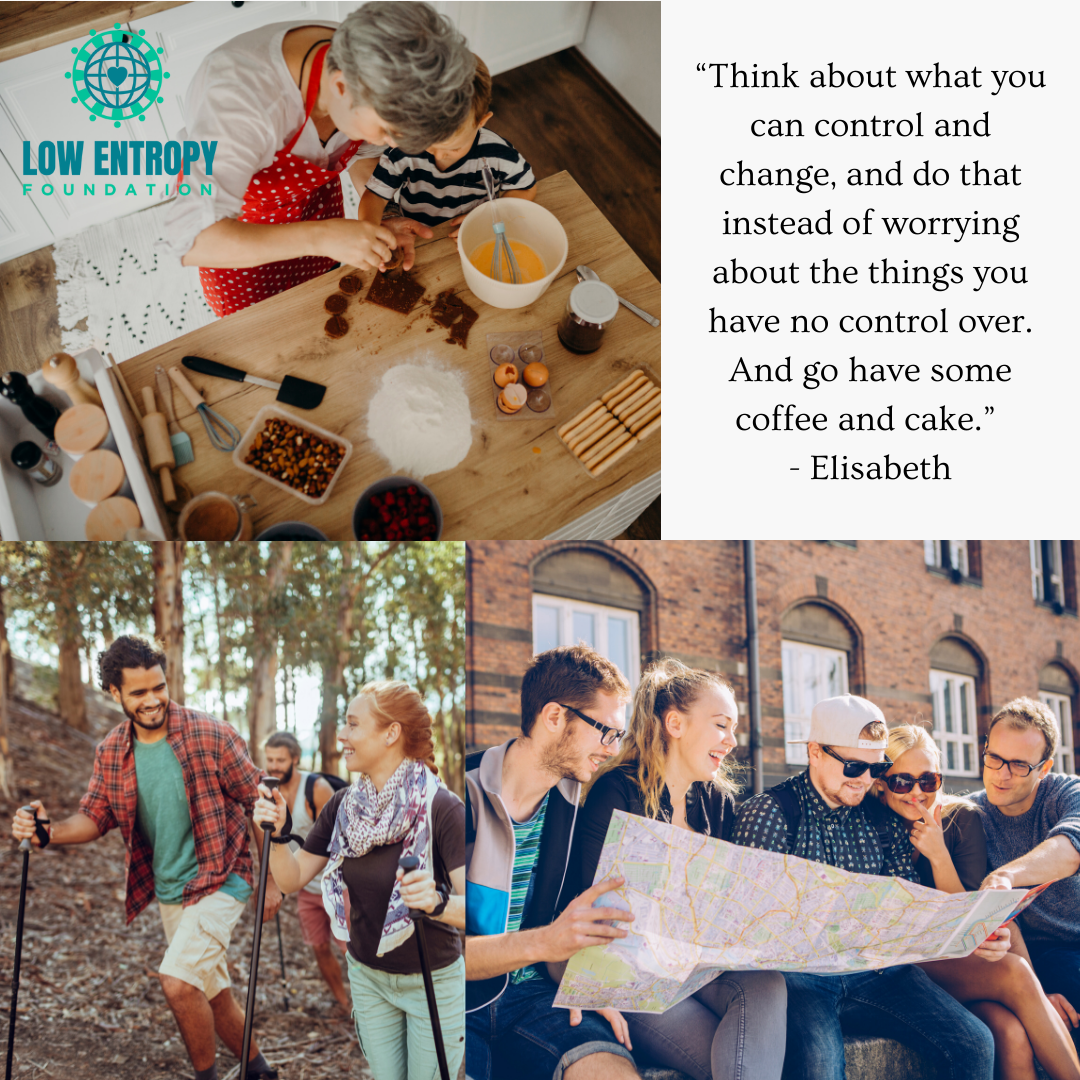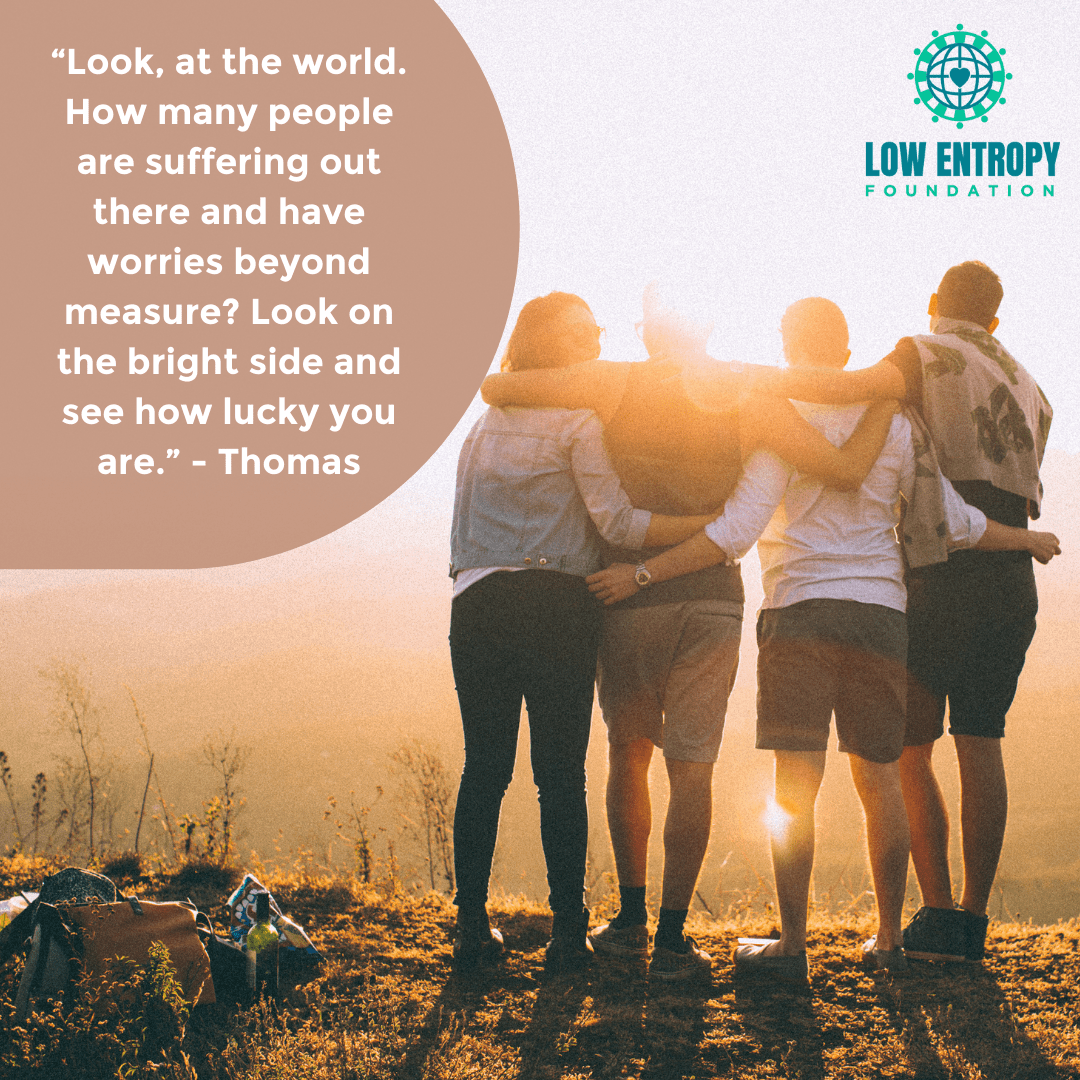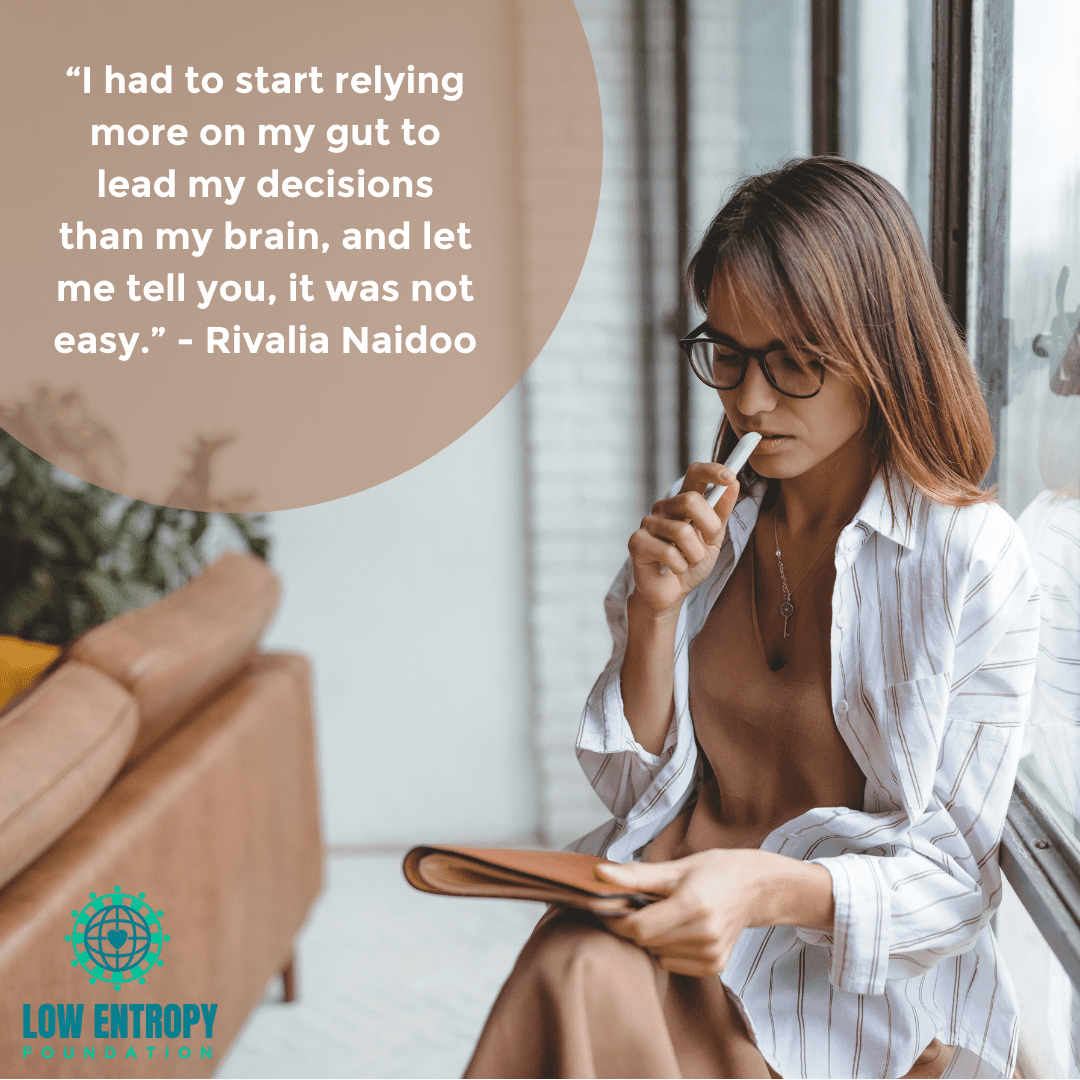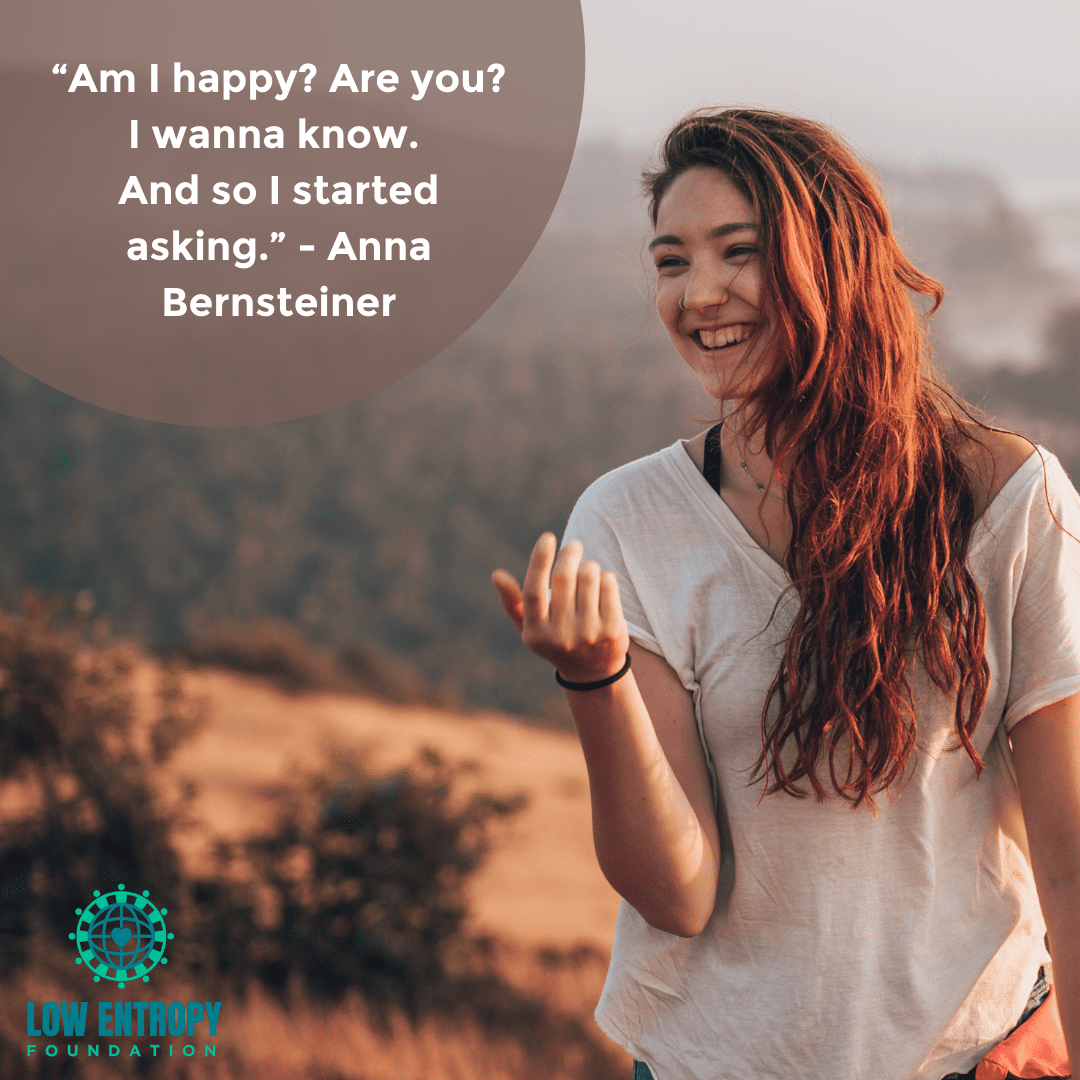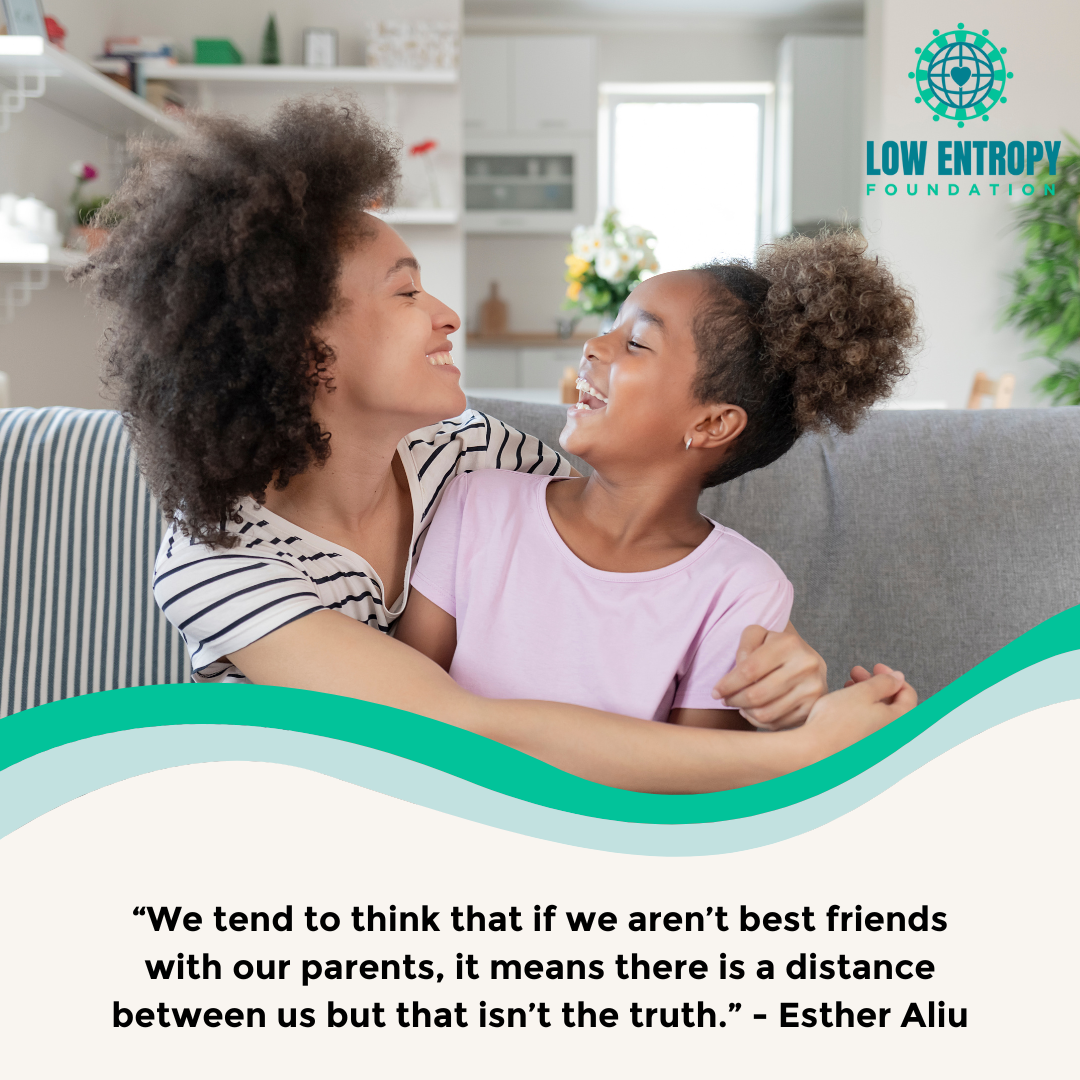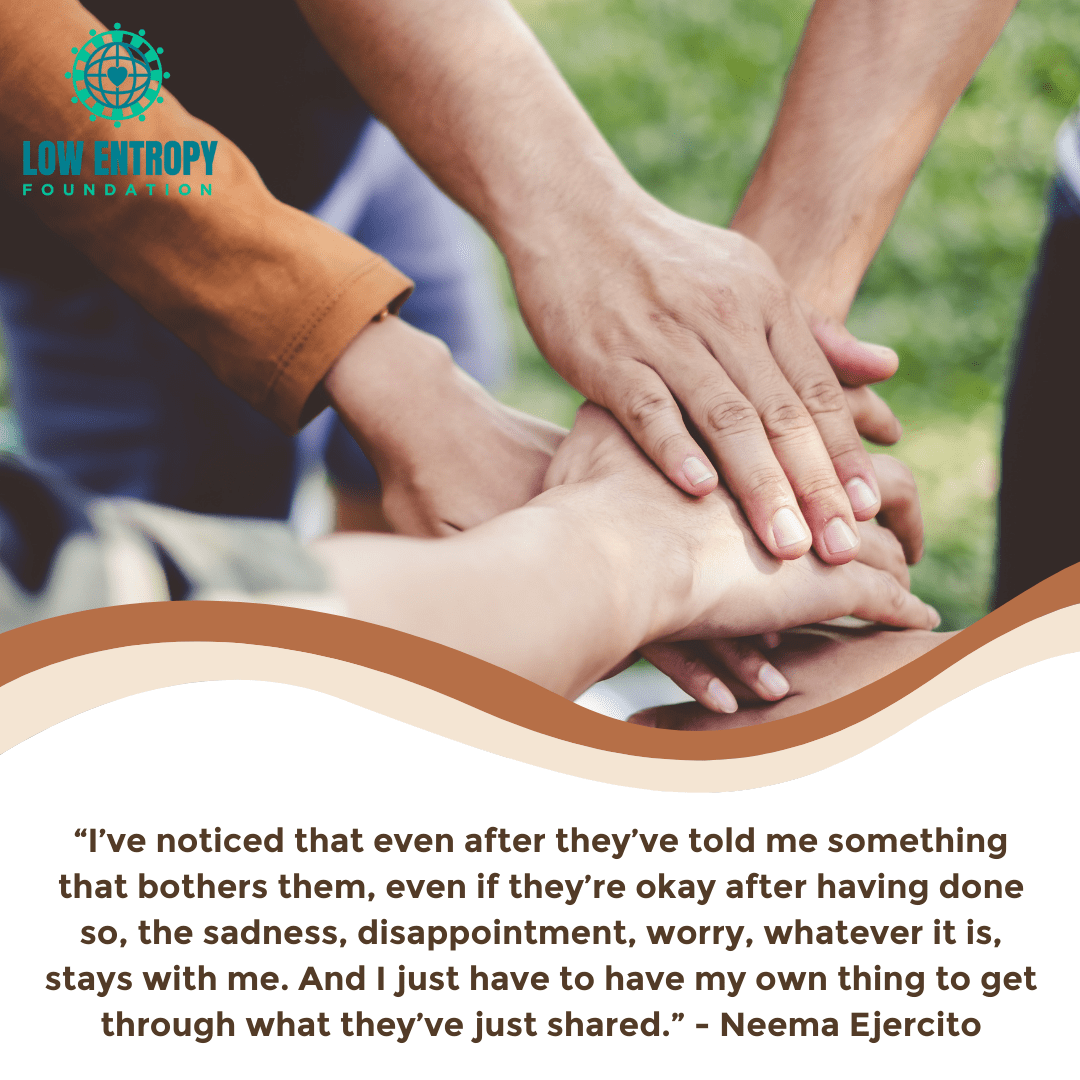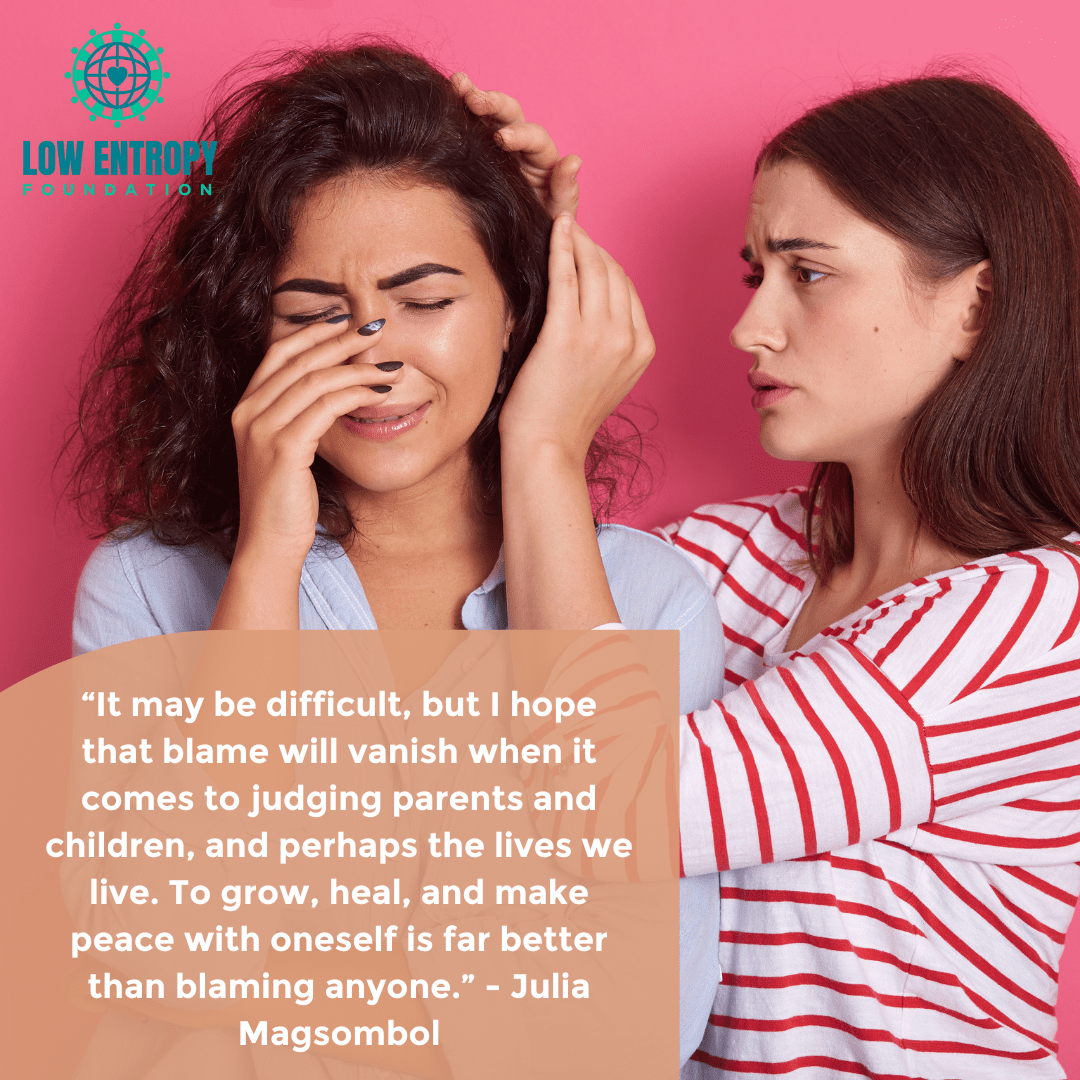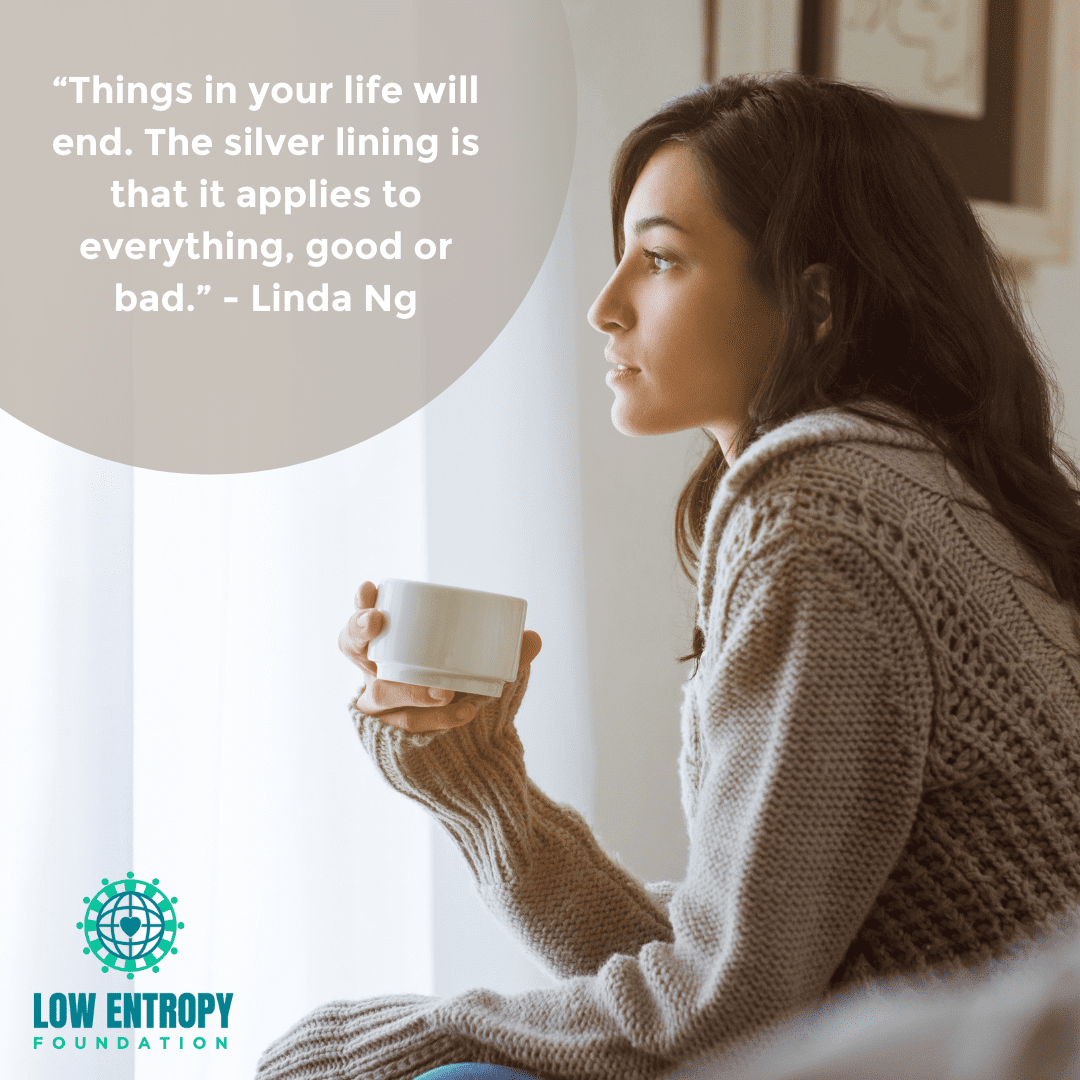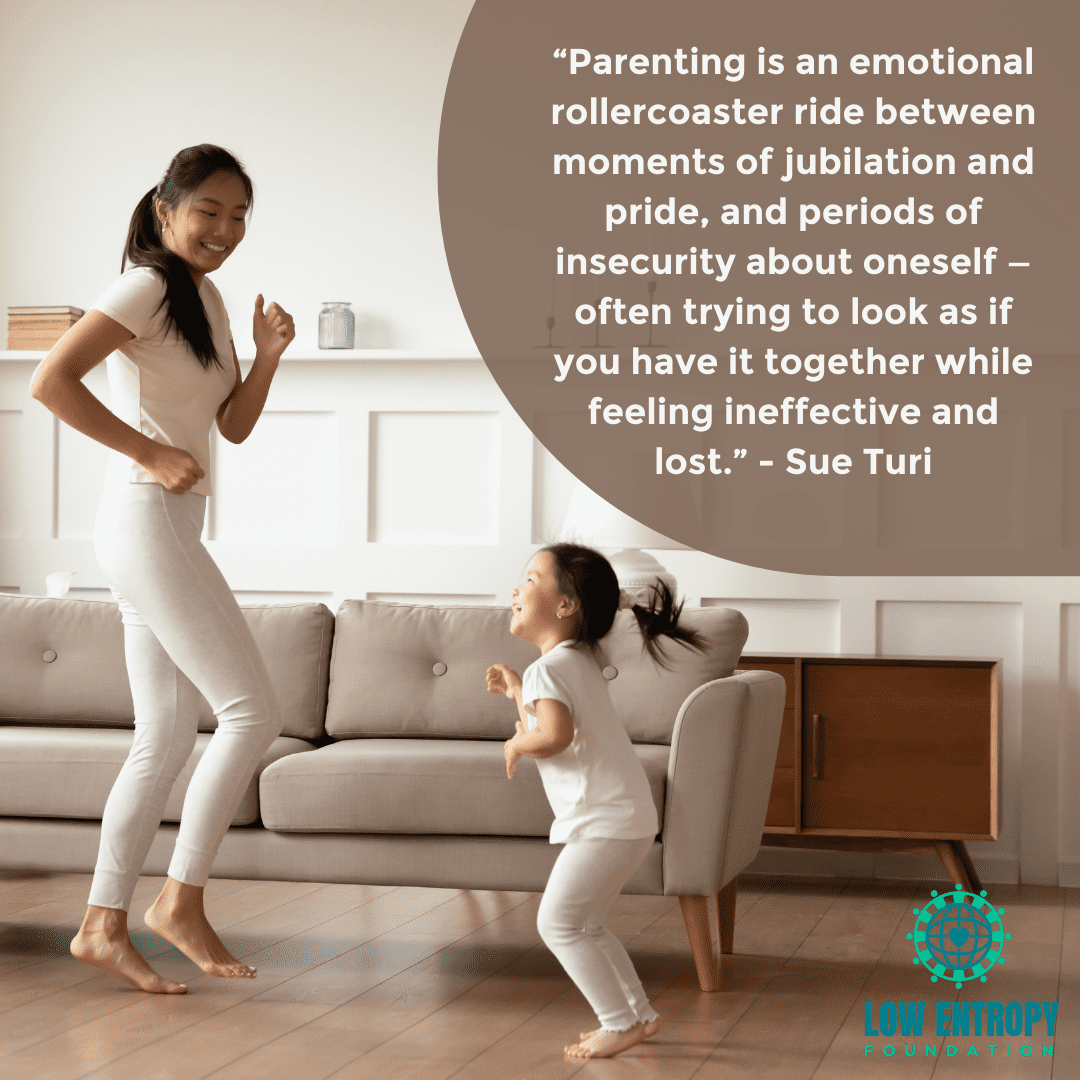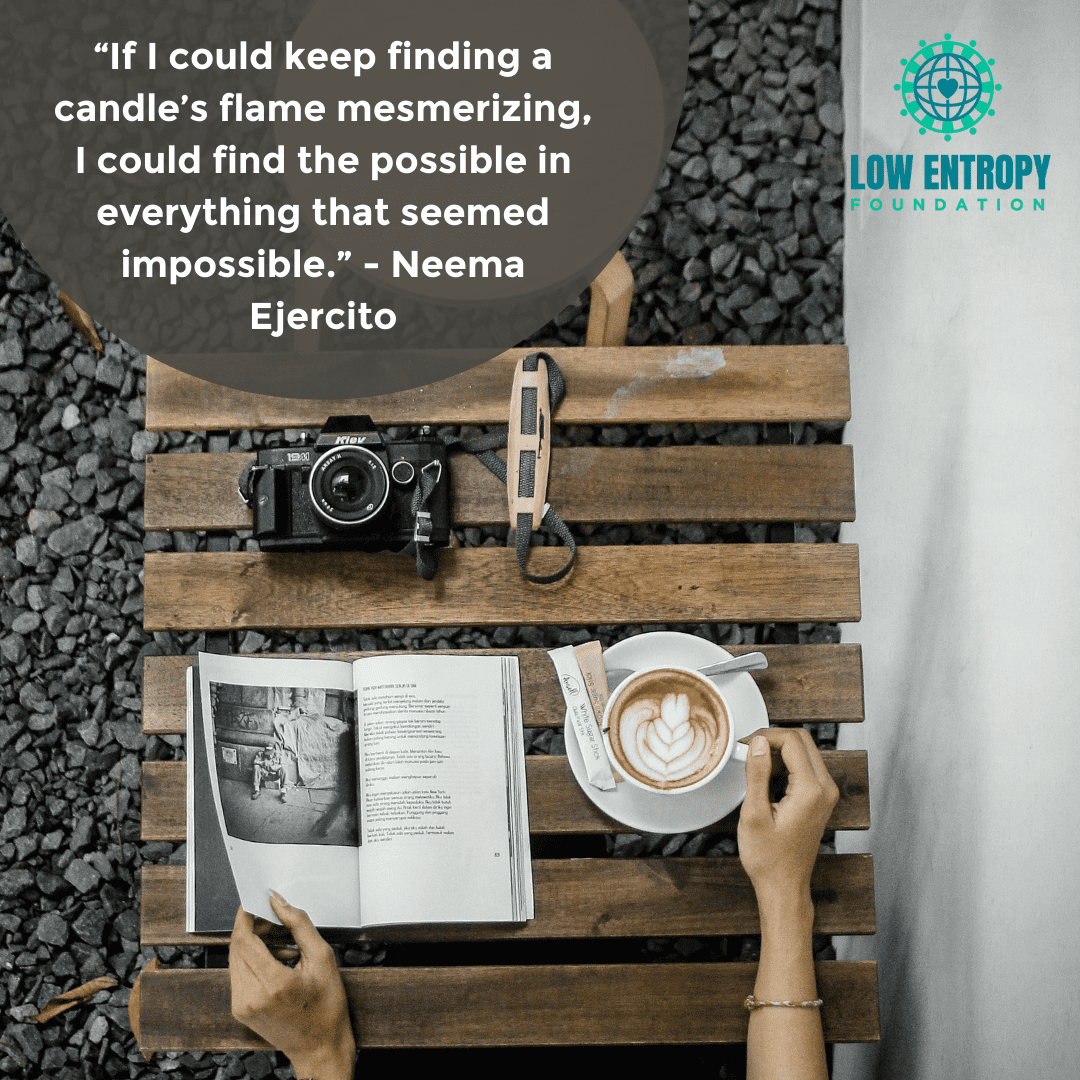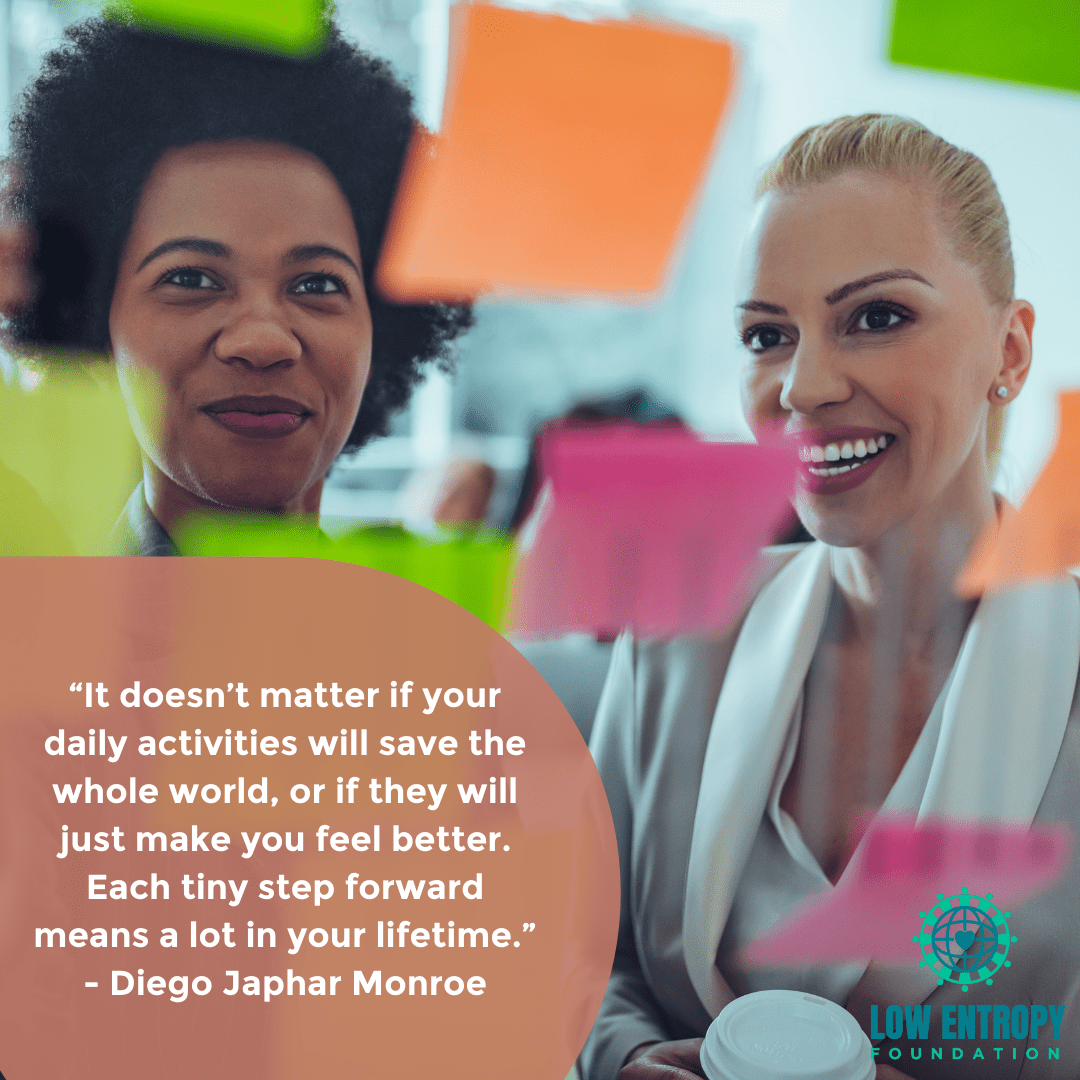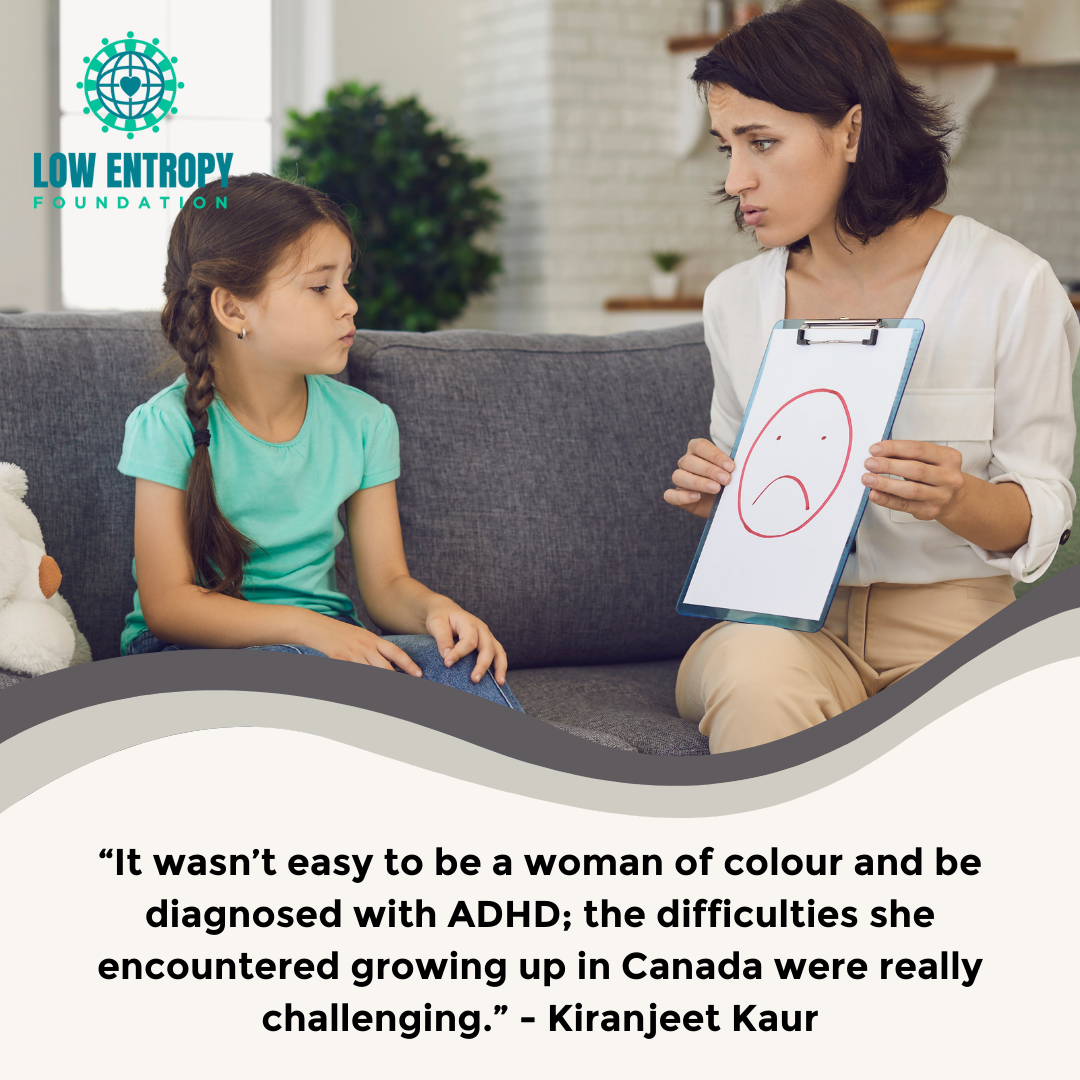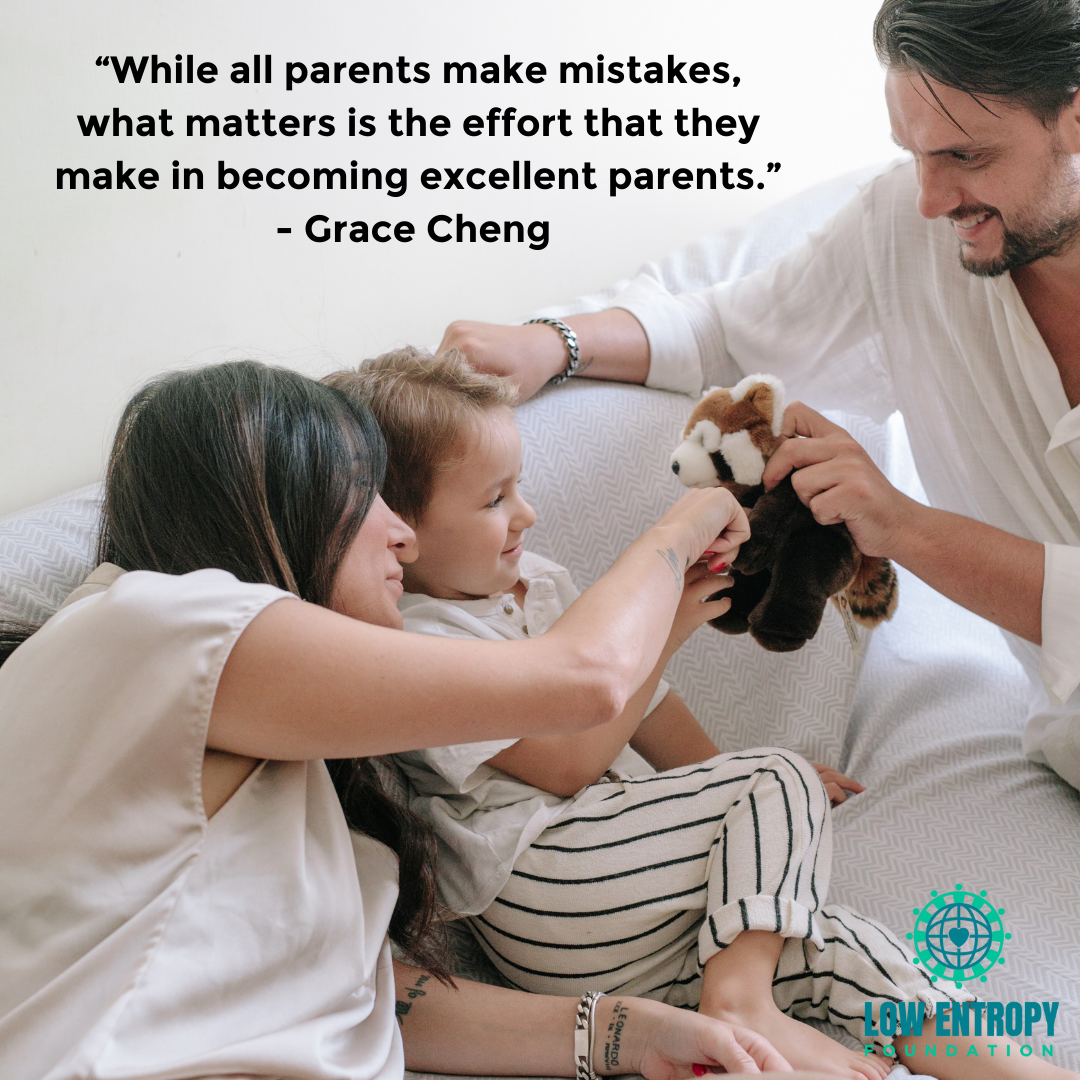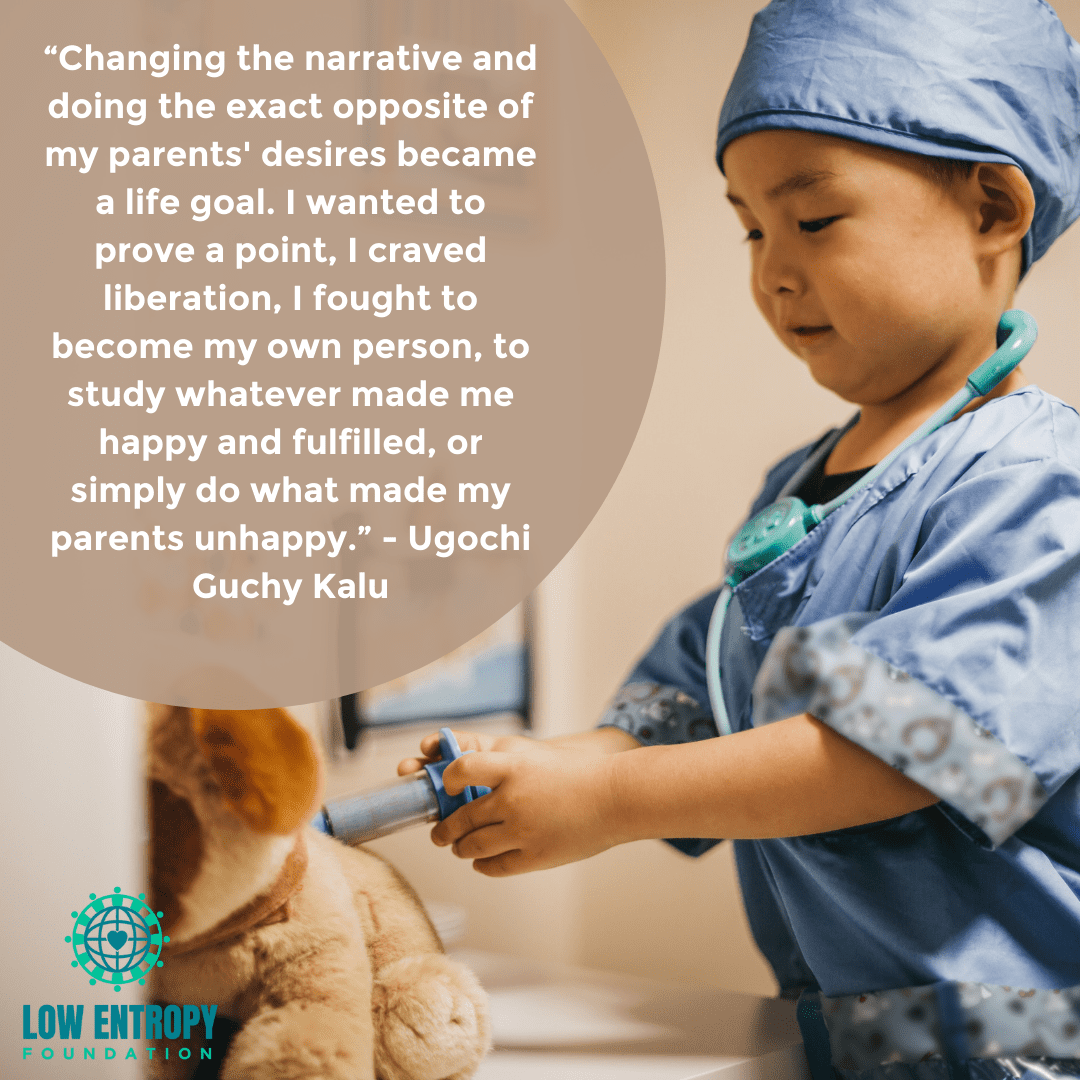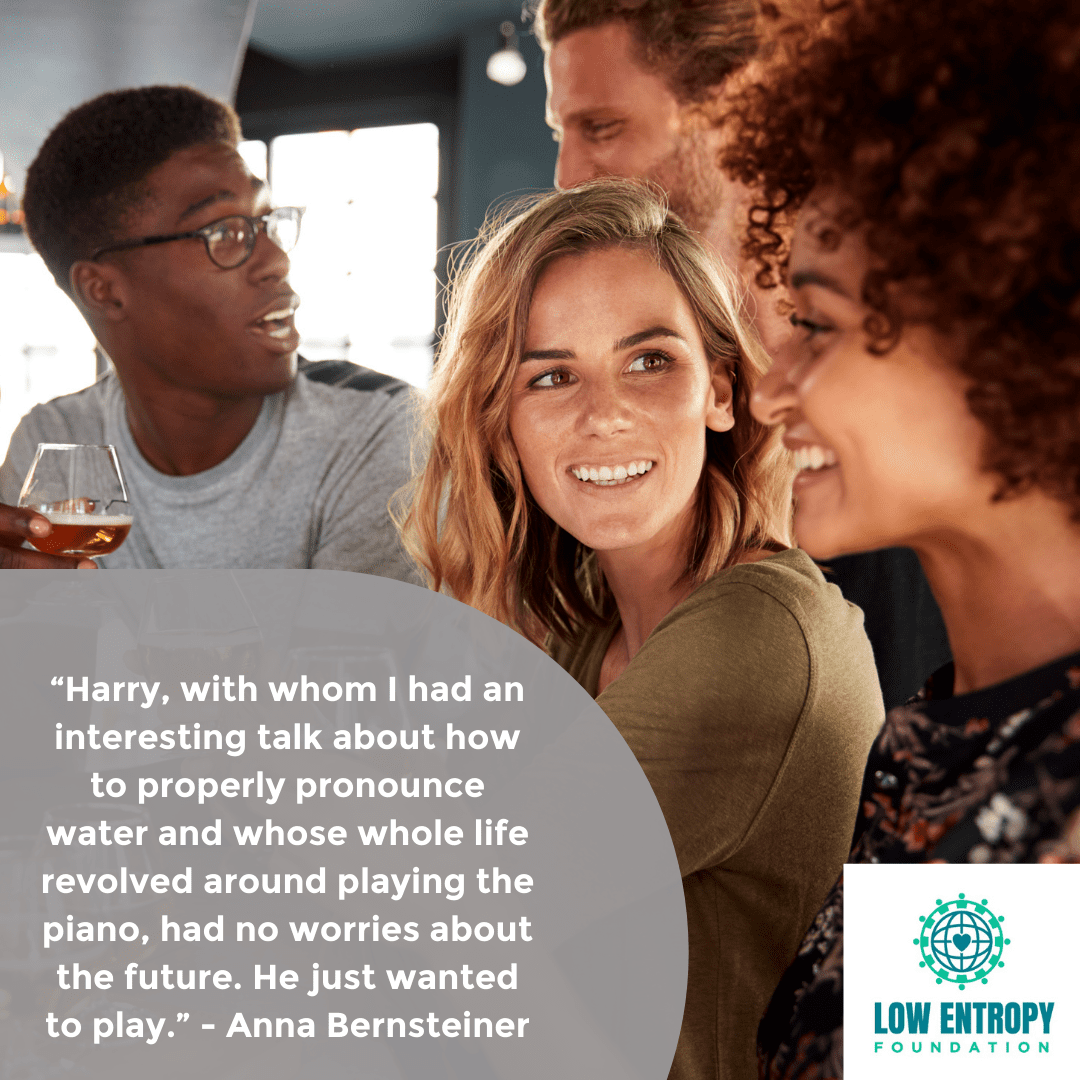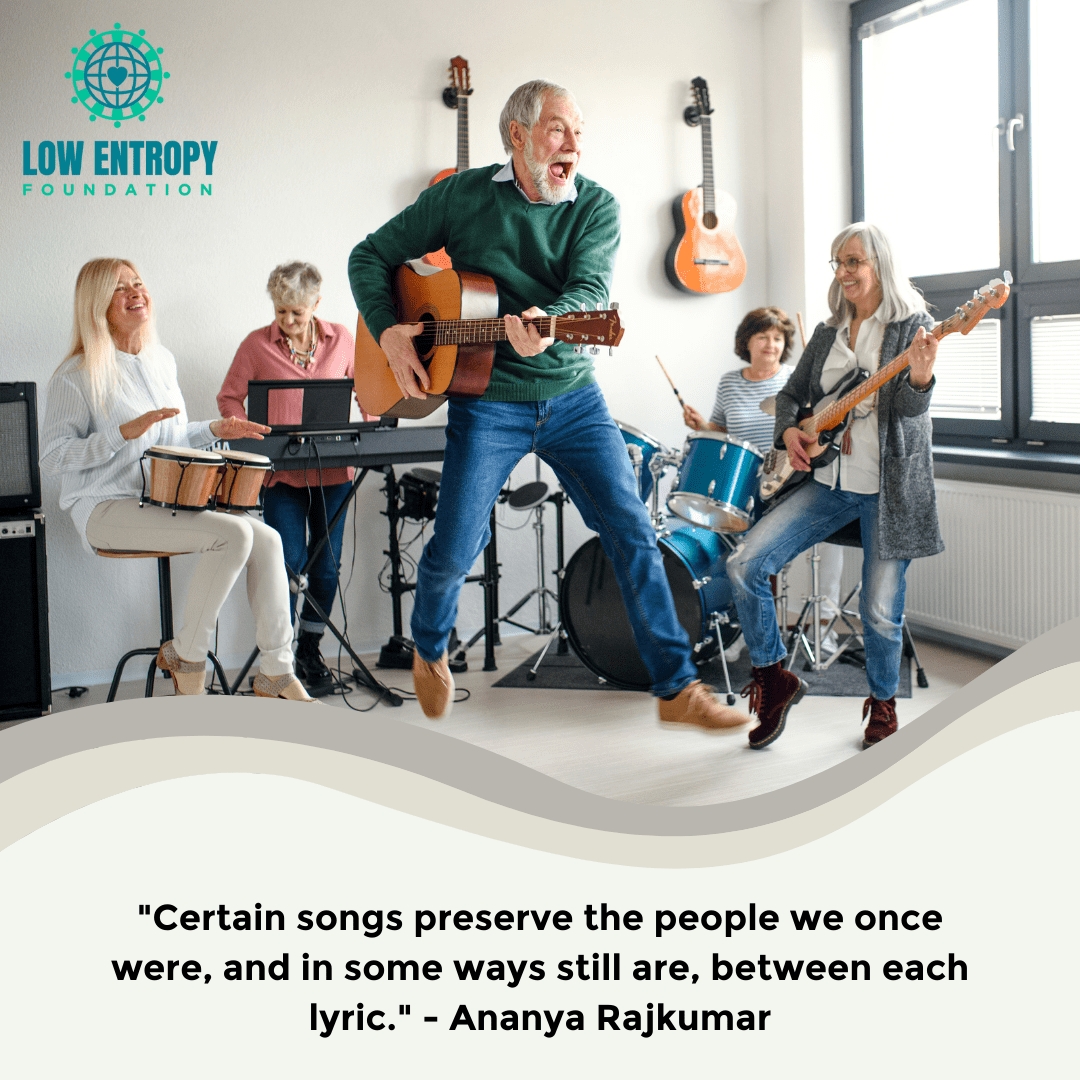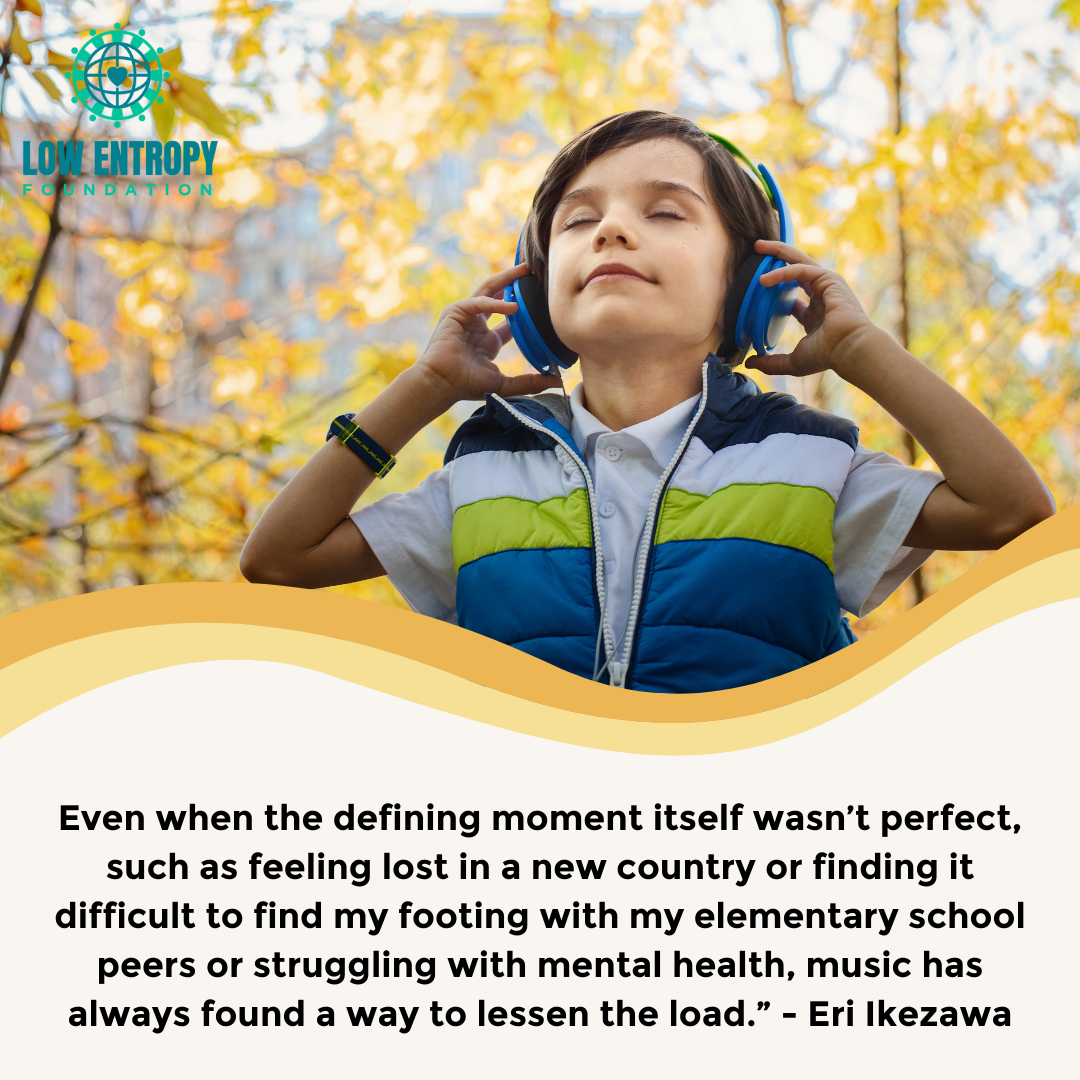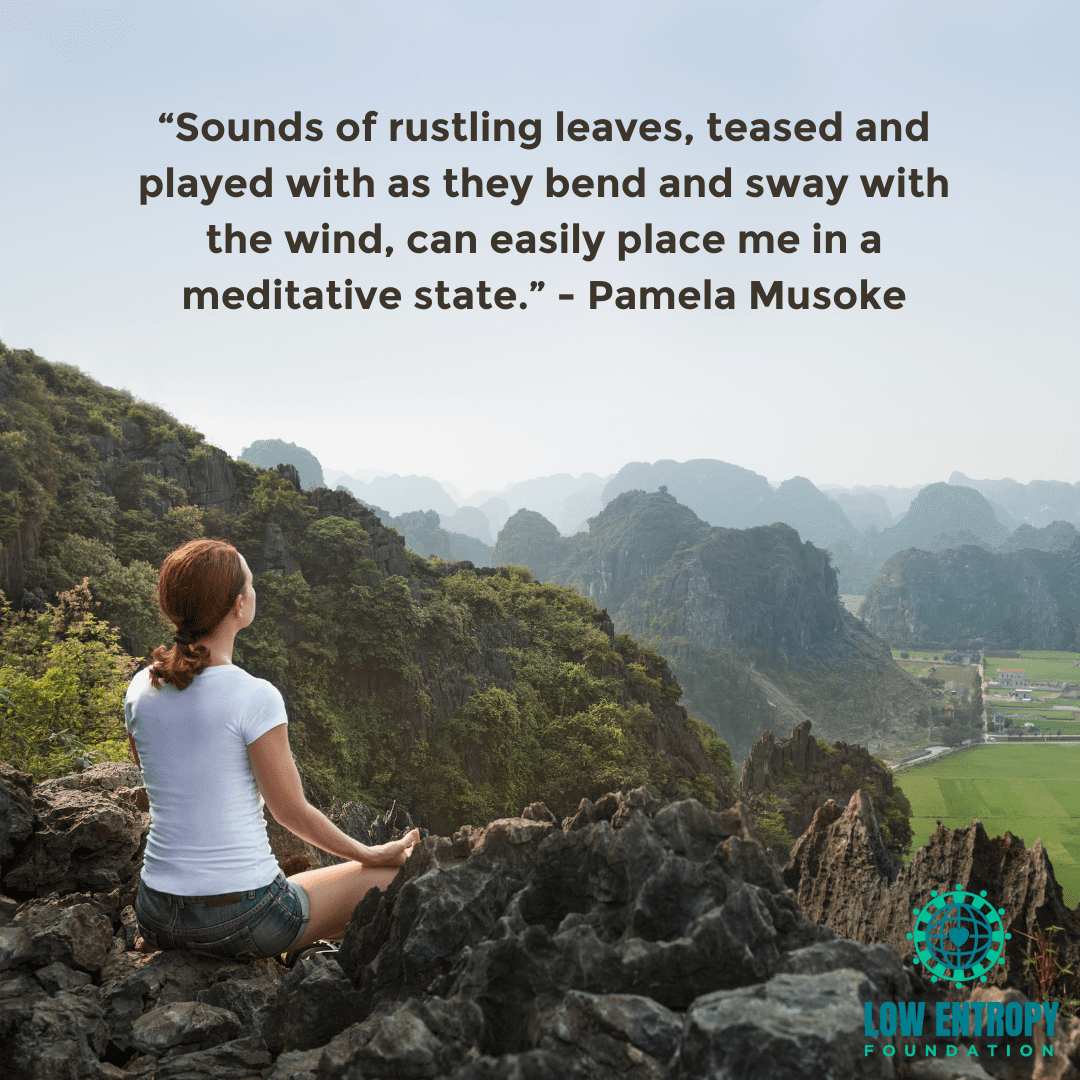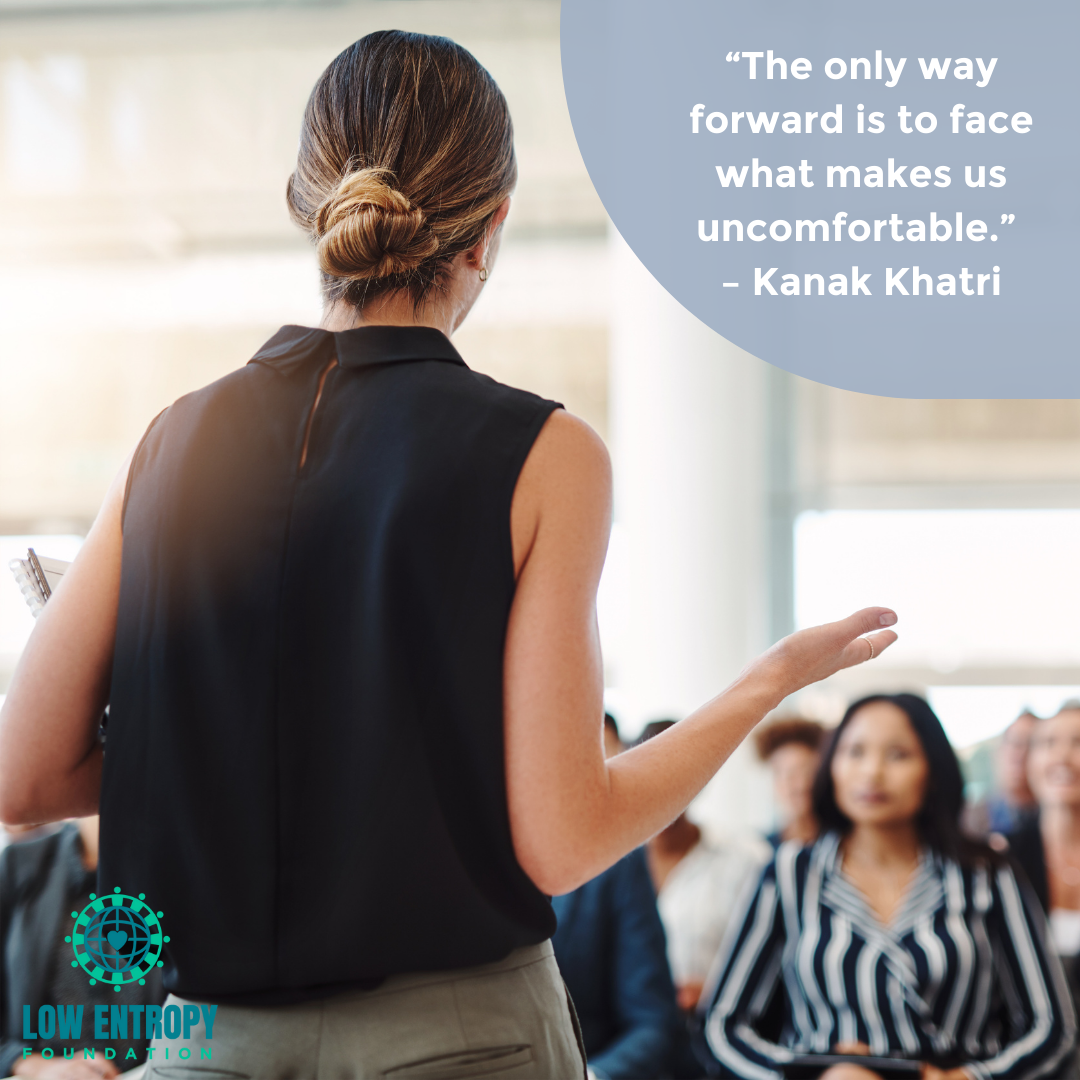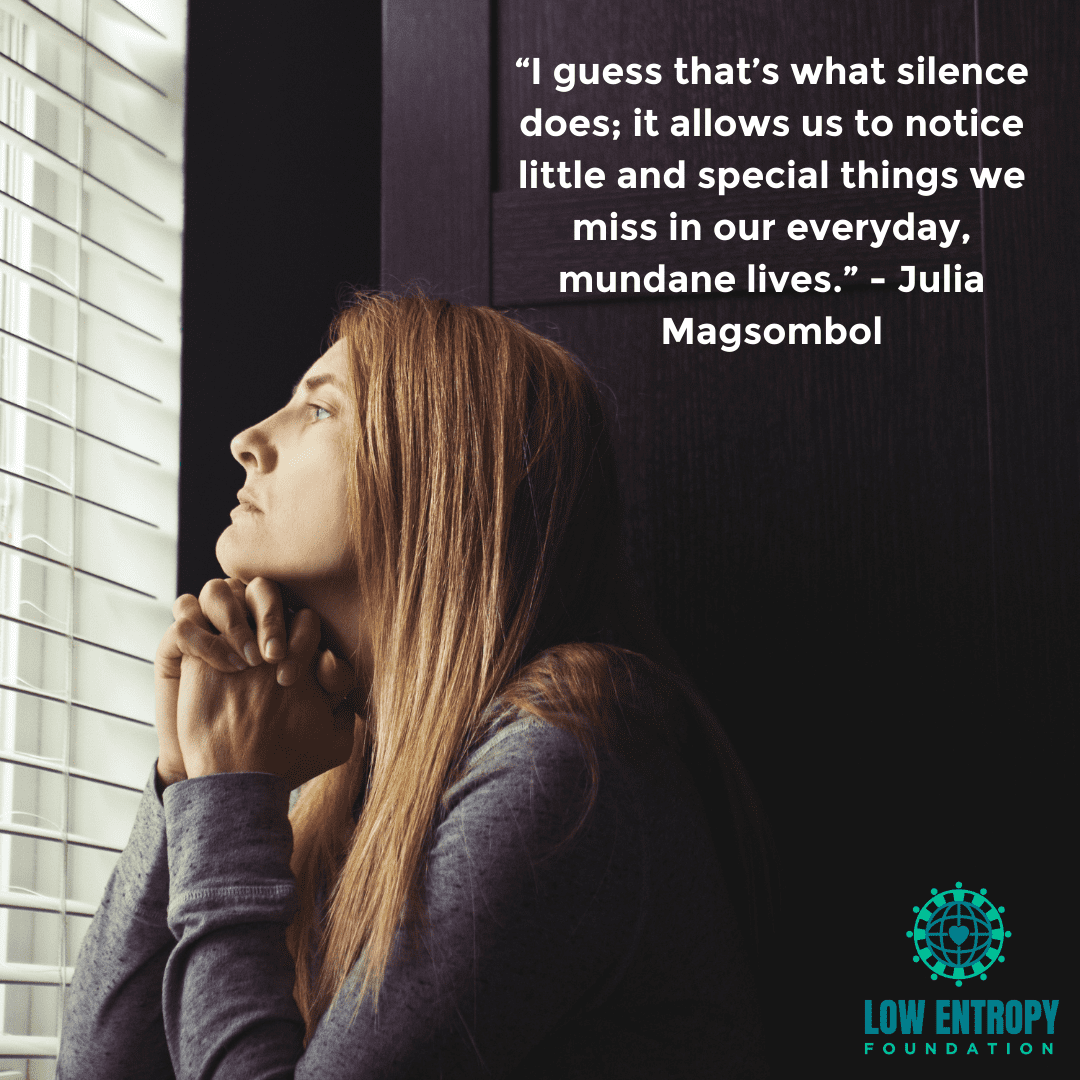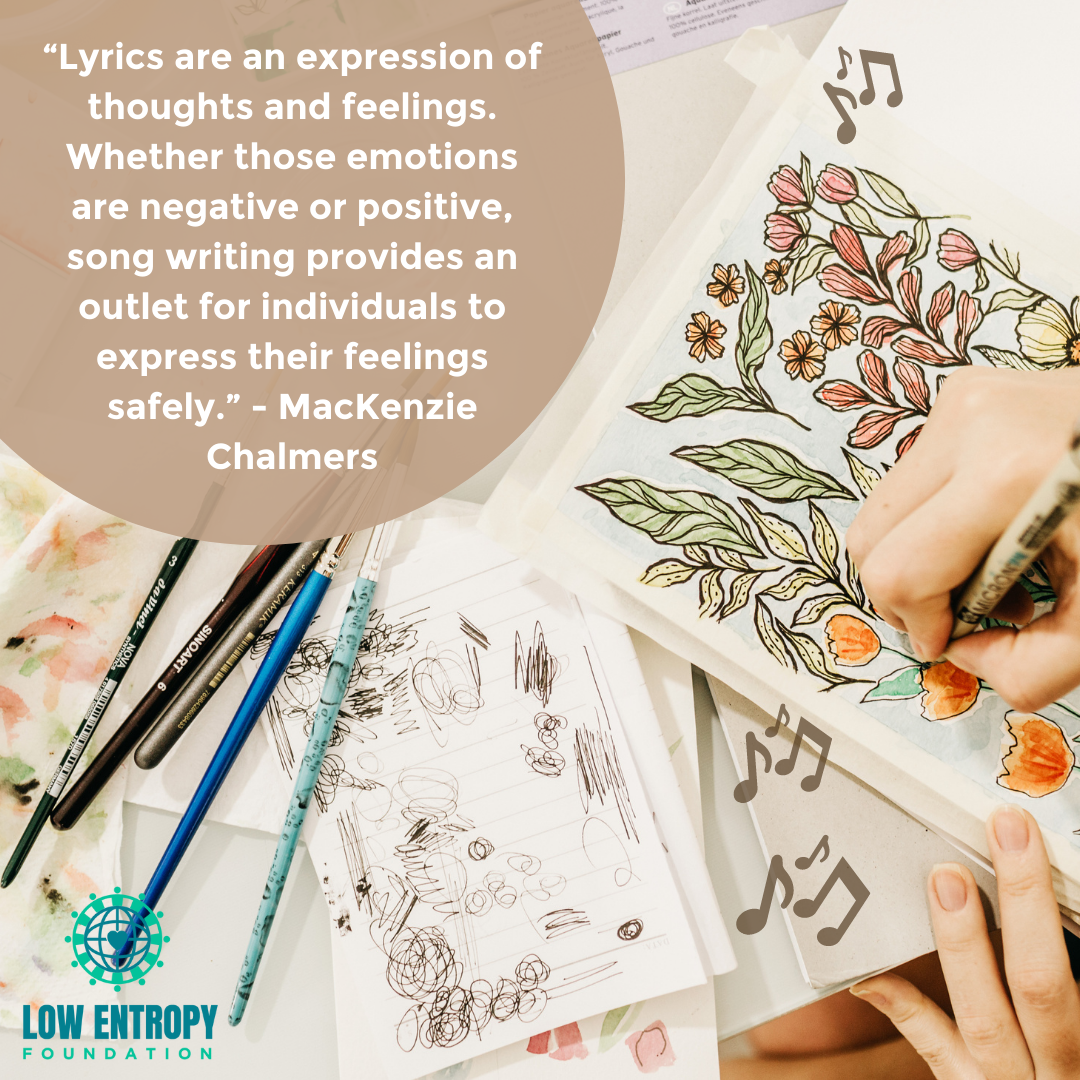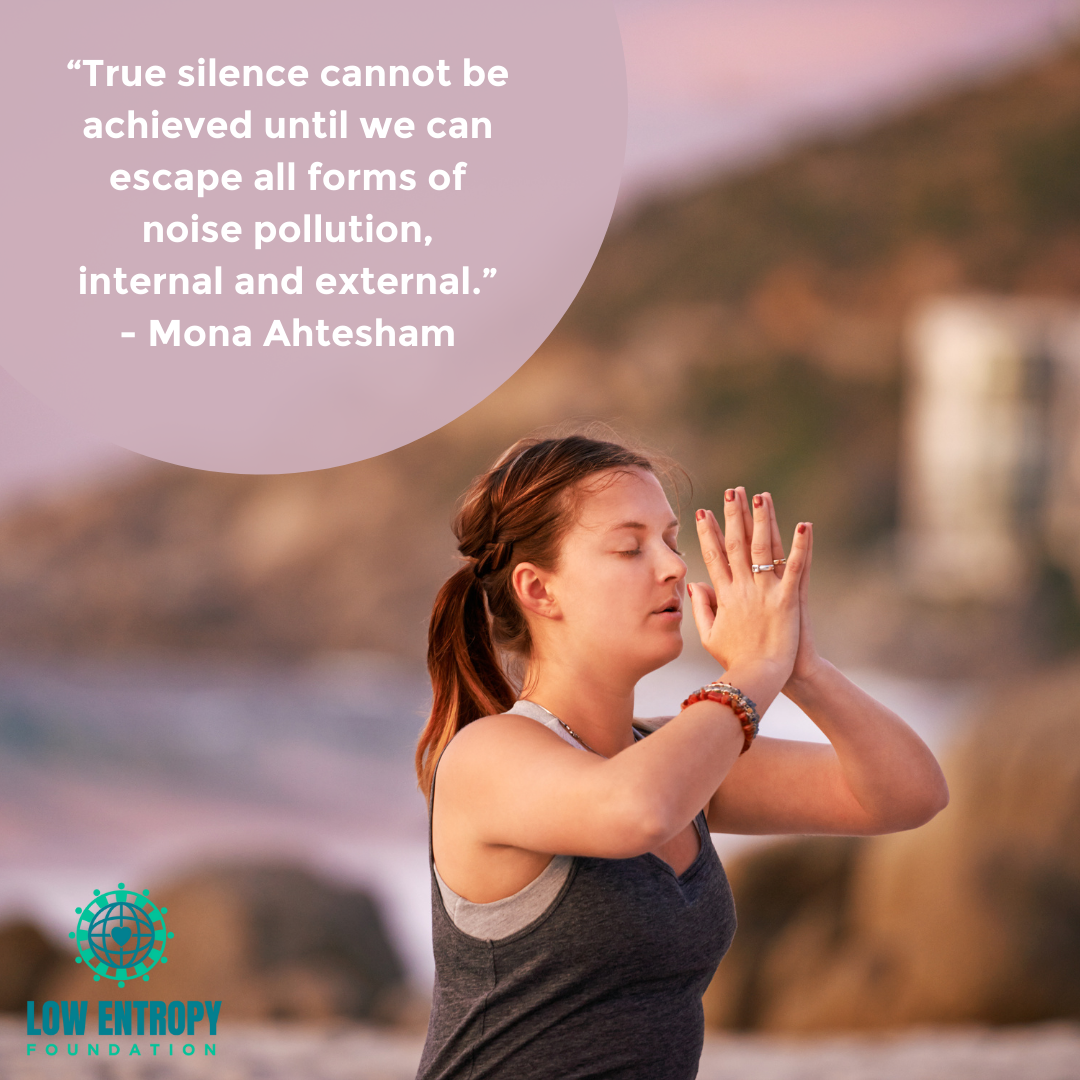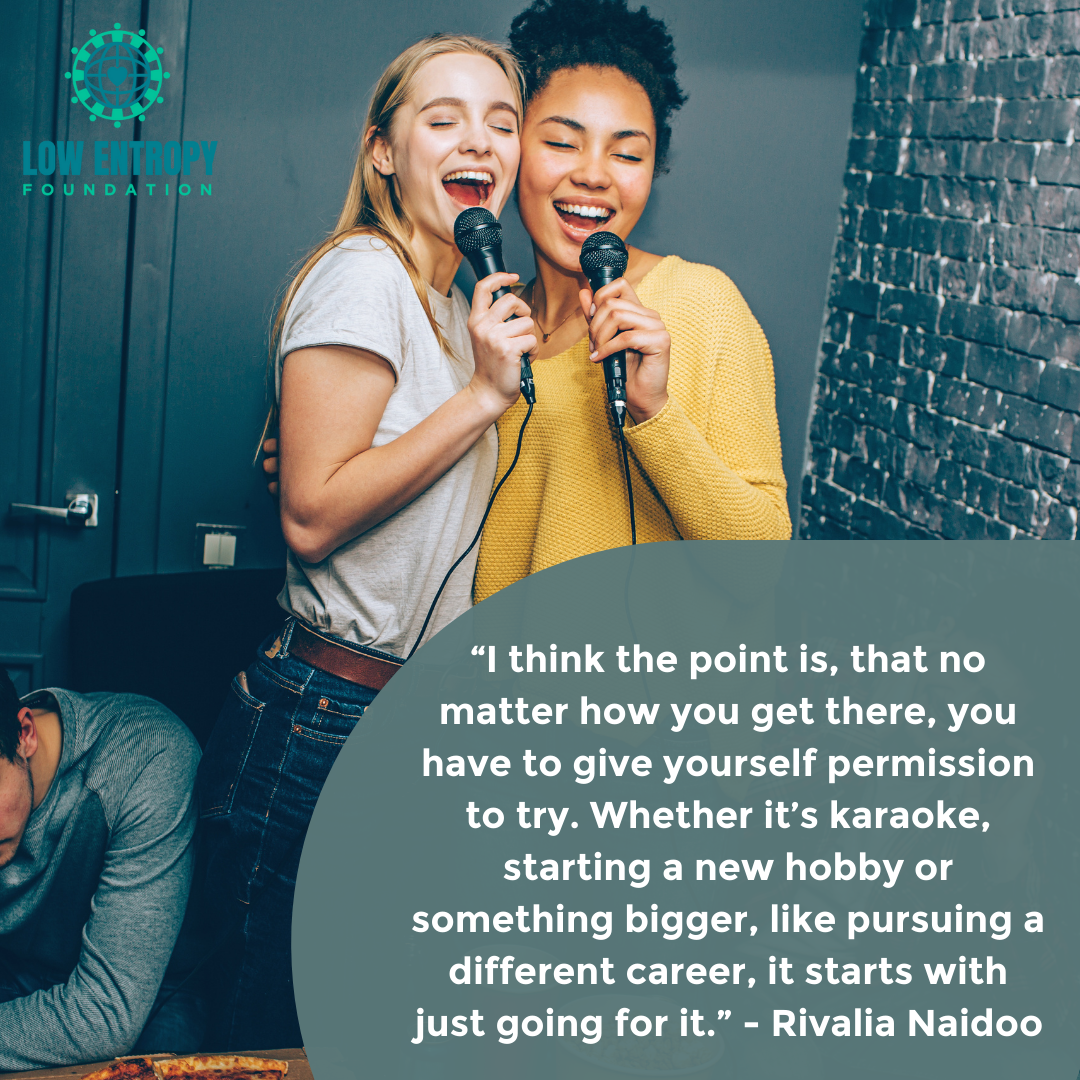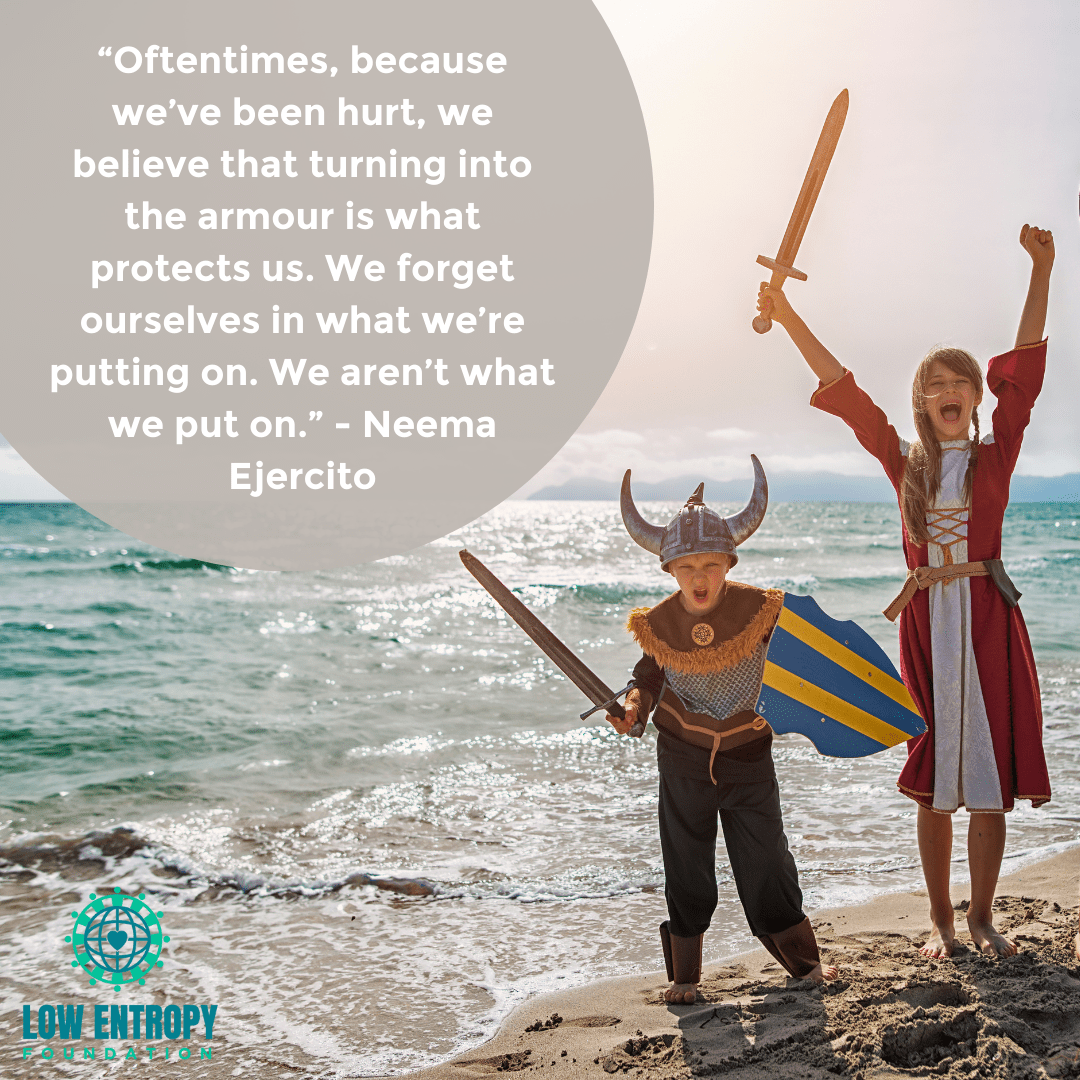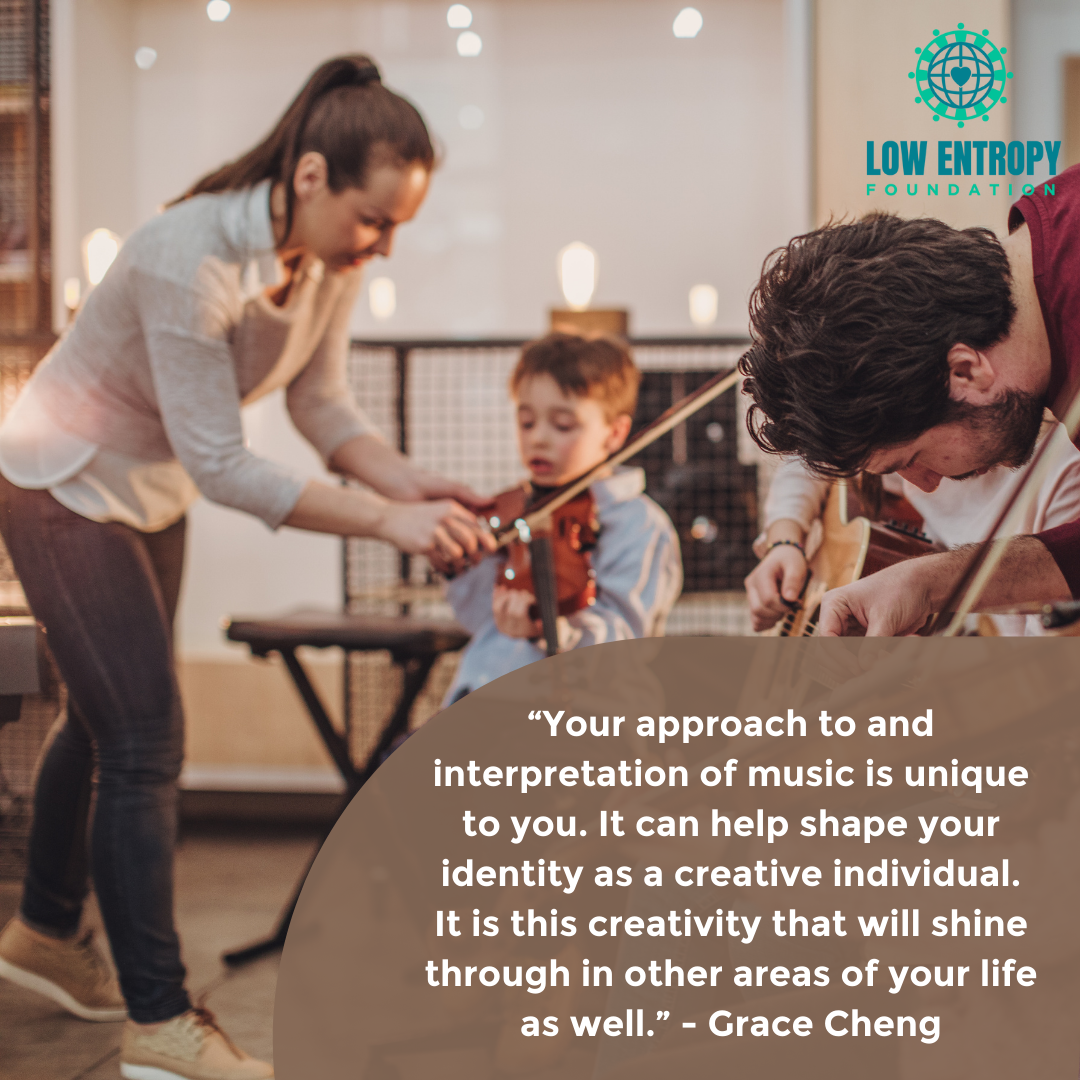Cassandra Di Lalla (she/her/hers), Low Entropy Volunteer Writer
The cool thing about creative outlets is that you can have multiple. Neato speedo, right? Psychedelic, don’t you think? Yes and yes!
I’ll start by saying that I can’t even draw a straight line with a ruler so that one’s a hard pass for me. Although, abstract art counts as a creative outlet so I can toot my horn a tad. That was a joke because I’m mediocre at best.
But, writing on the other hand – I’m convinced I was born with a pair of poetic pants on since writing for me feels so effortless. I admit that I get writer’s block but that’s okay! Ever heard of brain farts? Thought flatulence? Mind cramps? Whichever way you word it – I occasionally experience those and that’s also okay!
Do you know how I discovered my passion for written expression? I was in middle school and I was going through some not so nice times; I was at that age and in that stage where the pressure to fit in was undeniably and noticeably forced on by my peers. I wasn’t pretty enough, I wasn’t skinny enough, I wasn’t good enough, I was too weird and different, etc. So, of course all this negativity and the discouraging words/actions towards me caused me to feel pain and anger…even confusion…and that’s where ‘word vomit’ came to life in my world. It was the thoughts, feelings, emotions, experiences, and everything in between that led me to write because I was deeply hurt. I don’t think I ever looked back since then because written expression is so beautiful and diverse, and writing is in my blood.
Some individuals were blessed as multi-talented species and I’ve always been so curious to know their story…where and how it all started. Like, did they just wake up one day and decide that they’re going to be wizards and witches and make everything work in their favour? Or did it happen like me where it was a ‘work in progress’ type of story that became a ‘wow factor’ solely based on expressing the way they felt whether it was through lyrics, a sketch, a culinary creation, a sewing surprise, etc.
I feel that a creative outlet is not something people do ‘by the book’. Like, these are things that people enjoy doing whether there is a feeling behind it or they do it just because they’re talented. They say that if you’re doing something you love, you’ll never work a day in your life, which is true. But, if you’re earning money for it then it simply means it’s a dream that became a reality. Magical, right?
It’s important to note that in order for you to excel in what you do, it’s much easier if you have the drive in you and the motivation because sometimes we’re just not in the mood to be creative since taking a nap sounds like a better plan or watching funny YouTube videos sounds like your cup of tea in that moment. But remember, that is absolutely okay because literally everybody is entitled to nap time. Actually, nap time could also be considered your creative outlet because, oddly enough, a lot of good ideas for a writing prompt come from dreams that you have or simply because you’re in such a relaxed state that the creativity just flows like a river.
I don’t know, I feel like that resonates very well with me. Do you feel connected to that at all? I feel like many people have an ‘Aha’ moment when they’re dreaming or as soon as they’ve woken up…it’s pretty nifty!
Do you know what else? Your creative outlet doesn’t have to ‘be a thing’. It doesn’t have to be something that others are already doing and it doesn’t have to conform to societal norms because at the end of the day, you’re making a choice and that choice should be one that you’re ecstatic about!
Your creative outlet can be discovered in the most unconventional, most unorthodox way or it can be brought to light in your typical day-to-day environment yet your new found outlet could motivate others to go on their own creative journey…maybe it’ll even become a worldwide trend. Who knows what goes in the year 2023.
Have you ever had a conversation with yourself about your strengths, weaknesses, your hopes, your dreams, and everything that comes before or after that? I have, on several occasions! Self-reflection is an important part of life and an unapologetic practice to keep yourself mentally engaged in life’s tricks and traps, because sometimes life puts you on ‘standby mode’ while your brain tries to figure everything out. If and when you take the time to self-reflect, you will learn an incredible amount of things about yourself that oftentimes lead to creative expression in some form or another.
I say this because these conversations can get deep and sometimes difficult but it’s such a cool moment when you’re able to allow yourself to feel all these things that eventually turn into a craft, your extracurricular activity, your safety blanket when life is playing games with you, your side hustle when things get crazy with finances, or even your real rescue when your mind is tired beyond mending or when your soul is just too sore.
Your creative outlet may have just become your best friend and they committed a crime by killing your loneliness.
—
Cassandra Di Lalla lives life purposefully. She enjoys reading, writing and mental health initiatives. She’s an animal lover for life and an innovative individual always finding new ways to create.































